ESG
SUSTAINABILITY REPORT 2023
NATIONAL SOCIAL SECURITY FUND
Building resilience for inclusive prosperity

1. INTRODUCTION
About NSSF
Integrated Thinking About this Report
Navigating our Report
About our Theme: Building Resilience for Inclusive Prosperity

Our Sustainability Journey
Our Commitment to Transparency and Continuous Improvement
Materiality
Material ESG Topics
Frameworks and Guidelines
Oversight of ESG Assurance
Approval
Message from our Chairman Message from our Managing Director Stakeholder Engagement
2. COMPANY PROFILE
Overview
Purpose,
3. SUSTAINABILITY STRATEGY AND GOALS
Our Approach to ESG and Sustainability

Our ESG Objectives
Integrating ESG and Sustainability in our Strategy

4. SUSTAINABILITY LEVERS
4.1 Customer Centricity - Sustainability Lever: Customer Satisfaction

Our Commitment to Deliver Value to our Customers
Our Relationship with our Customers
NSSF - ESG SUSTAINABILITY REPORT - PAGE 1 ESG SUSTAINABILITY REPORT
TABLE OF CONTENTS
of Operations
Vision, Mission, and Core Values
Presence
Geographical
to
Customers Key Developments in FY 2023 Achievements Against Performance Measures Future Outlook Critical Success Factors 5 6 6 6 9 10 11 11 13 13 13 14 14 15 16 17 23 23 24 27 28 29 33 34 34 35 35 38 38 38
Our Key Material Areas
Creating Value for our
4.2 Social Impact and Engagement - Sustainability Lever: Social Responsibility
Diversity, Equity and Inclusion

Key Staff Initiatives in FY 2023
Our Approcah to Corporate Social Investment (CSI) Social Security Needs
CSI Initiatives
Critical Success Factors
4.3 Economic Impact - Sustainability Lever: Financial Resilience

Navigating Challenges with Sustainable Resilience

Value-added Statement
Key Developments in FY 2023
Achievements Against Performance Measures
Critical Success Factors
4.4 SMME Development and Entrepreneurship – Sustainability Lever: Inclusivity Hi-Innovator Programme
External Innovation: Women Accelerator Achievements Against Performance Measures
Internal Innovation: Black Swan and Trailblazers
Date
4.5 Environmental Stewardship - Sustainability Lever: Environmental Protection Our Approach to Managing Environmental Risk
Our Action on Climate Change Key Initiatives in FY 2023
Achievements Against Performance Measures
Critical Success Factors
5. GOVERNANCE AND ETHICS
Foreword by NSSF Chairman Board of Directors Introduction to Corporate Governance
Corporate Governance Aligned to King IV Principles

Global Reporting Initiative (GRI)
6. FUTURE OUTLOOK AND GOALS
for Sustainable Growth

NSSF - ESG SUSTAINABILITY REPORT - PAGE 2
Environment Social Governance
Critical
Achievements to
Success Factors
Future Goals and Targets Initiatives and Strategies Stakeholder Engagement Reporting and Transparency Continuous Improvement 39 40 41 45 46 49 52 53 54 55 55 56 56 57 58 58 60 61 64 64 65 66 66 66 69 70 73 76 77 117 123 124 125 125 125 126
Vision
INTRODUCTION
ESG
SUSTAINABILITY REPORT


1. INTRODUCTION

NSSF - ESG SUSTAINABILITY REPORT - PAGE 4 About NSSF Integrated Thinking About this Report Navigating our Report About our Theme: Building Resilience for Inclusive Prosperity Our Sustainability Journey Our Commitment to Transparency and Continuous Improvement Materiality Material ESG Topics Frameworks and Guidelines Oversight of ESG Assurance Approval Message from our Chairman Message from our Managing Director Stakeholder Engagement 5 6 6 6 9 10 11 11 13 13 13 14 14 15 16 17
About NSSF
The National Social Security Fund (NSSF) is a provident fund mandated by the Government of Uganda through the National Social Security Fund Act; Cap 222 (Laws of Uganda) as amended. The Fund covers all workers in the private sector regardless of the size of the enterprise or the number of employees. In addition, the Fund receives voluntary contributions from self-employed persons and top-ups on the mandatory contributions.
The Ministry of Gender, Labour and Social Development and the Ministry of Finance, Planning and Economic Development are jointly charged with the oversight of the Fund. The Fund is also regulated by the Uganda Retirement Benefits Regulatory Authority (URBRA), as applicable, following the enactment of the URBRA Act in 2011.

We are the biggest retirement benefits institution in the region with centres in all regions of Uganda manned by competent and energetic teams, availing our members with the absolute best in social security. We continue to be innovative in our products and services, collecting member contributions, investing prudently, and paying out benefits at the right time to qualifying beneficiaries in the shortest time possible.
We are pleased to present our Environmental, Social and Governance (ESG) report covering the period ending on 30 June 2023. This comprehensive report highlights the combined outcomes of our ESG initiatives, reflecting our commitment to creating value and promoting shared prosperity for our members, the economy, and society.
This report is our opportunity to share our ESG positioning, commitments and journey with our stakeholders, as well as how we are aligning/evolving our business to ensure we remain relevant beyond where we are today - delivering value and continuing to be a force for good in the communities we serve.
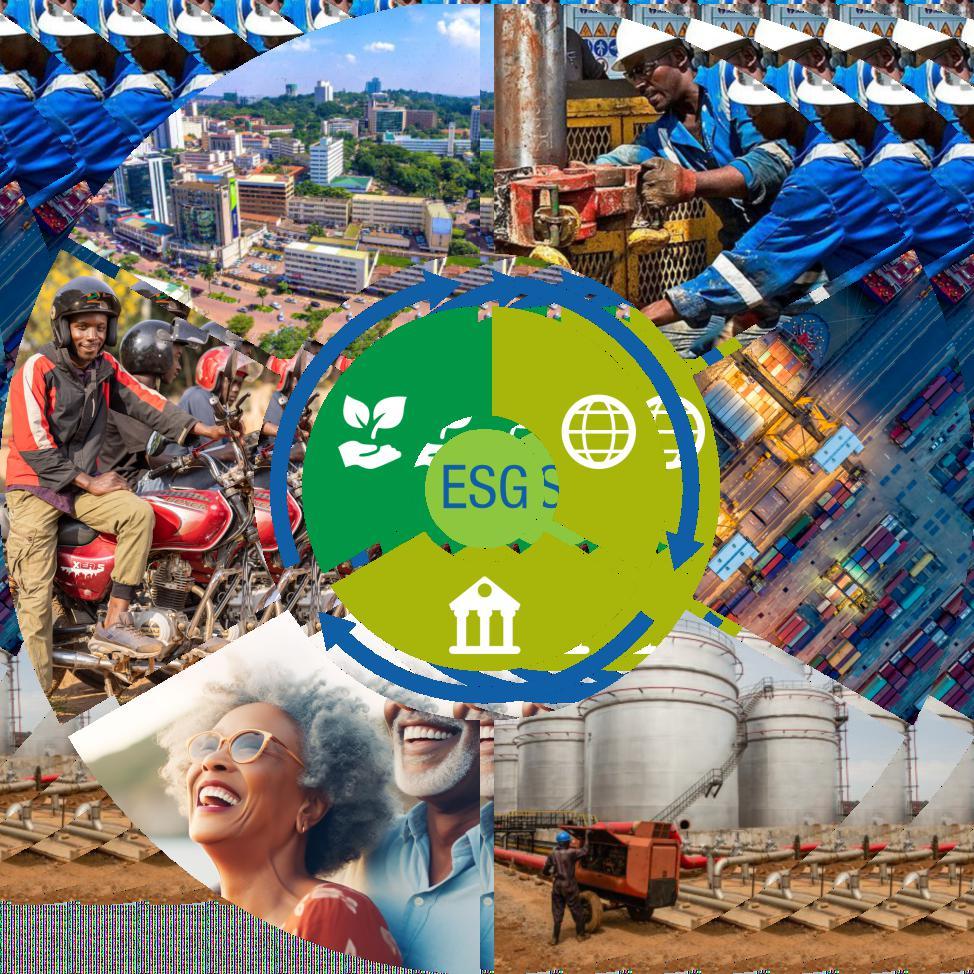
NSSF - ESG SUSTAINABILITY REPORT - PAGE 5 ESG SUSTAINABILITY REPORT 1. INTRODUCTION
NSSF Headquarter offices at Workers House
Integrated Thinking
We wholeheartedly recognise the profound impact of our business activities on society and the environment for inclusive prosperity. Consequently, we embrace our opportunity and fiduciary duty to ensure a positive and transformative influence on all stakeholders. We passionately believe that fostering efficient and sustainable operations, coupled with our commitment as a responsible corporate citizen, are prerequisites for generating enduring value over time. Embracing the principle of integrated thinking, we seamlessly strive to infuse it into our business practices and reporting standards. Hence, we actively shoulder the responsibility of consciously advancing integrating ESG factors into our strategic decisionmaking, investment choices, and operational processes.
About this Report
The National Social Security Fund (NSSF Uganda) has published its inaugural 2023 Environmental, Social and Governance (ESG) Report, highlighting the significant strides made by the Fund in creating sustainable, diverse and equitable communities across the country. This annual report delves deeper into NSSF's performance and management of its environmental and social commitments, underpinning its dedication to long-term value creation for all stakeholders.
At NSSF, our core mission is to enable growth and economic progress, and we believe that embracing the challenges and opportunities of our ever-changing world is fundamental to achieving this goal.
Aligning our ESG priorities with our business priorities and the United Nations Sustainable Development Goals (UN SDGs), we actively engage with environmental and social issues, perceiving them from a business risk and opportunity standpoint. The strength and performance of our company are bolstered by robust governance fundamentals.
We passionately believe that effective management of our ESG priorities not only enhances business resiliency and risk mitigation but also generates sustainable value. Furthermore, we collaborate with our members, partnering with them to support and finance their key ESG objectives.
Navigating our Report
Navigation icons

Throughout this report, we use the following navigational icons to show the interconnectivity between core concepts and the various sections of this report. Working together and separately, these elements have the potential to impact (positive and negative) our ability to create value over the short-, medium-, and long-term.

BOARD AND BOARD COMMITTEES
Main Board Staff Administration and Corporate Affairs (SACA)

Audit and Risk Assurance Committee (ARC)


 Dr.
Dr.
Finance Committee Investments and Project Monitoring Committee (IPMC)

NSSF - ESG SUSTAINABILITY REPORT - PAGE 6
“Through a clear social purpose, we aim to create long-term sustained value underpinned by sound ESG principles”
INTRODUCTION | COMPANY PROFILE | SUSTAINABILITY STRATEGY AND GOALS | SUSTAINABILITY LEVERS | GOVERNANCE AND ETHICS | FUTURE OUTLOOK AND GOALS
Peter Kimbowa - CHAIRMAN, BOARD OF DIRECTORS
FINANCIAL CAPITAL
THE 6 CAPITALS
This tackles how we manage the Fund responsibly and in a profitable manner. We do this by making prudent investment decisions from our members contributions and competitive investment returns, which enable us to sustainably grow our assets and the members' Fund.
HUMAN CAPITAL
This resides in our employees, who are also members of the Fund and have a strong alignment with the rest of the NSSF members. In addition, the ability to attract, develop, enable, and retain the best talent is one of the Fund's top objectives. We aim to create an exciting and vibrant work environment and we work continuously to provide our people with attractive career paths that will make them experts in their fields.
INTELLECTUAL CAPITAL
This lies in the Fund's reputation. Institutional knowledge and experience are intangible assets that have been built over time and have instilled confidence in us among our stakeholders and in Uganda at large.
MANUFACTURED CAPITAL
This comprises our governance, business processes, building infrastructure, leading systems as well as our investment in information technology infrastructure and innovation that together enable us to manage the organisation in a prudent and professional manner.

NATURAL CAPITAL
This is the effect of our operations on the environment and the sustainable development goals.
SOCIAL AND RELATIONSHIP CAPITAL
This comprises the relationships and collaborations we have with our key stakeholders – our members, employees, suppliers, communities, the Board, the Ministry of Finance, the Ministry of Gender, Labour, and Social Development and our regulator URBRA, as applicable.
NSSF - ESG SUSTAINABILITY REPORT - PAGE 7
PLAY WEB READ ESG SUSTAINABILITY REPORT 1. INTRODUCTION
MATERIALITY THEMES

STRATEGIC OBJECTIVES Increase Customer Satisfaction Increase Profitability Increase Productivity Increase Staff Satisfaction Suppliers Communities Industry Associates STAKEHOLDERS Members Employees Regulators & Legislators
Material matters are those issues that could affect our ability to create value in the short, medium, and long term. Governance challenges Regulatory change Global economic uncertainty Digital acceleration NSSF - ESG SUSTAINABILITY REPORT - PAGE 8 INTRODUCTION | COMPANY PROFILE | SUSTAINABILITY STRATEGY AND GOALS | SUSTAINABILITY LEVERS | GOVERNANCE AND ETHICS | FUTURE OUTLOOK AND GOALS
About our Theme
Building resilience for inclusive prosperity
The National Social Security Fund of Uganda has demonstrated unwavering resilience throughout its existence, steadfastly pursuing its mission to foster shared prosperity among its members, the economy and society at large.
We remain dedicated to transparency, accountability, and ethical leadership, readily acknowledging areas for improvement as we strive to become the premier social security institution in East Africa. We are not defined by our setbacks; we will gauge our success by our ability to learn from these and rise above them with renewed vigour and determination to fulfil our mandate.
First, NSSF endeavours to enhance the quality of life for all employees in the private sector, including non-government organisations, by offering a safety net against life's uncertainties through the provision of comprehensive social security services.
Through the recently enacted NSSF (Amendment) Act 2022, we are expanding social security coverage and enriching the range of benefits available to savers. This legislation is designed to promote shared prosperity by ensuring that all employees are safeguarded and empowered to lead better lives. It enables savers to invest in their future and plan for retirement, thereby establishing financial security for themselves and their loved ones.
Additionally, we recognise our responsibility as a conscientious corporate citizen to generate sustainable value for our members, stakeholders, and society. We are committed to implementing ESG practices and pursuing objectives that secure our long-term prosperity.
Shared prosperity also entails supporting our members beyond retirement. To achieve this, we aspire to unlock the entrepreneurial potential of Ugandans through collaboration. Our entrepreneur programme aims to expand work opportunities, particularly for women and youth, fostering economic empowerment and inclusion.
By actively supporting the development of small, medium, and micro-enterprises (SMMEs) and entrepreneurship, we can make a tangible and significant socio-economic impact, advancing progress towards sustainable and inclusive economic growth.


NSSF - ESG SUSTAINABILITY REPORT - PAGE 9 ESG SUSTAINABILITY REPORT 1. INTRODUCTION
Our Sustainability Journey
NSSF Torch Awards
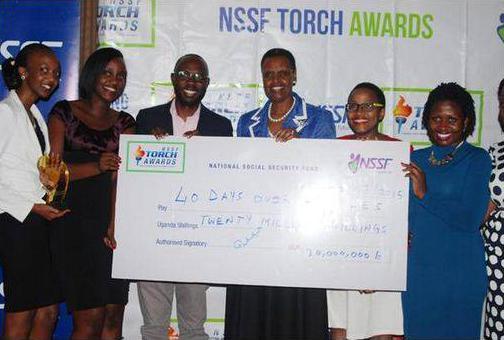
Our commitment to sustainable development dates to 2012, when we launched the NSSF Torch Awards-an initiative aimed at recognising and supporting individuals or community-based organisations that make a positive impact on society. These awards are dedicated to non-profit initiatives that benefit the broader community, run by Ugandan institutions or individuals, and are non-partisan, independent of government or international funding. The selection process for the winning projects was stringent, focusing on impact, sustainability, community involvement, and relevance to the local community. Several exceptional projects that emerged as winners were chosen to receive funding through the Torch Awards.
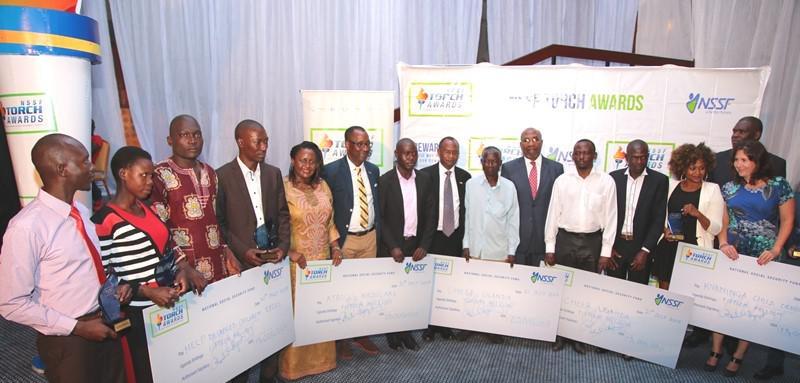
Annual dental camp
For eight years (from the year 2012), the Fund, in partnership with the Rotary Club of Kampala North, provided free dental services at an annual dental camp held at Mulago Dental school. The camp reached out to people living in the communities of Kamwokya, Kyebando, Bwaise, Kawaala, Mulago, Kivulu, Katanda, Kaleerwe, who could not easily afford oral health services. Services provided at the camp included screening, filling, teeth extractions and oral education, among others.

It estimated that 50% of the Ugandan population have oral health problems, and these are prevalent in poor communities. In many instances, low-income earners or people from poor families are the most affected as dental treatment is not their top priority.
Over 12,000 people benefited from this initiative since inception.
This is part of the Fund's corporate social responsibility initiatives to support health and wellbeing.
NSSF - ESG SUSTAINABILITY REPORT - PAGE 10
Residents around Mulago receiving free dental services at the NSSF Annual Dental Camp - 2014.
Read more about the dental camp initiative
Child Health Education Empowerment and Rehabilitation Uganda (CHEER) was the overall winner under the health category at the NSSF Torch awards in in 2017. CHEER Uganda offers support for rehabilitation of children with physical disabilities.
INTRODUCTION | COMPANY PROFILE | SUSTAINABILITY STRATEGY AND GOALS | SUSTAINABILITY LEVERS | GOVERNANCE AND ETHICS | FUTURE OUTLOOK AND GOALS
Read more about the winning team who were awarded UGX 20M to support their proposal to construct a library at Happy Times, a community school
Our Commitment to Transparency and Continuous Improvement
As we release our first ESG report, we reaffirm our dedication to transparency and continuous improvement in our reporting practices, aligning with industry best practices. Through this report, we highlight how our mission comes to life through our business endeavours, emphasising the material importance of ESG considerations and their integration into our business model.
NSSF Uganda's 2023 ESG Report is a testament to our commitment to fostering sustainable growth, social responsibility, and good governance as we journey towards building inclusive prosperity for all.
Materiality
Material matters are those issues that could affect our ability to create value in the short-, medium-, and long-term. These matters influence our strategy and how we manage our associated risks, as well as opportunities we explore because of these factors.
The process we follow to determine our material matters is as follows:
METHOD
Identify strengths, weaknesses, opportunities and threats. Evaluate political, economic, social and technological factors which could threaten sustainability.
Define the value creation process of the Fund. Clearly articulate how this value will be delivered over time. Assess materiality of matters and identify those that could threaten the ability of the organisation to deliver value.
STAKEHOLDERS ENGAGED
A series of interactive workshops are carried out with management, board, and staff. Surveys are also carried out to extract member needs and expectations.
The material matters are comprehensively assessed, monitored and updated as appropriate by the Board and Executive Committee as part of the strategic management process.
Informs changes to strategic direction and business model
Business unit and individual goals are incorporated into Balanced Scorecards which align to the overarching organisational Scorecard.
The Board and Executive Committee continuously monitor material matters to ensure they remain pertinent in the rapidly changing operating environment.
NSSF - ESG SUSTAINABILITY REPORT - PAGE 11
DYNAMIC
PRIORITISE IDENTIFY PROCESS Scan the internal and external operating environment. Formulate the strategic direction, objectives, key risks and opportunity register. Targets are set to define objective measures.
DEFINE STRATEGY & TARGETS DYNAMIC ITERATIVE PROCESS
ITERATIVE PROCESS
ESG
ESG SUSTAINABILITY REPORT 1. INTRODUCTION
The outcomes of our materiality process resulted in the prioritisation of the following materiality themes
GOVERNANCE CHALLENGES
:
The Fund has been subject to thorough investigations by government bodies, including the Special Parliamentary Committee, the Auditor General, and the Inspector General of Government (IGG). Our active cooperation reflects our commitment to transparency and accountability in maintaining high governance standards.
REGULATORY CHANGE
The NSSF Amendment Act 2022 passed into law in January 2022. The Fund is now mandated by law to provide social security services to all workers in formal and informal employment within the private sector. Under provisions of the NSSF Amendment Act 2022 anyone can now save with NSSF for their retirement.
GLOBAL ECONOMIC UNCERTAINTY
The Russia-Ukraine conflict, initially perceived as short-lived by many, has grown into a global crisis, disrupting economies. Its farreaching consequences are anticipated to leave a lasting impact on the economic, social and political landscape, heightening business uncertainty. Post-election unrest in Kenya has prolonged, escalating internal political tensions and exacerbating economic challenges. Furthermore, terrorist activities within the East African region have caused fatalities and trade downturns.
DIGITAL ACCELERATION
The Fund implemented a new and robust pension system in December 2021 to improve efficiencies, enable product innovation and create a seamless experience for our customers.
In 2022, we conducted a materiality assessment to identify our most relevant (or “material”) reporting topics from an ESG perspective - which is a broader standard than the one used in our Integrated Report. These topics, which were identified based on internal stakeholder interviews and external research, are provided in the material issues table below.
Our materiality assessment incorporated a “double materiality” approach, meaning that it focused on understanding topics that could represent risks and opportunities to NSSF, as well as topics through which NSSF may have impacts on external stakeholders, society, the environment and/or the economy.
The ESG topics identified, which we refer to as “material ESG issues” throughout this report, inform which issues we report on, which issues we consider raising to our Board of Directors and how we establish our ESG priorities. The results of this assessment are consistent with our previous materiality assessment, undertaken in 2022. They reflect the ongoing importance of issues connected to climate change, diversity and social justice, and business ethics and governance.

INTRODUCTION | COMPANY PROFILE | SUSTAINABILITY STRATEGY AND GOALS | SUSTAINABILITY LEVERS | GOVERNANCE AND ETHICS | FUTURE OUTLOOK AND GOALS
NSSF - ESG SUSTAINABILITY REPORT - PAGE 12
Read more on these material matters on page 75 of the NSSF Integrated Report 2023
Material ESG Topics
The Fund is acting on seven key areas pertaining to ESG aspects where we know we can have a significant impact, and which our stakeholders want us to prioritise.
7 AREAS OF FOCUS COMPRISE:
E SCLIMATE ACTION
ELECTRICITY PRESERVATION
WATER STEWARDSHIP
CONSUMER HEALTH AND WELL-BEING
THE WELL-BEING OF OUR PEOPLE AND THOSE ACROSS OUR VALUE CHAIN
OUR CONTRIBUTION TO OUR LOCAL COMMUNITIES
GTRANSPARENCY AND TRUST
Frameworks and Guidelines
Our ESG report has been prepared with consideration given to:
• Integrated Reporting Framework (IR Framework) of the IFRS Foundation
TM
• King IV Report on Corporate Governance for South Africa (King IV )
• Global Reporting Initiative (GRI standards)


• Sustainable Development Goals (SDGs)
• International Financial Reporting Standards (IFRS)
• International Sustainability Standards Board (ISSB) - under IFRS
• Uganda Retirement Benefits Regulatory Authority Act and the NSSF Act
Oversight of ESG
The Board is responsible and accountable for the delivery of ESG commitments. The Board is supported by the following Committees:
Responsibilities
Social and economic development
• Anti-corruption and bribery
• Promotion of equality
Ethics
• Human rights
• Anti-money laundering
• Monitoring of reported ethics cases and investigations

Environment
• Responsible consumption
• Impact of Fund operations on the environment
Stakeholder engagement and management



• Relationships with key stakeholders
Sustainability and community development
• Impact if investee companies on the environment
NSSF Board Committee Oversight
• Development of communities through CSI activities
ESG SUSTAINABILITY REPORT 1. INTRODUCTION NSSF - ESG SUSTAINABILITY REPORT - PAGE 13
Assurance
INTERNAL AUDIT PROVIDES ASSURANCE ON THE SIX CAPITALS AS HIGHLIGHTED BELOW
MANUFACTURED FINANCIAL
• Information Technology (IT) infrastructure including the implementation of the Pension Administration System.
• Real estate portfolio including the process of land acquisition, the development of projects, and management of the Fund’s properties and the land bank.
HUMAN
• The implementation of the organisation restructuring exercise, recruitment processes, rewards and benefits, and the implementation of the corporate training plan.
Approval
• The Fund’s strategy and business performance objectives.
• The contributions collections, benefits payments, income, and administration costs.
• Investment processes aimed at obtaining competitive returns, to safeguard and deliver value for members.
• The financial reporting processes to give assurance on the accuracy, completeness, and integrity of the financial information and compliance with reporting frameworks.
SOCIAL AND RELATIONSHIP
• Evaluation of the Fund’s strategic partnerships, third party providers such as suppliers, Banks, contractors, customers, investee companies.
• The implementation of the HiInnovator programme and its related policies, procedures, and partnerships.
• The Corporate Social Responsibility activities and their impact on the wider community.
NATURAL INTELLECTUAL
• The ESG frameworks and the compliance requirements within the Fund and the potential equity investment partners.
• The Fund’s brand, data, policies, procedures, and internal frameworks.
• The data management and cyber security processes to provide assurance that key vulnerabilities have been identified and efficient and cost-effective data protection strategies have been built in the IT infrastructure.
The Board, assisted by its sub-committees, is responsible for overseeing the integrity of our ESG Report and verifies that they have applied their collective mind in the preparation and presentation thereof. The Board confirms that after a comprehensive review, it is satisfied that the content is accurate, complete and a fair reflection of the Fund’s ESG performance for the period under review.
The Board approved the 2023 ESG Report on 26 September 2023. Any material events up to the Board approval of this report are also included.
Dr. Peter Kimbowa Chairman, Board Of Directors
INTRODUCTION | COMPANY PROFILE | SUSTAINABILITY STRATEGY AND GOALS | SUSTAINABILITY LEVERS | GOVERNANCE AND ETHICS | FUTURE OUTLOOK AND GOALS
NSSF - ESG SUSTAINABILITY REPORT - PAGE 14
Message from our Chairman
“We recognise our responsibility as a conscientious corporate citizen to generate sustainable value for our members, stakeholders, and society. We are committed to fulfilling ESG practices and pursuing objectives that secure our long-term prosperity.”
Dr. Peter Kimbowa

Today marks a key milestone in our journey as we present our inaugural ESG report. This document represents not just a collection of data, but a testament to our dedication to ESG principles and their integration into our operations. It highlights our commitment to fostering not only financial growth but also to nurturing communities and safeguarding our planet.
The essence of ESG
The prominence of ESG considerations are integral components of the Fund's strategy and is a testament to our collective understanding of the world we reside in and the responsibility we hold.
The global landscape evolves rapidly, reshaping expectations across our interactions with members, employees, regulators, and society at large. ESG is no longer an optional addition; it is a pivotal lens through which we scrutinise our actions and evaluate our impact. By embracing ESG principles, we signal our dedication to resilience, accountability, and forward-looking progress.
The most successful organisations in the world are those that have a clear social purpose, and we aim to play our part to create longterm sustained value underpinned by sound ESG principles. We broadly fulfil this promise by delivering societal financial wellness and good governance.
Our purpose in action
Our resilience and sustainability are reliant on the degree to which we remain true to our purpose: to make lives better.
As Uganda's premier Pension Scheme, we channel our resources and expertise towards addressing everyday challenges in energy, sustainable finance, infrastructure, and support for small and growing businesses, especially in the areas of agriculture and job creation. This report embodies the transparency and accountability inherent in our efforts at the Fund, from navigating the transition to a lowcarbon economy to investing in underserved communities.
We comprehend that sustainable growth cannot thrive without generating positive impacts on both the environment and the communities we serve. We have established our ESG priorities based on the needs and expectations of our stakeholders.
Community support
Our commitment to community support endures. We invest in local businesses, providing opportunities for under-resourced business owners and entrepreneurs, particularly women, to flourish. By providing capital for diverse-led funds and equity funding for minority entrepreneurs, we seek to break barriers hindering their access to start-up and growth capital.
Empowering beyond retirement
Shared prosperity extends beyond retirement. To this end, we endeavour to unleash Uganda's entrepreneurial potential through collaboration. Our entrepreneur programme aims to bolster work opportunities, especially for women and youth, fostering economic empowerment and inclusion.
Looking ahead
Our journey toward sustainability, in alignment with the UN SDGs, has seen considerable progress. We are in the process of formalising our ESG strategy and framework, scaling up the accountability ecosystem for sustainability.
In closing, this ESG Report underscores our commitment to a more sustainable future.
Dr. Peter Kimbowa Chairman of the Board
ESG SUSTAINABILITY REPORT 1. INTRODUCTION NSSF - ESG SUSTAINABILITY REPORT - PAGE 15
Message from our Managing Director
“We take immense pride in our commitment to sustainability and ESG principles. Our leadership team has meticulously worked to make the Fund an example of being responsible, sustainable, and ethical in our business practices.”
Mr. Patrick M Ayota
Commitment to ESG and sustainability
We have flawlessly integrated ESG principles into our operations, solidifying our dedication to social and environmental responsibility. This year's inaugural Fund ESG Report proudly showcases our progress in this regard.
Non-financial factors such as encompassing ESG aspects, are now central to our decisionmaking process. Their significance has grown as we recognise their interconnectedness and impact on our operations. By incorporating these factors into our strategy, we gain deeper insights into growth opportunities and material risks, guiding us towards making more informed and responsible choices.
At the Fund, we appreciate that embracing sustainability is not only the right thing to do for our society and the environment, but also a strategic imperative for the long-term success and resilience of our Fund, building a more sustainable future for generations to come.
Inclusivity for shared prosperity
Our 10-year strategy continues to steer our direction and growth. Building upon our 2025 strategy, we have set ambitious targets for the next decade. Central to our strategy is an active role in the daily lives of young Ugandans, especially in the areas of agriculture and job creation. By promoting a culture of saving and enhancing the capacity to save, we aim to empower Ugandans to achieve greater financial security and prosperity.
Our focus on increasing earnings and economic opportunities for our members will be a catalyst for attracting more individuals to join the Fund, enabling growth of our membership base.
Our audacious goal is to grow our member base from the current 10% of the working population to 50% of Uganda's labour force by 2035. By creating capacity to save, the Fund shall roll out strategies focusing on job creation such as intervening in the agriculture value chain and supporting the innovation ecosystem. For instance, through our Hi-Innovator Programme, we extend support to promising entrepreneurs by offering seed capital to pave the way for their growth and success, enhancing job creation.
In addition, we are partnering with various stakeholders to drive compliance of all employers. The Fund will also continue to offer various products and services to enable our members to save voluntarily. The Financial Literacy Programme continuously engages members in financial wellness and preparation for their retirement journey. These various initiatives have been purposefully implemented over the years as part of our sustainability goals. By nurturing young talent and stimulating economic growth, we not only empower the next generation but also contribute to the development of Uganda's economy.
Looking forward
We will continue to focus on driving shared value and sustainable growth and tackling the most pressing challenges faced by our customers, employers, and the communities in which we operate.
By embracing inclusivity, fostering a culture of entrepreneurship and financial empowerment, we lay the groundwork for lasting prosperity for all Ugandans. This will enable a future pipeline of contributions and new investment opportunities for the Fund.
Mr. Patrick M Ayota Managing Director

INTRODUCTION | COMPANY PROFILE | SUSTAINABILITY STRATEGY AND GOALS | SUSTAINABILITY LEVERS | GOVERNANCE AND ETHICS | FUTURE OUTLOOK AND GOALS NSSF - ESG SUSTAINABILITY REPORT - PAGE 16
Stakeholder Engagement
We view our stakeholder relationships as essential drivers of sustainable development and business success. By fostering collaborative and mutually beneficial partnerships with our stakeholders, we can embrace opportunities, address risks, and effectively respond to business challenges in a just and responsible manner.
Embracing openness and inclusivity
NSSF embraces a culture of openness and inclusivity. We incorporate the interests of a wide array of stakeholders into our business. We believe this sharing of knowledge and resources can help us provide the best services and products for our members and support the long-term resilience of our business. We consistently hold ourselves accountable for our commitments and are transparent with our stakeholders about the progress we are making.
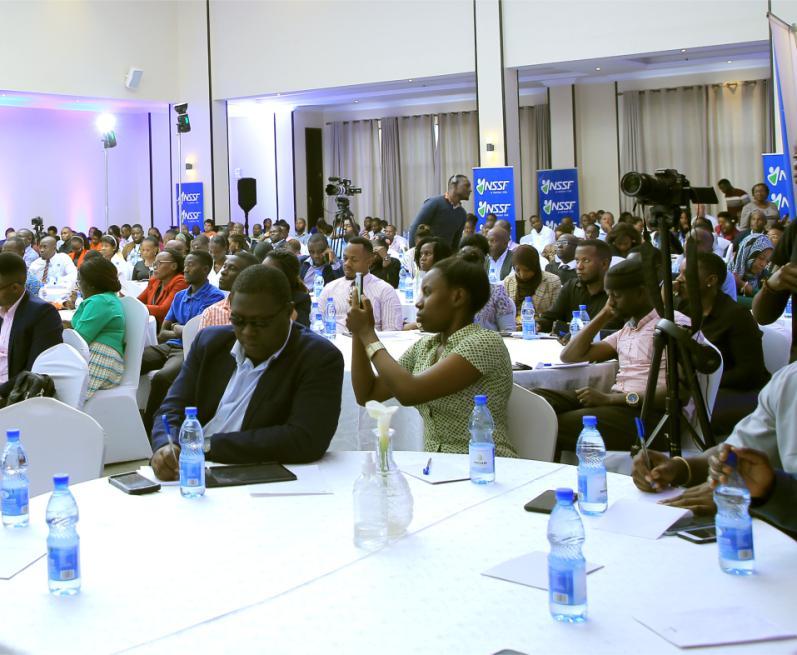
Understanding our stakeholder needs and expectations
We can only achieve our purpose by working together with our stakeholders to understand their needs and expectations. We actively involve all our stakeholders, who have different interests, in an ongoing process of collaboration. Our goal is to create solutions that improve the quality of life for everyone working in the private sector, including nongovernment organisations. We aim to provide a safety net against life's uncertainties by offering comprehensive social security services.
We acknowledge our role as a responsible corporate citizen, striving to create sustainable value for our members, stakeholders, and society. We are dedicated to implementing practices that focus on ESG principles, aiming to ensure our long-term success.
Stakeholder management and governance
A Board-approved Stakeholder Engagement/Management Policy guides stakeholder management and governance, in line with the Fund's overall business objectives.
The Fund also engages with these stakeholder groups to gain insights into their needs and perspectives and share information about our strategy, practices, and performance. Our reputation depends on and is also influenced by stakeholder perceptions, which in return affects our performance. We have a shared responsibility to engage with stakeholders across all aspects of our Fund's operations and functions, utilising various communication channels.
Our stakeholders include oversight bodies, other government entities, trade unions, media, professional associations, specific individuals, service providers, members, as well as the Fund's management and staff.
The Board, through the SACA, is responsible for our stakeholder engagement.
Stakeholder Influence and Interest Matrix
•
•
•
•
•
•
Potential Members • Policy Makers
Employees
Employers
Trade Unions
Industry associations
Partners
General Public
Communities
Suppliers
•
•
•
•
•
•
•
•
•
Regulators:
Ministry of Finance
Ministry of Labour
URBRA
•
Policy Makers
Parliament
PPDA
Solicitor General
•
•
Attorney General
Uganda Revenue Authority INTEREST HIGH MODERATE LOW INFLUENCE OF POWER HIGH MODERATE LOW
•
ESG SUSTAINABILITY REPORT 1. INTRODUCTION NSSF - ESG SUSTAINABILITY REPORT - PAGE 17
Quality of stakeholder relationships
We measure the quality of stakeholder relationships through defined metrics to monitor satisfaction levels on an ongoing basis. Overall, for the period under review, we believe that through focused engagement with our stakeholders, we have maintained healthy and mutually rewarding relationships.
Below, we demonstrate our commitment, engagement, and quality of our relationships with key stakeholders through the value we have delivered.
Customers (our members and potential members)
NEEDS AND EXPECTATIONS
• Excellent customer service and advice
• Timely turnaround times for payout of benefits
• Competitive return on savings
• Support beyond retirement
• Efficient and convenient engagement channels
• Products to meet long-term and short-term savings needs
PERFORMANCE MEASURES/VALUE DELIVERED
• Customer satisfaction index 88% (2022: 82%)
• Turnaround time for payment of benefits 11.9 days (2022:12 days)
• Seed funded 147 women entrepreneur small and growing business with USD20,000 each, so far creating and sustaining 1,700 direct jobs and 37,000 indirect jobs
• Designed and tested solutions to support voluntary savings products rollout
RISKS
• I nability to engage and educate members and the public on opportunities to save as per the NSSF Amendment Act 2022
• Inability to meet short-term and long-term savings needs
Employees (our staff)
NEEDS AND EXPECTATIONS
• Recognition, reward and benefits
• Diversity and inclusion
• Employment security, safety and wellbeing
• Growth, learning and development opportunities

• Provide enabling tools
• Improved communication and engagement
PERFORMANCE MEASURES/VALUE DELIVERED
• Employee satisfaction score 86% (2022: 92%)
• Rolled out the Pathfinder Catalyst Academy and graduated 30 female staff
• Holistic health and wellness programme for staff and their families


• Board, management and CEO quarterly engagements with staff
• I mplemented policies on human rights, equal opportunities, labour conditions, ethical conduct, and environmental protection in the workplace to include 51 women acquired new jobs out of the 116 available and we conducted work and safety training
• Completed organisational restructuring aimed at aligning the Fund to our new business model
RISKS
• Inability to attract, retain and motivate staff could impact negatively on service delivery, thereby leading to negative reputation
MEETING EXPECTATIONS FALLING SHORT OF EXPECTATIONS
STRATEGIC RESPONSE TO DELIVER VALUE
• Ongoing customer surveys to measure performance and identify areas of improvement
• Further refinement of core systems to improve turnaround times


• Building strong relationships through engagement channels, and partnerships
• Supporting members beyond retirement through financial literacy and support for entrepreneurs
• Campaigns to increase awareness, compliance and saving

OPPORTUNITIES AND OUTLOOK
• Develop and deepen the concept for KYC and 360-degree view of our members
• Implement Voice of the Customer Led Designs and continuously improve our processes, systems and channels to improve turnaround times
• Rollout convenient products and services to increase coverage
QUALITY OF RELATIONSHIP
STRATEGIC RESPONSE TO DELIVER VALUE
• Ongoing employee surveys to measure engagement and identify areas of improvement
• Continue to create a work environment for employees to thrive
• Implement training, development and growth opportunities like the Pathfinder Catalyst Academy
• Continue implementing reward and recognition best practices
OPPORTUNITIES AND OUTLOOK
• Promote and grow the Pathfinder Catalyst Academy to achieve 40:60 gender ratio by 2030, ensuring that women occupy at least 40% of managerial positions


• Increase staff satisfaction
• Improve our talent development and management practices
• Continue improvements in celebrating diversity and collaboration among employees from various backgrounds
QUALITY OF RELATIONSHIP
INTRODUCTION | COMPANY PROFILE | SUSTAINABILITY STRATEGY AND GOALS | SUSTAINABILITY LEVERS | GOVERNANCE AND ETHICS | FUTURE OUTLOOK AND GOALS NSSF - ESG SUSTAINABILITY REPORT - PAGE 18
Regulators and Government
NEEDS AND EXPECTATIONS
• Good performance against our long-term strategy and outlook
• Ensure quality of management
• Profitability, growth potential and a good annual interest
• Ensure code of conduct and regulatory compliance
• ESG considerations
• Implement policy, advocacy, technical input and information sharing
• Creation of sustained value for the Fund's stakeholders and members
PERFORMANCE MEASURES/VALUE DELIVERED
• Liaised openly and constructively with various regulators, including conducting ongoing discussions in support of our corporate governance and operations strategy
• Continued to design solutions contributing to expanding social security coverage and enriching the range of benefits available to savers
• Realigned the Fund's organisational structure to take advantage of the opportunities presented by NSSF (Amendment) Act 2022
• Support realisation of ESG good practice and prioritised SDGs







• Continued discussions and engagements with PPDA, URA and URBRA on issues of investment, procurement, taxes, and policy
RISKS
• Lack of awareness of the legal and regulatory changes leading to an inability to meet regulatory requirements, compliance, and potential damage to reputation
Suppliers
NEEDS AND EXPECTATIONS
• Ensure responsible purchasing
• Support local suppliers
• Ensure prompt payment schedules
• Act ethically and transparently
• Fair terms of trade
• Sustainable sourcing
PERFORMANCE MEASURES/VALUE DELIVERED
• Directly served 430 suppliers and awarded UGX 191.3Bn in contracts
• Procurement efficiency rating of 93% (2022: 92%)
• Supplier Forum in June 2023 with 313 suppliers physically attending
• Digitised our contract management process
• Our supplier approach is shaped by our Sustainable Procurement Charter
STRATEGIC RESPONSE TO DELIVER VALUE
• Engagement with regulators on key themes relating to regulatory compliance such as the NSSF Amendment Act 2022, PPDA and URBRA, as applicable
• Promotion and implementation of Good corporate governance
• Good business sustainability and stakeholder management
OPPORTUNITIES AND OUTLOOK
• Work with Ministry of Gender and Labour to expand awareness and coverage of social security as per the NSSF Amendment Act 2022
• Constantly monitor, evaluate and audit our corporate governance practices, legal and regulatory requirements
QUALITY OF RELATIONSHIP
STRATEGIC RESPONSE TO DELIVER VALUE
• Ongoing procurement efficiency evaluation to measure performance and identify areas of improvement
• Improve and increase supplier engagements
• Promoted supplier competitiveness
• Prompt and uninterrupted delivery of materials/services
OPPORTUNITIES AND OUTLOOK
• Further digitise the procurement process
• Sustainable procurement efficiency, supplier satisfaction and experience
• I mprove contract management practices
RISKS QUALITY OF RELATIONSHIP
• Engaging and enlisting unscrupulous suppliers could lead to conflicts of interest, bribery and poor service delivery impacting negatively on our reputation
Read more detail in our NSSF Integrated Report 2023 on page 106
ESG SUSTAINABILITY REPORT 1. INTRODUCTION Read more detail in our NSSF Integrated Report 2023 on page 109 NSSF - ESG SUSTAINABILITY REPORT - PAGE 19
Industry Associations
NEEDS AND EXPECTATIONS
• Collaborations to Keep abreast with key developments and standards and respond to new requirements
• Regulatory advocacy
• Increase product, service and social security development
PERFORMANCE MEASURES/VALUE DELIVERED
• Collaborated with our partners such as NIRA, URA, URSB on specific solutions such as registration that required a multi-partner approach
• Liaised with the Uganda National Roads Authority via the Road works contractors' workshop regarding compliance
• In partnership with Mastercard Foundation, we are on course to seed fund 5,000 small and growing businesses with each receiving USD20,000
• Work with Banks in supporting our collections, benefits payments and financial market operations
• Support realisation of ESG practices and prioritised SDGs









• Mutually beneficial collaborations with local and regional industry associations such as, International Social Security Association, East and Central Africa Social Security Association
RISKS
• Lack of engagements leading to inability to meet regulatory requirements, compliance, and damage to reputation
Communities
NEEDS AND EXPECTATIONS
• The value we bring to the communities in which we operate through purposeful CSI activities
• Local community factors including ESG considerations
PERFORMANCE MEASURES/VALUE DELIVERED
• Completed renovations of four public primary schools with over UGX 298M spend, improving the learning environment for more than 15,000 learners
• We raised more than UGX 940M from partners, individuals and communities to refurbish public schools because of NSSF Kampala Seven Hills Run
• Registered an attendance and reach of 16,000 students from the University Career Expo. The Expo has cumulatively contributed over UGX 36.4Bn in the last 12 years, to prepare students for the workplace and equip them with skills and knowledge to increase their employability
• Engaged and impacted 2,376,471 people on financial wellness via our Financial Literacy Initiative
• Seed funded 155 small and growing businesses each with USD20,000 under our HiInnovator initiative in partnership with Mastercard Foundation. So far, the programme has created and/or sustained 1,700 direct jobs, and 37,000 indirect jobs
• Launched the Solana Lifestyle and Residences that will comprise of 2,750 residences to include apartments, townhouses, bungalows, and villas, creating infrastructure development and healthy living
• Collected 2,700 units of blood in partnership with the Uganda Blood Bank promoting healthy and better lives
• Our scalable activities continue to provide great content for our media channels and improve public perception of our Fund
STRATEGIC RESPONSE TO DELIVER VALUE
• Participate in industry-led initiatives pertaining to policy and law
• Business and sector forum engagement and participation
• Capacity building initiatives
OPPORTUNITIES AND OUTLOOK
• Provide platforms for broader actions on social security coverage and development


• I dentify and increase partnerships to support increase in coverage and best practices
• Address social security-related developments, concerns, and initiatives and sharing lessons and best practice
QUALITY OF RELATIONSHIP
STRATEGIC RESPONSE TO DELIVER VALUE
• Implemented CSI initiatives like Seven Hills Run, KAVC, blood donation drive, school renovations and Career Expo
• Conducted Financial Literacy wellness training for customers
• Continued to seed fund small and growing business through the HiInnovator programme in partnership with Mastercard Foundation
OPPORTUNITIES AND OUTLOOK
• Continue to refine our CSI activity for impact
• Identify and continue working with partners to positively impact communities and expand social security coverage
RISKS
• The inability to create a positive and sustainable impact on the communities within which we operate has a negative impact on the sustainability of our operations and the economy at large
QUALITY OF RELATIONSHIP
INTRODUCTION | COMPANY PROFILE | SUSTAINABILITY STRATEGY AND GOALS | SUSTAINABILITY LEVERS | GOVERNANCE AND ETHICS | FUTURE OUTLOOK AND GOALS NSSF - ESG SUSTAINABILITY REPORT - PAGE 20
COMPANY PROFILE
ESG
SUSTAINABILITY REPORT


Overview
of Operations
Purpose, Vision, Mission, and Core Values
Geographical Presence

2. COMPANY PROFILE 23 23 24 NSSF - ESG SUSTAINABILITY REPORT - PAGE 22
Purpose, Vision, Mission, and Core Values
OUR PURPOSE
Our purpose is to make lives better. We passionately dedicate ourselves to making saving a way of life, to enable more and more people to improve their well-being.
OUR VISION
To be the social security provider of choice.
OUR MISSION
To be a relevant partner to our members through continuous innovation in provision of social security.
CORE VALUES
Innovation
We are a robust organisation that is always looking for new ways of delivering value to our members.
Customer centric
We are committed to achieving higher levels of customer satisfaction through continuous improvement in our services.

Efficiency
We promise to continuously collaborate with stakeholders to discover and apply safer, better, faster, and more cost-efficient ways to provide services that our customers value.
Integrity
We commit to be ethical and honest to inspire trust by matching our words to our actions.

Teamwork
We are committed to developing and maintaining healthy internal relations that harnesses respect, positive attitude, and open mindedness in order to meet the demands of our customers.
Overview of Operations NSSF @ a Glance 17 Branches 4 Sub - Branches 27 Outreach Centres 576 Dedicated Staff 2.4M Registered Members 32.3K Registered Employers 1.72Tn Total Contributions UGX 2.2Tn Total Realised Income UGX 1.03% Cost of Administration 18.56Tn Total Asset Value UGX 1.19Tn Benefits Paid Out UGX 11.9 Days Benefits Turn Around Time
ESG SUSTAINABILITY REPORT 2. COMPANY PROFILE NSSF - ESG SUSTAINABILITY REPORT - PAGE 23
Geographical Presence


Northern Region Lira Plot No.43 Bazar Road P. O. Box 406, Lira
Western Uganda


Gulu Plot No. 23 Andrea Olal Road (Opposite Total) P.O. Box 730, Gulu
Port Road (Opposite Masindi Court) P.O. Box 199, Masindi
Hoima Plot No. 33 Lusaka, Hoima-Kampala Road (Next to Messiah Clinic)
Eastern Region
Mbale Plot No.1, Oval Plaza Court Road (Near Housing Finance Bank) P. O. Box 1574, Mbale
Central Region Kampala City Branch Ground floor Workers House Plot No.1 Pilkington Road P.O. Box 7140
Arua Plot No. 49 ML Plaza, Adumi Road P.O. Box 418, Arua Masindi Plot No. 17/19
Fort Portal Plot
1 Maliba Road Mbarara 1st Floor Mbarara City House Ishaka Plot No.
Block
Bushenyi-Ishaka Municipality Kabale Plot No.
Mbarara Road P. O. Box 203, Kabale Masaka Plot
Edward
P. O.
Masaka
No.
112
14
91-95
No.21
Avenue
Box 1290,
Bugolobi
Luthuli
Acacia
Bakuli
Kampala
1st Floor Village Mall Bugolobi Plot 7-9
Avenue
Ground Floor Acacia Mall John Babiiha Avenue Kisementi
Plot No. 719 Sir Apollo Kagwa Road K Hotel Building Entebbe Entebbe Imperial Mall Plot M79 Lugard Avenue Kampala-Entebbe Road
Moroto
Uhuru
P.
INTRODUCTION | | SUSTAINABILITY STRATEGY AND GOALS | SUSTAINABILITY LEVERS | GOVERNANCE AND ETHICS | FUTURE OUTLOOK AND GOALS COMPANY PROFILE NSSF - ESG SUSTAINABILITY REPORT - PAGE 24
Soroti Cell A Central Ward Eastern Division Soroti City
Plot 24 Lia Road Jinja Ground Floor Jinja City House Lubas Road Tororo Plot No. 8A
Drive
O. Box 1574, Mbale Mukono Plot No 3A Bishop Tucker Road Central Business Area Mukono
SUSTAINABILITY STRATEGY AND GOALS

ESG
SUSTAINABILITY REPORT

Our Approach to ESG and Sustainability

Our ESG Objectives
Integrating ESG and Sustainability in our Strategy
3.
27 28 29 NSSF - ESG SUSTAINABILITY REPORT - PAGE 26
SUSTAINABILITY STRATEGY AND GOALS
Our Approach to ESG and Sustainability
The Fund has built its reputation for standing by its members, customers, and communities. The events of 2021 - the global Covid-19 pandemic, a societal reckoning with financial distress and the increasingly visible effects of climate change - underscore why understanding, anticipating and effectively managing ESG matters is critical to delivering on our mission to making lives better for our members, customers, and communities. Now, more than ever, a strong focus on ESG is a business imperative - and a key driver of long-term business success.
We are acting on sustainability by using our business and brand to build a better future. For people. For the planet.
Our focus on long-term value creation and innovation positions sustainability at the heart of everything we do.
From our culture of integrity and inclusion, our strategic investments in education, health, youth, and how we manage our supply chain, to how we operate in support of environmental sustainability, our Corporate Social Investment (CSI) and business strategies are tightly integrated.
We will continue to challenge ourselves, using our voice to drive action on sustainability and leading by example, to create a thriving society, driving economic growth for a greener sustainable future.
Our customers expect this from us because they want to do business with an institution they believe is socially and environmentally responsible. We are committed to meeting their expectations, and we hold ourselves accountable by continuing to report our progress in support of addressing the challenges of the UN 2030 SDGs.
In the pages ahead, you will learn about the impact we are making, and the programmes we are driving to make lives better, not only for our members but the communities within which we operate.
NSSF has prioritised commitment to the following SDGs:
ESG SUSTAINABILITY REPORT 3. SUSTAINABILITY
AND
NO POVERTY GOOD HEALTH & WELL-BEING QUALITY EDUCATION GENDER EQUALITY CLEAN WATER & SANITATION DECENT WORK & ECONOMIC GROWTH INNOVATION & INFRASTRUCTURE SUSTAINABLE CITIES & COMMUNITIES RESPONSIBLE CONSUMPTION & PRODUCTION CLIMATE ACTION PEACE, JUSTICE & STRONG INSTITUTIONS ENVIRONMENT
ESG E S G NSSF - ESG SUSTAINABILITY REPORT - PAGE 27
STRATEGY
GOALS
SOCIAL GOVERNANCE
Our ESG Objectives
We have clearly defined ESG objectives, and in the table below we summarise what the environmental, social (and economic) and governance objectives are in NSSF:
Environmental
Objectives
• Developing financial solutions that drive action on climate change and generate other positive environmental impacts

• Managing environmental risks, including climate-related risks
• Minimising the environmental impacts of our physical operations
• Partnering with organisations to advance sustainable development
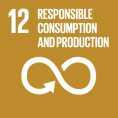

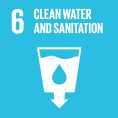

• Sustainable cities and communities
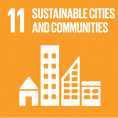
Social and Economic
Objectives
• Acting in the best interest of our customers
• Addressing human rights-related risks

• Developing financial solutions that improve quality of life and generate other positive social impacts

• Expanding access to education to promote economic opportunities in the communities where we do business
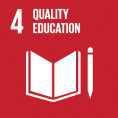
• Driving economic prosperity and growth in Uganda (support of local suppliers, promoting the growth of Ugandan businesses, support of the agro-industry)

• Investing in our human capital
• Promoting diversity, equity, and inclusion
• Strengthening customer financial health
• Adopting a robust investment strategy to ensure long term sustainability of the Fund
Relevant capitals
Relevant capitals
Governance
Objectives
• Cultivating a strong risk and control environment
• Fostering a culture of transparency and ethical behaviour
• Maintaining effective Board leadership and management processes
• Participating in political engagement and public policy
• Safeguarding privacy and cybersecurity
• Ensuring sound oversight of ESG
Relevant capitals
Relevant strategic objectives
Relevant strategic objectives
Relevant strategic objectives
Relevant material matters
Relevant material matters
Relevant material matters
Relevant sustainability drivers
• Environmental protection
Relevant sustainability drivers
• Customer satisfaction
• Financial resilience
• Inclusivity
• Social responsibility
Relevant sustainability drivers
• Customer satisfaction
• Financial resilience
• Inclusivity
• Social responsibility
• Environmental protection

INTRODUCTION | COMPANY PROFILE | | SUSTAINABILITY LEVERS | GOVERNANCE AND ETHICS | FUTURE OUTLOOK AND GOALS SUSTAINABILITY STRATEGY AND GOALS
NSSF - ESG SUSTAINABILITY REPORT - PAGE 28
Integrating ESG and Sustainability in our Strategy

The visual depiction of our strategy on the right hand side illustrates our approach to ESG and sustainability, which is premised on:
CREATING VALUE
Identifying commercial opportunities to address ESG challenges
PROTECTING VALUE
Identifying and responding early to ESG-related risks
ENABLING VALUE
Leading broader change by using our influence through collaboration across the value chain
Furthermore, we have identified five sustainability drivers which are based on assigning value to the capital assets we depend on for our economy and society to flourish, as they are all interdependent. Our sustainability drivers are embedded in our strategy and are focused on ensuring sustainability for our business, our customers, communities, society, the economy, and the environment.
Our strategy is underpinned by good corporate governance, which is implemented in an integrated manner, promoting an ethical culture, good performance, effective control and legitimacy.
SUSTAINABILITY DRIVERS
ESG
Environmental Protection Inclusivity Financial Resilience Customer Satisfaction Social Responsibility ESG SUSTAINABILITY REPORT 3. SUSTAINABILITY STRATEGY AND GOALS NSSF - ESG SUSTAINABILITY REPORT - PAGE 29
Integrating ESG into our FY 2025 Strategy
OUR VISION OUR CORE PURPOSE
Our purpose is to make lives better. We passionately dedicate ourselves to making saving a way of life, to enable more and more people improve their well-being
To be the social security provider of choice
Our core purpose and vision guide our strategic direction and remind us of why we exist for long-term sustainable value creation
OUR ASPIRATIONS - UNDERPINNED BY DIGITAL INNOVATION
PROVIDING WORLD CLASS SERVICE TO OUR MEMBERS
Achieve a customer satisfaction rate of 95%
ACHIEVING COMPETITIVE RETURNS
Achieve a Fund Asset size of UGX 20Tn Underpinned by digital innovation
INCREASING EFFICIENCIES TO IMPROVE SERVICE DELIVERY
Pay members who claim within 24 hours
BECOMING THE EMPLOYER OF CHOICE
Achieve a staff satisfaction rate of 95%
Our aspirations illustrate the four pillars that underpin our strategy and what we aim to achieve by the end of FY 2025.
Our digital innovation strategy is key to remaining relevant and supports the achievement of our measurable objectives
CREATE VALUE
Through initiatives to address sustainability challenges (SDGs)
UNLOCKING SUSTAINED VALUE THROUGH ESG CONSIDERATIONS
PROTECT VALUE
By mitigating social, environmental and governance risks
ENABLE VALUE
Through partnerships and stakeholder engagement
Our commitment to create, protect and enable value is demonstrated through our support of ESG imperatives and our strong stakeholder relations
OUR VALUES
CUSTOMER CENTRIC EFFICIENCY INTEGRITY INNOVATION TEAMWORK
Our values form the foundation of our commitment on how we engage internally and externally with our stakeholders and support integrated thinking across our operations
CUSTOMER SATISFACTION
OUR ENVIRONMENTAL, SOCIAL AND ECONOMIC SUSTAINABILITY DRIVERS
SOCIAL RESPONSIBILITY
FINANCIAL RESILIENCE INCLUSIVITY
ENVIRONMENTAL PROTECTION
Our sustainability drivers are embedded in our strategy and are focused on ensuring sustainability for our business, our customers, communities, society, the economy and the environment
OUR STAKEHOLDERS
COMMUNITIES EMPLOYEES REGULATORS & POLICYMAKERS CUSTOMERS INDUSTRY ASSOCIATIONS
Our stakeholders are integral to our business and play a vital role in enabling us to create a stronger legacy in our promise to make lives better now and for generations to come. Our stakeholder conversations shape how we define and execute our strategy to include materiality, new business opportunities and sustainable development
INTRODUCTION | COMPANY PROFILE | | SUSTAINABILITY LEVERS | GOVERNANCE AND ETHICS | FUTURE OUTLOOK AND GOALS SUSTAINABILITY STRATEGY AND GOALS NSSF - ESG SUSTAINABILITY REPORT - PAGE 30
SUSTAINABILITY LEVERS
ESG
SUSTAINABILITY REPORT


Our Commitment to Deliver Value to our Customers
Our Relationship with our Customers
Our Key Material Areas to Creating Value for our Customers
Key Developments in FY 2023
Achievements Against Performance Measures
Future Outlook
Critical Success Factors
Diversity, Equity and Inclusion
Key Staff Initiatives in FY 2023
Our Approcah to Corporate Social Investment (CSI)
Social Security Needs
CSI Initiatives
Critical Success Factors
Navigating Challenges with Sustainable Resilience
Value-added Statement
Key Developments in FY 2023
Achievements Against Performance Measures
Critical Success Factors
Hi-Innovator Programme
External Innovation: Women Accelerator
Achievements Against Performance Measures
Internal Innovation: Black Swan and Trailblazers
Achievements to Date
Critical Success Factors
Our Approach to Managing Environmental Risk

Our Action on Climate Change
Key Initiatives in FY 2023
Achievements Against Performance Measures
Critical Success Factors
4. SUSTAINABILITY LEVERS 33 34 34 35 35 38 38 38 4.2 Social
Sustainability
Social Responsibility
Resilience
and
Sustainability
Inclusivity
Environmental Stewardship - Sustainability Lever: Environmental Protection 40 41 45 46 49 52 54 55 55 56 56 58 58 60 61 64 64 66 66 66 69 70 NSSF - ESG SUSTAINABILITY REPORT - PAGE 32
Impact and Engagement -
Lever:
4.3 Economic Impact - Sustainability Lever: Financial
4.4 SMME Development
Entrepreneurship –
Lever:
4.5
4.1 Customer Centricity - Sustainability Lever: Customer Satisfaction
4.1 Customer Centricity - Sustainability Lever: Customer Satisfaction
CUSTOMER SATISFACTION
In order for the Fund to be sustainable, customer-centricity is at the heart of what we do. Building long-term relationships with our customers is core to our growth strategy and organisational values. To ensure a highquality customer experience, we prioritise meeting three core needs of our members: effective planning for their needs, empowering them with choices, and making them feel valued. This focus allows us to offer highvalue and personalised services at NSSF.
At NSSF we pride in offering world class customer services.
Following the NSSF Amendment Act 2022, we have been on a drive to grow our member and employer base beginning with those employers employing under five staff. This is in alignment with making our products and services more accessible by driving inclusion for all.

• Our Commitment to Deliver Value to our Customers
• Our Relationship with our Customers
• Our Key Material Areas to Creating Value for our Customers
• Key Developments in FY 2023
– Digital Benefits Claim Application
– WhatsApp ChatBot
– Know Your Customer (KYC) Transformation
– Instant self-registration via Mobile Telecom USSD
– Savings Payment using NSSF Number Over the Bank Counter
– Benefits Processed and Paid
– Annual Members Meeting
– Awards Won in FY 2023
– Member Testimonials
• Achievements Against Performance Measures
• Future Outlook
• Critical Success Factors
NSSF - ESG SUSTAINABILITY REPORT - PAGE 33 ESG SUSTAINABILITY REPORT 4. SUSTAINABILITY LEVERS
Our Commitment to Deliver Value to our Customers
At NSSF, every aspect of our operations and initiatives influences our customers' perception. Whether it is addressing operational issues, introducing new products, or fulfilling our mandate, the goal is to deliver an exceptional customer experience. To achieve this, we work together across the entire organisation, striving to improve and sustain every aspect of our customers' journey.
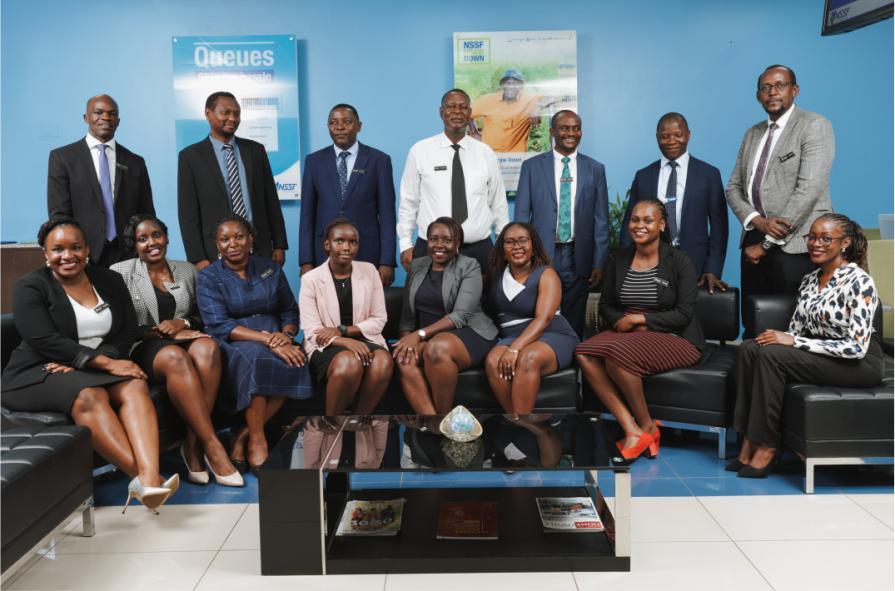
Our commitment to delivering value is driven by our passion for serving our members in the best way possible. We recognise the importance of our people's quality and dedication and our ability to collaborate effectively and create synergies. As we provide social security services, we offer various engagement platforms, including digital solutions, contact centers, walk-in services through our branch network and outreach centers, and personalised assistance from relationship managers.
In our pursuit of Responsible Growth, we keep our customers' unique financial needs at the forefront, ensuring that our products and services evolve to meet their requirements.
Our Relationship with our Customers
Our member services encompass customer experience, benefits and data, and service quality. These services enable us to transform our resources into valuable outcomes that align with our strategic goals and benefit our customers. Throughout our journey, we have cultivated strong and enduring relationships with our customers, staying true to our mandate.
We achieve this by:
• Continuously improving our services and striving for higher levels of customer satisfaction.
• Fair treatment, transparent communication, and timely service delivery are integral to our inclusive approach that respects and reflects the diversity of our customer base.

• Living up to our promise of making lives better by offering simplicity, convenience, speed, safety, accuracy and clarity in our offerings.
Our staff are customer centric and our members are a priority to us.
To gauge the quality of our customer relationships and service, we conduct regular external and internal service tracking. These include various indicators such as a Customer Satisfaction Index, Net Promoter Score (NPS), Mystery Shopper Survey Score, Service Quality Score, Customer Effort Score, Service Level and Efficiency, First Call Resolution, Customer Complaints and Resolution Time Around Time (TAT), and E-channels to Walk-in ratio.
Although we have made significant improvements in service levels, our dedication to transparency, accountability, and ethical leadership drives us to strive for even greater performance. We remain committed to acknowledging areas for improvement and fulfilling our mandate with utmost dedication.
INTRODUCTION | COMPANY PROFILE | SUSTAINABILITY STRATEGY AND GOALS | | GOVERNANCE AND ETHICS | FUTURE OUTLOOK AND GOALS SUSTAINABILITY LEVERS
NSSF - ESG SUSTAINABILITY REPORT - PAGE 34
SUSTAINABILITY LEVERS
Our Key Material Areas to Creating Value for our Customers
Key member and customer concerns
• Simplicity and convenience
• Speed, safety and accuracy
• Benefits that matter
• Clarity of offerings
Material areas
…to achieve the following value
• Providing our customers with a personalised services offering
• Continuously automating processes and driving innovation
• Clear communication
• Ensuring Know your Customer (KYC) at each point of contact
• Improving front and back-end collaborations
• Process improvements
• Embracing Financial Literacy at all touchpoints
• Continuously empower our staff provide excellent and consistent customer experience
Nature of relationship
For our Fund
• Improved customer experience and satisfaction
• Improved NPS
• Increased service quality
• Customer trust and support
• Growth of the customer base
For our customers
• Simple, efficient, and convenient service solutions accelerated by innovation and digital enablement
• A safe, trustworthy, and accountable social security provider
• Timely benefits payments
• Profitability and competitive returns
• Empowered customers making better financial decisions
• Increased clarity on offerings via customer engagement
Our customers are the members who are the principal owners of the Fund and direct beneficiaries of Fund services. These are made of employers who are entities of varying sizes across diverse industry sectors that make contributions on behalf of employees (workers). The employees are those in these entities in the private sector and are earning a wage. Through the NSSF (Amendment) Act 2022, we are expanding social security coverage to the informal sector and ensuring that all workers and their loved ones invest in their future and plan for retirement.
Key Developments in FY 2023
In our pursuit of fast and effective customer service, we foster an environment that promotes curiosity, digital thinking, and continuous improvement among our people. This approach empowers us to swiftly refine ideas and deliver brilliant solutions.
Throughout FY 2022/23, we placed significant emphasis on enhancing our customer experience and service. This involved leveraging enterprise technology, investing in digital capabilities, streamlining, and automating processes, and empowering our people to deliver the best customer experience. All of this was achieved amidst the challenges of ensuring stability in our operations.
Despite a challenging year, we are not defined by our setbacks, and we will gauge our success by our ability to learn from these and rise above them with renewed vigour and determination to fulfil our mandate.
Our approach to making lasting, positive change in our customers' lives is focused on talent, diversity, equity and inclusion. In our efforts to position ourselves, we recognised our responsibility as a conscientious corporate citizen to generate sustainable value for our members, stakeholders and society.

ESG SUSTAINABILITY REPORT 4.
NSSF - ESG SUSTAINABILITY REPORT - PAGE 35
Key initiatives
Digital Benefits Claim Application
We successfully implemented the Digital Benefits Claim Application, offering online claims processing for members on both the Web App and the Mobile App. This front-end verification process has resulted in faster service, accommodating walk-in customers. Key outcomes include online application options, real-time biometric and bank details verification using facial recognition, and reduced paper usage and printing costs.
WhatsApp Chatbot
We deployed “Sanyu”, an Artificial Intelligence-powered chatbot on our customer WhatsApp channel. The chatbot enables our customers to register with NSSF, track their benefits processing, check their provisional statement balances, and respond to their Frequently Asked Questions (FAQs). Where customer requests cannot be fulfilled, Sanyu is seamlessly routing the query to the best available agent.

Know Your Customer (KYC) Transformation
As part of our KYC Transformation, we have taken steps to better understand and serve our customers using existing information. Through a KYC solutions portal deployed via MTN, we enable over 1.5 million customers to update their non-financial data using their individual global identifier, such as their National ID Number, Passport, or Refugee Number. This ensures proper identification of our customers and facilitates business relationship growth, while also enhancing our 360-degree view of the customer to further improve service delivery.
Instant self-registration via Mobile Telecom USSD
Through a strategic partnership with a leading mobile telecommunications company, MTN, we have streamlined the enrolment process for new customers. Using USSD, over 3,000 new customers have successfully registered and obtained their personal social security numbers. This efficient channel ensures instant confirmation of their NSSF number or account via SMS, enhancing the overall enrolment experience for our valued customers.
Savings Payment Using NSSF Number Over the Bank Counters
We have introduced a convenient and cost-effective option for our voluntary customers. They now have the choice to transact and pay contributions at zero cost over the bank counter using their NSSF 13-digit number. This service has been successfully rolled out in collaboration with DFCU bank, and we are actively working to expand it to other bank platforms, including Agent, Online Payments, Standing orders, Bank App payments and Mobile Wallets. Our commitment is to enhance the quality of life for all our customers, ensuring their savings are promptly remitted and contributing to their financial stability for the future.

Benefits Processed and Paid
In the last financial year, we efficiently processed benefits for 46,337 members and disbursed a record-breaking amount of UGX 1,205,754,493,803 with an average turnaround time of 11.9 days, a notable improvement compared to the 12.3 days in the previous year. This marks the first time in the Fund's history that we paid out over one trillion Uganda Shillings in a single year. The increase in benefits payment was driven by a significant rise in claimants, both midterm and age-related.
Our commitment is to improve the quality of life for all our members, ensuring that when we disburse benefits to eligible individuals, we empower them to enhance their financial stability and overall well-being. We continuously strive to streamline our processes, delivering prompt and seamless services to our valued customers.
INTRODUCTION | COMPANY PROFILE | SUSTAINABILITY STRATEGY AND GOALS | | GOVERNANCE AND ETHICS | FUTURE OUTLOOK AND GOALS SUSTAINABILITY LEVERS
NSSF - ESG SUSTAINABILITY REPORT - PAGE 36
Annual Members Meeting
On 27 September 2022, the Fund held an interactive Annual Members Meeting (AMM) in line with our commitment to transparency and accountability to NSSF members, stakeholders, and the public. The event has, over the years, become a significant highlight for the Fund, attracting key NSSF partners as well as contributors.
During the meeting, Fund management shared information about social security and current social security trends and the operations of NSSF regarding contributions collection, benefits payments, investments and future initiatives. The event highlighted our purpose of making savings a lifestyle.
The Board of Directors reported on the performance and plans of the Fund for the current financial year, and in turn, received feedback in an interactive forum.
The event was majorly virtual through our online platforms, television, and the Fund's social platforms.
Achievements:
We attained a total real-time livestream views of 12,909 compared to the previous financial year of 11,081. The event coverage registered 100% positive sentiments.

Awards won in FY 2023
In May 2023, the Fund received three International Social Security Association (ISSA) Good Practice Awards on:
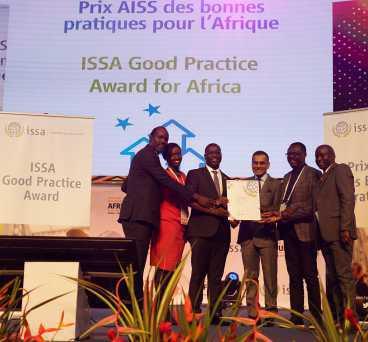
• Automating Member Benefits Claim
• Invalidity Benefit Payments to Members affected by Covid-19
• Roll out of the Smartcard.
This was during the Regional Social Security Forum for Africa (RSSF Africa) held in Abidjan, Côte d'Ivoire. The awards highlight our innovative service delivery and demonstrate how social security can enhance resilience and sustainability.
Member Testimonials
“This is to appreciate your excellent customer service (online team) and also acknowledge the kind and professional staff that worked on my account (Acacia branch). Thank you for the good customer experience.” - Yours Jackline
“Our 5 stars of appreciation go to Docus at the customer care desk. She did such a splendid job in helping us get an NSSF number including delivering past office hours. You are amazing” - Docus.
“Thank you for the advice. I must say, I appreciate the service NSSF offers digitally.” - Anonymous
“I am grateful for your excellent customer service. The last time, in August 2020, my claim took three weeks, but this time it was only three working days. Thanking you sincerely.” - Anonymous
“NSSF Mbarara offices are open at 8am. You are welcomed by friendly and smiling faces and get served immediately. Who does that? Even private businesses are still closed at that time!” - Anonymous
 NSSF Executive Committee answering member queries at the Annual Members Meeting.
NSSF Executive Committee answering member queries at the Annual Members Meeting.
ESG SUSTAINABILITY REPORT 4. SUSTAINABILITY
NSSF - ESG SUSTAINABILITY REPORT - PAGE 37
LEVERS
Achievements Against Performance Measures
Impact over five years
Future Outlook
Looking ahead, we are focused on the following priorities to improve customer experience:
• Develop and deepen the Concept for 360-degree view of our members.
• Improve every interaction between our front facing service advisors and customers, with further investment in skills and tools.
• Implement Voice of the Customer Led Designs.
• Develop all our digital (online) channels to enable more customers to adopt online as the best method of interacting with us.
• Enable all our people to put customers' needs at the heart of their decision making.
• Continuously improve our processes and solutions to improve customer convenience and interactions.
Critical Success Factors for Customer Satisfaction
• Leverage opportunities resulting from the new law to develop new products and services for our customers to meet individual needs for both long- and short-term savings, for example, creating a unit trust.

• Changing the business model from a relationship management model currently servicing 30,000 employers to an agile model which will be scalable to service 150,000 employers and potentially 14 million individuals in the informal sector.
• Optimise digitisation and innovation to improve customer service.
• Continue to achieve outstanding customer service results.
• Streamline structures to enable internal resources to initiate solutions to challenges swiftly to better serve our customer base.
Description FY 23 Target FY 19 FY 20 FY 22 FY 21 FY 23 FY 25 Target Customer Satisfaction Score 86% 84% 83% 86% 82% 88% 95% 86% 83% 86% 82% 82% 88.3% 95% 65 59 67 76 74 72 85 60 - 83% 86% 68% 85% 95% Customer Complaints and Resolution 4 working days 14975 resolved in 3 working days 13784 resolved in 10 working days 7,380 resolved in 15 working days 15,390 resolved in 5 working days 14,017 to 3.5 working days 1 day Service Quality Score 90% 92% 91% 86% 95% 91% 95% 80% 80.5% 81% 86% 84% 86.5% 80% Benefits Turnaround Time (TAT) 9 days 8 days 7 days 8.4 days 12 .3 days 11.9 days 1 day E-channels to Walk-in Ratio 90 to 10 62 to 38 84 to 16 94 to 6 93 to 7 94 to 6 95 to 5
Mystery Shopper Rating Net Promoter Score (NPS) Customer Effort Score Service Level
INTRODUCTION | COMPANY PROFILE | SUSTAINABILITY STRATEGY AND GOALS | | GOVERNANCE AND ETHICS | FUTURE OUTLOOK AND GOALS SUSTAINABILITY LEVERS NSSF - ESG SUSTAINABILITY REPORT - PAGE 38
4. SUSTAINABILITY LEVERS
4.2 Social Impact and Engagement - Sustainability Lever: Social Responsibility SOCIAL RESPONSIBILITY
Our social responsibility focus is the continuous development and well-being of our people and creating an environment conducive within which to thrive and champion our deliberate Corporate Social Investment (CSI) interventions to:
• Reduce poverty
• Increase employment opportunities
• Promote financial literacy

• Improve health and well-being

• Improve access to quality education
• Diversity, Equity and Inclusion
• Key Staff Initiatives in FY 2023
- Occupational Safety and Health
- Employee Health and Well-being
- Employee Engagement and Communication
- Equal Opportunities
- Remuneration and Benefits
- Human Rights and Labour Issues
- Training and Development
- Performance Management
- Employee Retention and Succession Planning

• Our Approach to Corporate Social Investment
• Social Security Needs
• Corporate Social Investment Initiatives
- Blood Donation Drive
- Education Intervention through the NSSF Kampala Hills Run

- Career Expo
- KAVC International Tournament
- Financial Literacy Programme
• Critical Success Factors
ESG SUSTAINABILITY REPORT
NSSF - ESG SUSTAINABILITY REPORT - PAGE 39
Diversity, Equity, and Inclusion (DEI): A Path Towards Gender Balance

Fostering inclusivity
"In its commitment to foster inclusiveness at the workplace, NSSF has made strides to enhance diversity, equity, and inclusion at all levels in the organisation, including at the most senior managerial levels. While substantial progress has been made in the past, the Fund acknowledges the need for ongoing efforts to create an environment where everyone is valued, supported, and enabled to realise their full career potential regardless of gender. Establishing a workplace that promotes diversity and equity represents a significant victory, benefiting both individual employees and the whole organisation.”

 Mr. Milton Owor Chief of People and Culture
Mr. Milton Owor Chief of People and Culture
Fostering gender diversity
Today, women represent only 22% of the managerial roles at the Fund. Acknowledging that this is unacceptable, we have an ambitious goal for the future. Our goal is to achieve a 40:60 gender ratio by 2030, ensuring that women occupy at least 40% of managerial positions. NSSF recognises that a diverse leadership team provides a broader range of perspectives, ideas, and solutions, contributing to better decision-making and overall organisational and individual success.
To achieve this, we are proactively implementing various initiatives to empower women and foster their leadership growth. One standout initiative is the Pathfinder Academy, a platform designed to cultivate leadership skills and empower women employed by the Fund. The academy provides training, mentorship, and networking opportunities for our female talent, equipping them with the tools and knowledge necessary to unlock their potential and excel in leadership roles.

Building an inclusive leadership pipeline
By investing in the professional development of women, NSSF is taking tangible steps to bridge the gender gap and build a more inclusive leadership pipeline. A significant milestone in NSSF's DEI journey was the recent completion of a restructuring process. During this process, 51 women acquired new roles out of the 116 positions available. This accomplishment not only highlights the Fund's commitment to gender parity but also underscores the effectiveness of its initiatives in fostering career advancement opportunities for women. By providing a supportive environment and merit-based selection processes, NSSF creates avenues for women to rise to leadership positions based on their qualifications and potential.
While these achievements demonstrate progress, NSSF is fully aware that meaningful change requires continuous effort and vigilance. By promoting a culture of inclusivity, where all employees feel valued and empowered regardless of gender, NSSF aims to create an environment that celebrates diversity and encourages collaboration among employees from various backgrounds.
Graduation Ceremony of the First Cohort of NSSF Pathfinder Programme.
INTRODUCTION | COMPANY PROFILE | SUSTAINABILITY STRATEGY AND GOALS | | GOVERNANCE AND ETHICS | FUTURE OUTLOOK AND GOALS SUSTAINABILITY LEVERS NSSF - ESG SUSTAINABILITY REPORT - PAGE 40
SUSTAINABILITY LEVERS
Beyond equality to enhanced performance
The benefits of a diverse and inclusive leadership team extend beyond social justice and equality; they positively impact the bottom line and overall organisational performance. By fostering an environment where women and men have equal opportunities to contribute and lead, NSSF is positioning itself for sustained success in an increasingly dynamic and competitive landscape.

Our DEI strategy is already paying huge dividends. We attract and retain the best female talent in the market, and an increasing number of women are being promoted into senior leadership roles.
Key Staff Initiatives in FY 2023
Our employees are a key driver of our success in serving our members. It is through their ingenuity, excellence, and integrity that we can build a prosperous Fund. We are committed to fostering a work environment in which our people are supported, feel like they belong and can make meaningful contributions in living out our purpose. Our work environment is a vital component of our human capital strategy. It focuses on investing in experiences across the employee life cycle by attracting and retaining skilled talent, employee engagement, and supporting employees and their families in various stages of life through our competitive total rewards portfolio.
Occupational safety and health
In the pursuit of maintaining a safe and secure work environment, the Fund placed emphasis on occupational safety and health (OSH) during the year.
One of the key initiatives in this regard was the training provided by Uganda Red Cross Society. More than 55 Occupational Safety and Health Committee champions underwent intensive training, covering a range of critical topics. These included effective strategies for managing fire injuries, resuscitation techniques and addressing fainting incidents, among others. By empowering these champions with practical skills, the Fund has taken a significant step towards enhancing the organisation's overall safety preparedness. Recognising global OSH importance, the Fund sent a staff member to South Africa for ISO 45001 training, boosting expertise with this globally recognised benchmark.
Enabling Breastfeeding
NSSF received an Award for making a difference for working parents and enhancing staff productivity.
UNICEF and the Ministry of Health
recognised the Fund for its efforts towards protecting the rights and dignity of the breastfeeding mothers. The Fund promotes exclusive breastfeeding of infants for its working staff through its exquisite childcare facility also known as the NSSF Creche at its offices.

ESG SUSTAINABILITY REPORT
4.
NSSF - ESG SUSTAINABILITY REPORT - PAGE 41
Taking care of our staff who are mothers is crucial to our work life balance strategy. Mothers freely breastfeed their babies during working hours.
Our Customer Service team at the NSSF Acacia Mall branch is always happy to listen and diligently serve our members from all walks of life.
Employee health and well-being
"A Healthy Lifestyle for a Better Life”
To nurture and promote a comprehensive approach to employee wellbeing, the Fund has embarked on a transformative journey that prioritises physical and mental health. Over the course of the financial year, a range of innovative initiatives were undertaken to cultivate a wellness culture, resulting in amplified staff engagement, improved health, empowerment, and a thriving atmosphere of healthy living. This has translated into heightened productivity, enhanced teamwork, and an overall healthier and happier workforce.
These initiatives include:
• Step Challenge: a dynamic six-week Step Challenge encouraged staff to embrace physical activity, promoting a more active lifestyle.
• Lose it Together Challenge: To promote weight management and healthy eating habits, the Lose it Together Challenge created an atmosphere of camaraderie in pursuing a common wellness goal.
• Gym and Fitness Centres: Staff were encouraged to frequent gyms and fitness centres to uphold their physical fitness.

• Health Screenings: Annual medical checkups provided valuable insights into staff members' health status, including BMI, blood pressure, random blood sugar, optical and dental checkups, HIV counselling and testing services for staff and their dependents.
• Wellness Champions: A network of wellness champions was thoughtfully selected and trained from various departments and branches. These champions play a pivotal role in disseminating wellness practices and supporting colleagues in adopting healthier lifestyles.
• Staff Wellness Townhalls: Company Health Advisors facilitated enlightening wellness sessions to guide staff in cultivating habits conducive to healthy living.
• Healthy Meal Offerings: The staff cafeteria was transformed into a hub of health, offering nourishing and balanced meals to sustain employee wellbeing.
• Personalised Health Advisory: Those with high-risk health conditions received personalised guidance from Company Health Advisors, fostering individualised support.
• Continuous Guidance: A steady stream of wellness insights, counselling nuggets, and wellbeing tips were disseminated weekly, fostering a culture of ongoing learning and improvement.
• Counselling: Free counselling services are offered to employees and their immediate families through our independent services provider M/S Healing Talk Counselling Services.
• Calendar Health Celebrations: The Fund actively commemorated key health days and months, including World Cancer Month, World Food Day, World AIDS Day, World Mental Health Day and World Breast Feeding Week, engaging staff in the global health narrative.
• Dependent Care and Breastfeeding Support: The Fund's onsite childcare facility extended care to breastfeeding mothers, earning recognition from the Ministry of Health and UNICEF for its commitment to supporting breastfeeding mothers' rights and dignity.
INTRODUCTION | COMPANY PROFILE | SUSTAINABILITY STRATEGY AND GOALS | | GOVERNANCE AND ETHICS | FUTURE OUTLOOK AND GOALS SUSTAINABILITY LEVERS NSSF - ESG SUSTAINABILITY REPORT - PAGE 42
Employee engagement
Our approach to employee engagement centres on creating an environment where our employees feel valued, informed, and connected to the organisation's goals. We have taken deliberate steps to foster engagement that goes beyond surface level satisfaction. Our commitment to engagement is evident through our annual Employee Engagement Survey, which offers our employees the platform to share their thoughts, opinions, and suggestions for improvement on various aspects of their work environment.
This feedback serves as a compass that guides our decisions at the highest levels of leadership. By considering our employees' perspectives, we ensure that our strategies, policies, and initiatives align with their needs and aspirations.
Our commitment to employee engagement has yielded tangible results. Over the past two years, our annual Employee Engagement Survey has consistently shown engagement levels exceeding 90%. These numbers reflect not only employee satisfaction but also their active involvement in the organisation's journey.
This year's survey indicated an overall employee satisfaction rate of 86% (FY 2022: 92%) The decline in the employee satisfaction rate is due to the recent NSSF investigations which reduced staff morale, increased their anxiety, uncertainty and insecurity during the period.


Our management team is equally assessed through a 360-degree review that enables employees to provide feedback to their leaders, peers, or direct reports. This feedback helps management identify areas of leadership strength as well as areas for development improvement.
Our engagement initiatives extend beyond the survey, encompassing a variety of activities aimed at building connections, fostering open dialogue, and promoting a sense of community.
These initiatives include:
• Managing Director's Town Halls: A forum where staff are updated on key business issues and can ask questions, promoting transparency and alignment.
• Team-building Activities: Regular team-building events encourage staff to interact with colleagues outside of the daily office routine, building stronger bonds and collaborative relationships.
• Human Resource Roadshows: Our Human Resource Business partners periodically visit all branches in a bid to be in contact with all staff on a range of issues that affect them.
• Annual Staff Conference: An event where management communicates key information to all staff in one collective setting, strengthening the sense of unity and shared purpose.
 During the annual staff conference, our staff are encouraged to raise any issues that may affect their work and are also invited to make suggestions that will enhance their performance.
During the annual staff conference, our staff are encouraged to raise any issues that may affect their work and are also invited to make suggestions that will enhance their performance.
ESG SUSTAINABILITY REPORT 4. SUSTAINABILITY
NSSF - ESG SUSTAINABILITY REPORT - PAGE 43
NSSF staff undergoing health check ups during the staff conference.
LEVERS
Our Fund doctors frequently give staff health related advice during townhalls and at staff conferences.
Communication

Our relentless pursuit of a harmonious and productive work environment hinges on the principles of trust and collaboration. Embedded within the very fabric of the Fund culture is a commitment to maintain robust channels of communication among our employees. We believe that open dialogue is the cornerstone of a thriving organisation.

To this end, we have established a range of online communication platforms that empower our employees to voice their insights and concerns. The intranet facilitates daily updates spanning the Fund operations in Uganda and the broader region. Through these initiatives we reaffirm our dedication to fostering an environment where every voice is heard, ensuring that ideas flourish and relations prosper.

Our policies and procedures ensure consistency and fairness across the Fund. Our policies are written in an understandable way and are accessible to all staff. Every two years we review our policies to ensure they are up to date with legal requirements and relevant for business and social strategies.
Equal opportunities
Our guiding philosophy embraces the principles of authenticity, value, and belonging for all. We are resolutely dedicated to fostering a diverse workforce underpinned by an inclusive culture, with equity at its very core. Our commitment to this ethos extends to every facet of our organisation, creating an environment that nurtures opportunities for individuals from diverse cultures, faiths, ethnicities, heritages, abilities, genders and ages.
Our workforce comprises a total of 579 employees (FY 2022: 637). Our employee turnover rose to 6.5% from 2.1% last year due to voluntary exits after organisational redesign. The Fund promotes equal opportunities and gender equality is not just an intention but a reality. Female employees constitute 46% of our total workforce, with 23% holding positions in managerial roles.
Our decisions regarding recruitment, promotions, training, and all employment matters are grounded solely on individual capabilities, achievements, expertise, and conduct. We emphatically reject discrimination based on gender, race, religion, ethnicity, cultural, heritage, age, social background, disability, or any other consideration not linked to job performance.
Remuneration and benefits
We pay salaries in line with appropriate market rates, as well as providing our people with a range of other benefits. Benefits include medical insurance, life insurance, leave concession allowance, gym membership for all staff, retirement benefits scheme, among others. All permanent employees participate in our variable annual remuneration plan. We offer a consistent and competitive annual bonus to all permanent staff across the organisation.
INTRODUCTION | COMPANY PROFILE | SUSTAINABILITY STRATEGY AND GOALS | | GOVERNANCE AND ETHICS | FUTURE OUTLOOK AND GOALS SUSTAINABILITY LEVERS
NSSF - ESG SUSTAINABILITY REPORT - PAGE 44
NSSF employees at the Annual Staff Conference.
Human rights and labour issues
In FY 2022/23, no incident of discrimination or violation involving human rights was recorded. In this regard, the Fund has the following policies:
• Anti-sexual Harassment Policy
• Anti-discrimination Policy

Performance management
Clear and measurable organisational, departmental, and individual performance targets are set at the beginning of every financial year, so our employees know what is expected of them to focus their energy and efforts on what matters most.
Clear rating descriptions provide our employees with an indication of where they stand in their personal performance and growth journey.
Training and development
Our commitment to employee development stands as a cornerstone of our mission to achieve greater efficiency, growth, and competitiveness. During the year, we continued to provide equal opportunities for growth and learning, recognising that a skilled and adaptable workforce is paramount to our success.
We have established a comprehensive framework that encompasses diverse avenues of growth, including mentorship, formal training, onthe-job learning, benchmarks and secondment on key projects.
Employee development plans are tailored to nurture critical skills that are pivotal for propelling the Fund's future growth. We go beyond skills to cover strategy, technology, leadership succession, and employee needs. We achieved a 97% implementation rate for the corporate training plan.
Embracing digital innovation, we have invested in Percipio, an eLearning skilling platform designed to drive transformation. This innovative platform facilitates the identification and measurement of skill proficiencies, ensuring our workforce remains relevant and agile in a rapidly evolving landscape. This platform offers a blend of self-paced online courses, hands-on practice, virtual live online classes, career growth journeys, and coaching, all accessible anytime, anywhere, and on any device. The platform has an impressive utilisation rate of 92%.
Our Approach to Corporate Social Investment
Employee retention and succession planning
Our objective is to foster a culture of excellence within the Fund and talent retention is critical. We strive to attract, recruit, and retain the best talent for all roles across the Fund to best serve our members. The Fund rewards employees for long term service and exceptional performance and achievement.
Our effective retention strategy and succession planning is shown in employee tenure. The average tenure is 8.9 years, and over 61% have contributed for 5+ years. In FY 2022/23, 160 employees were promoted to senior roles, mostly from positions created post the organisational redesign.
Adapting to Disruption
NSSF was awarded a 5-Star best practice certification scheme rating during the 9th International Best Practice Competition 2023.
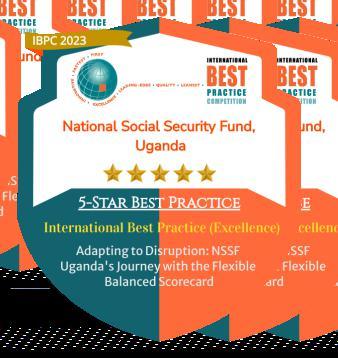
This was in relation to the Fund's journey with the Flexible Balanced Scorecard. The Fund detailed its transformative journey of implementing a dynamic and flexible balanced scorecard system highlighting how staff are empowered to embrace new initiatives at any point during the year.
The Fund's CSI approach primarily follows a three-fold structure, forming the foundation of its CSI strategy as follows:
• Building partnerships
Considerable CSI activities require collaboration and partnership with local institutions and communities. Credible partnerships are now viewed as a prerequisite, each partner has a specific role in the implementation of a given CSI activity.
The Fund will build partnerships with credible organisations/ institutions and the communities for its CSI interventions.
• Good corporate citizenship
This is premised on the view that organisations have a role to play in the sustainable development and wellbeing of the community in which they do business, by taking responsibility for their actions.
• Corporate philanthropy
A more common approach of CSI, the Fund will from time to time give back to the community in the form of ad-hoc donations that meet officially agreed criteria.
ESG SUSTAINABILITY REPORT 4. SUSTAINABILITY LEVERS NSSF - ESG SUSTAINABILITY REPORT - PAGE 45
Social Security Needs
Social protection systems serve as essential tools in reducing poverty and providing a safety net for vulnerable individuals and communities. By offering support and resources, they promote well-being and contribute to a more equitable society.

The Fund's CSI interventions revolve around four social security areas, namely:
• Youth: The youth constitute a substantial portion of the Fund's current membership and represent most potential future members. This demographic also includes a significant segment of the student population, who are potential future members of the Fund.
• Education: The importance of accessing quality education, particularly for disadvantaged groups in our communities, is paramount. Ensuring the provision of quality education requires a comprehensive approach, allowing us to identify specific areas for targeted focus and improvement.

• Health: The demand for health services has become increasingly urgent as a sizeable number of our members and the communities in which we operate face financial constraints that limit their access to healthcare. Moreover, the existing health facilities and services are insufficient to cater to the growing population's needs.
• Disadvantaged groups: Orphanages, terminally ill, Special needs children
Corporate Social Investment Initiatives

Blood Donation Drive to Collect Rare Blood Types
This initiative is part of the Fund's corporate social investment agenda focusing on health.


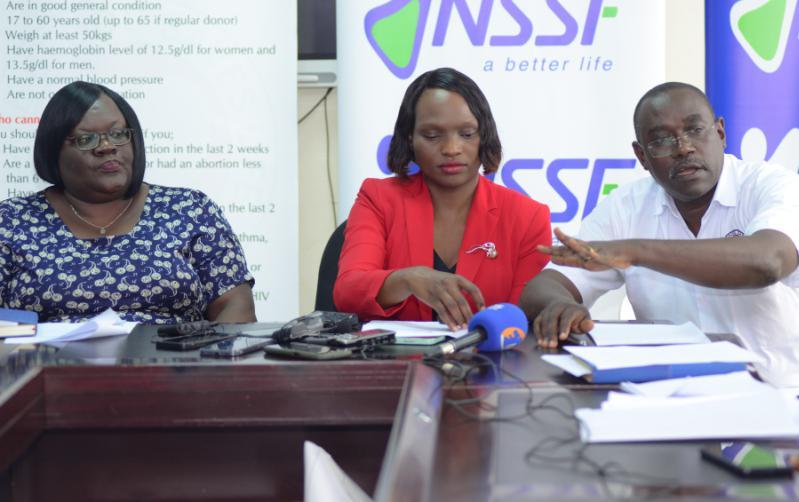
The Fund, in partnership with Uganda Blood Transfusion Services (UBTS) under the Ministry of Health and Uganda Red Cross Society, carried out a blood donation drive to collect over 3,000 units of rare blood types currently in high demand in hospitals. The drive initially took place in Greater Kampala, Hoima, Jinja, and Masaka, and has now expanded to other parts of the country. UBTS revealed that there is a scarcity of the rare blood type - the negative rhesus, in hospitals and as part of our health intervention agenda we intervened to specifically scale up donors with that blood type.
UBTS Principal Assistant Secretary, Adong Juliet said that UBTS collected less negative blood types on average, compared to the positive blood type despite the high demand of the latter.
Patients with Rh-positive blood groups can receive blood from either RH- negative or Rh-positive blood groups while patients with Rhnegative can only receive from Rh-negative blood donors. Specifically for the O negative blood group, which is the universal donor, UBTS usually receives only 1% of that blood type from their collections on average. The Fund believes that an increase in Rh-negative blood donors will help us avert death that would arise due to lack of these rare blood types.
Achievements to date
OVER
62,288
UNITS OF BLOOD COLLECTED FOR THE UBTS
OVER
187,164
LIVES SAVED THROUGH TRANSFUSION OF SAFE BLOOD
In addition, NSSF donated a preservative centrifuge to UBTS in 2021 that supported Mbarara Regional Blood Bank Laboratory Services and several refrigerators for safe blood storage. A centrifuge is used for processing of blood into various blood components including platelet concentrates mainly for cancer patients, red packed cells for anaemia, fresh frozen plasma for maternal cases. The budget for the NSSF Annual Blood Donation Drive was UGX 20 million.
NSSF Head of Marketing and Corporate Affairs, Arimi Barbra Teddy (M) flagged by officials from Uganda Blood Transfusion Services at the launch of the blood drive.
INTRODUCTION | COMPANY PROFILE | SUSTAINABILITY STRATEGY AND GOALS | | GOVERNANCE AND ETHICS | FUTURE OUTLOOK AND GOALS SUSTAINABILITY LEVERS
NSSF - ESG SUSTAINABILITY REPORT - PAGE 46
LEVERS
In 2015, the Fund established a partnership with the Kampala Capital City Authority (KCCA) with the objective of raising funds for public schools under KCCA stewardship as part of our corporate social responsibility. This objective was to be realised by organising a Charity Run, branded the "NSSF Kampala Hash 7 Hills Run", in conjunction with Kampala Hash House Harriers. In 2019, the initiative was expanded to cover public primary schools in other parts of the country as identified through a network of NSSF branches countrywide. We have successfully held five editions to date. This year, the initiative included the objective of promoting e-literacy in public schools through the provision of tablet and desktop computers, loaded with the school curriculums.


Various corporate institutions and individual runners joined us at the NSSF Kampala Hills Run to collect funds to renovate dilapidated public schools.

Refurbishing primary schools

Through partnerships with various corporate institutions and individuals, the Fund collects contributions that are pooled which will go towards refurbishing select public schools across the country, with the ultimate objective of reducing school dropouts because of improved learning conditions.
Proceeds from the run will be used for the improvement of sanitation and provision of digital labs. We have identified, verified, and selected at least one school in each of the four regions of the country to benefit from the proceeds of this year's run. The Fund has raised over UGX 800M in cash and over 1 billion in kind to date, which has been used to refurbish 13 primary schools in Kampala and upcountry. The budget for the run was UGX 548,150,000.
 Education Intervention through the NSSF Kampala Hills Run Raising funds for schools and improving learning conditions.
Runners conquering the Hills at the NSSF Kampala Hills Run
Education Intervention through the NSSF Kampala Hills Run Raising funds for schools and improving learning conditions.
Runners conquering the Hills at the NSSF Kampala Hills Run
ESG SUSTAINABILITY REPORT 4.
NSSF - ESG SUSTAINABILITY REPORT - PAGE 47
One of the winners of the 21Km route at the NSSF Kampala Hills Run.
SUSTAINABILITY
Funds raised in FY 2022/2023
The Fund, together with various partners, raised over shs940m through this financial year's NSSF Kampala Hills Run held at Kololo independence grounds. Over UGX 400M of the monies collected was in cash contributions while UGX 540M was in kind. The Fund mobilised Ugandans through various platforms to raise funds to transform public schools through this initiative. We achieved over 90% of the UGX 1Bn target we set for this year's run.
Achievements to date
Funds raised in the past were used under the Fund's partner KCCA, in Soroti, Kisoro, and Otuke districts.
These interventions have led to a 12% increase in student enrolment at the beneficiary schools, and a 10% reduction in dropouts in the beneficiary schools.

Outlook for FY 2024
60
CLASSROOM BLOCKS REFURBISHED
15,000 PUPILS BENEFITTING EVERY SCHOOL DAY
IMPROVED SANITATION IN 13 PRIMARY SCHOOLS
The Fund plans to renovate over 20 schools, hence helping over 30,000 children to access education in a decent environment
Career Expo
Empowering students to increase their employment and entrepreneurship opportunities.
This year's NSSF annual Career Expo benefited over 5,000 students in seven universities countrywide, with a focus on empowering them with skills to succeed in the emerging gig economy.
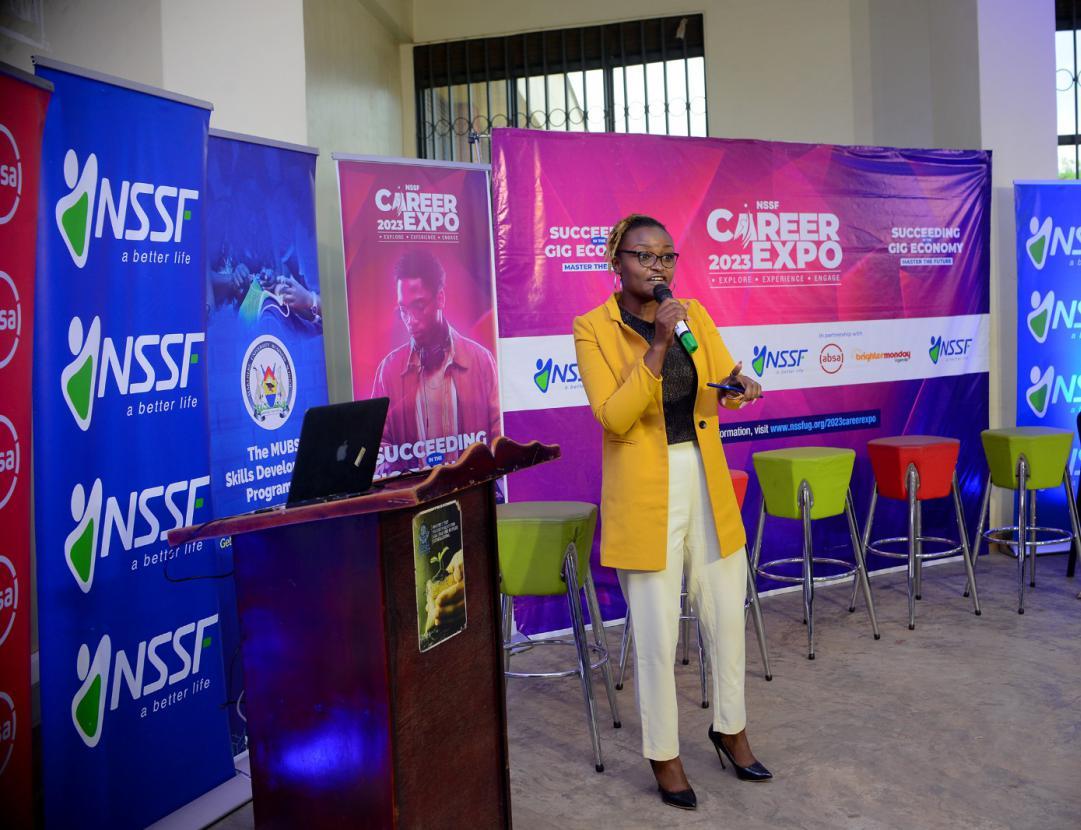
The two-week expo was held from 17-28 April in Makerere University Business School, Makerere University, Isbat University, Kyambogo University, Uganda Martyrs University Nkozi, Bishop Stuart University and Kampala International University.
Succeeding in the gig economy

Reflecting on the expo theme, "succeeding in the gig economy- the future of jobs", the youth were challenged to explore alternative work opportunities to make a living as they search for their dream job in formal employment.
The Fund is cognisant of the fact that gig work is becoming increasingly important as a potential pathway to employment creation, given that the youth unemployment rate in Uganda is high. Our aim was therefore, to help university students learn, explore, and earn from this alternative work opportunity in this year's Career Expo.
Students learned how to balance gig work alongside full-time employment, transform gig work into successful ventures, and enhance financial literacy.
An official from Brighter Monday, one of our partners addressing students at the launch of the NSSF Career Expo.
“Brighter Monday said that participating students would get free access to their CV writing and improvement services for one month.”
INTRODUCTION | COMPANY PROFILE | SUSTAINABILITY STRATEGY AND GOALS | | GOVERNANCE AND ETHICS | FUTURE OUTLOOK AND GOALS SUSTAINABILITY LEVERS NSSF - ESG SUSTAINABILITY REPORT - PAGE 48
- Xenia Wachira, Country Manager
The importance of social security
The Fund used this platform to enhance students' knowledge on their right to social security and its importance. Now that the NSSF Amendment 2022 Act provides for mandatory contributions for all employees, it is critical, more than ever to enlighten the students and recruit them to NSSF early on to kickstart their journey to social security.
Moses Kiboneka popularly known as "Uncle
is one of Uganda's biggest social media influencers. He gave students tips on how to work in the Gig Economy.
Increasing employment opportunities
Initiated 12 years ago, the NSSF Career Expo was introduced to enable university students prepare for life after university by equipping them with skills and knowledge to increase their employment and entrepreneurship opportunities.

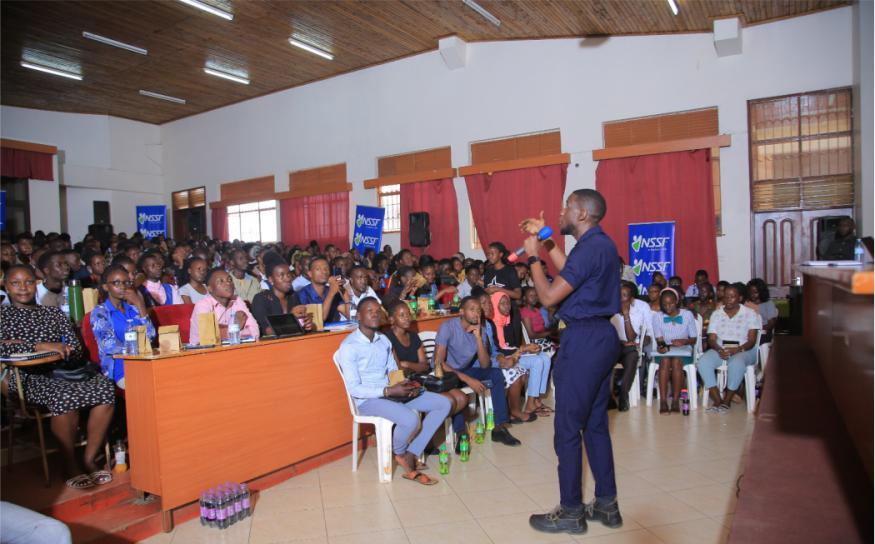
The 2021 Uganda National Labour Force Survey, conducted by the Uganda Bureau of Statistics, revealed that approximately 9.3 million individuals between the ages of 18 and 30, accounting for at least 41% of the youth population, are not participating in any productive activities.
Helen Nangonzi Basuuta, Absa Bank's Marketing and Customer Experience Director stated that they partnered with the Fund for this initiative to further support university students as they transitioned from the world of education to employment.
Achievements in FY 2023
This year, we engaged seven Universities, however, the sessions were open to all other university students, and we experienced a good response, with each session hosting a minimum of 550 students.
Achievements to date
155,000 STUDENTS WERE REACHED AT VARIOUS UNIVERSITIES
Outlook for FY 2024
150 MILLION Shs SPENT
We intend to have onboarded over 10 partners for the programme, and expand the programme to more than 15 universities and tertiary institutions.
Makerere University students listening keenly at one of the speakers of the NSSF Career Expo.
Mo"
ESG SUSTAINABILITY REPORT 4. SUSTAINABILITY
NSSF - ESG SUSTAINABILITY REPORT - PAGE 49
LEVERS
KAVC entered a partnership with NSSF in 2008 to promote the development of the game of volleyball, which was lagging behind other sports at that stage. This partnership has been realised through the NSSF KAVC International Volleyball Championship. The partnership was also intended to provide Ugandan clubs and players international exposure to the high-level of competition. Ultimately, it was hoped that international exposure would help the best Ugandan players join the professional ranks, while Ugandan clubs would be competitive at regional and continental level.
Significant milestones
The tournament has grown to become East Africa's premier volleyball club tournament, attracting the top clubs from Uganda, Kenya, Rwanda, Burundi, Tanzania, the Democratic Republic of Congo, and South Sudan.



It has provided a platform to expose Ugandan teams to top level competition in the region. To be the best, one must compete against the best. Ugandan teams that compete on the continentin Rwanda, Kenya and the Africa Club Championships have shown consistent improvement annually.
Through this partnership, we have witnessed significant growth in the sport, including the incorporation of primary school competitions and sitting volleyball tournaments for disabled individuals, becoming regular fixtures in the annual event.
The tournament has inspired national interest in the sport as evidenced by record crowds attending the games every year with wide coverage in the media. It is now a fixture on the international calendar.
The sports fraternity is much more aware of the importance of social security and the significance of fostering a culture of saving in Uganda both at individual and national level.
Achievements in FY 2023
Over 10 teams from Uganda, Tanzania, Burundi, and Rwanda participated which is a testament to the growth the tournament has experienced over the last 24 years.
UGX 70M NSSF SPONSORSHIP
24TH EDITION 12YEARS NSSF SPONSORSHIP
Fostering youth empowerment

We believe that sport is a particularly important platform through which we can empower the youth to channel their energy productively towards activities that can help them better prepare for their future. This year was especially exciting as we got to rejuvenate the spirits of the many participants and lovers of the
sport who had spent almost two years with little to no sports tournaments due to the Covid pandemic.
Our continued support is a demonstration of the commitment of the Fund to the development of sports in Uganda.
South Sudanese Club Cobra walked away as winners of the bronze category.
It was a cutthroat competition at the grand Finale of the NSSF KAVC Tournament.
INTRODUCTION | COMPANY PROFILE | SUSTAINABILITY STRATEGY AND GOALS | | GOVERNANCE AND ETHICS | FUTURE OUTLOOK AND GOALS SUSTAINABILITY LEVERS NSSF - ESG SUSTAINABILITY REPORT - PAGE 50
KAVC (Kampala Amateur Volleyball Club) International Tournament Empowering youth through sports for productive energy and promoting savings awareness.
4. SUSTAINABILITY LEVERS

Financial Literacy Programme
Empowering members for better financial decisions and unlocking their saving and entrepreneurial potential.
Our shared prosperity entails supporting our members beyond retirement. Today, customers want relationship advice and not just a transaction. The Financial Literacy initiative aims at empowering our members to make better financial decisions both during their employment and upon receipt of their NSSF benefits. To achieve this, we aspire to unlock the saving and entrepreneurial potential of savers and the public through Financial Literacy.
Achievements in FY 2023
135
FRONT-FACING STAFF TRAINED ACROSS THE NETWORK COUNTRYWIDE
Our Branch Financial Literacy Town Halls registered 2,105 participants conducted in 13 branches countrywide. Via our Financial Intelligence sessions, we registered six cohorts and graduated 242 participants compared to 679 the previous financial year, having completed the Financial Literacy Programme study. We conducted 10 Webinars and registered 6,000 live participants, with a total engagement reach of 2,376471 people via our social media spaces, respectively.
5,236 SHS 500M
REGISTERED PARTICIPANTS AT MONEY TALK SESSIONS
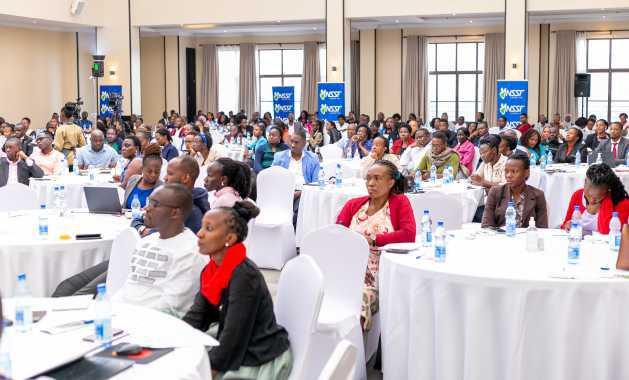

TOTAL SPEND ON FINANCIAL LITERACY PROGRAMME
The decrease in reach can be attributed to limited physical activity as we focused on enhancing the capacity and skills of our employees for effectively conducting mobilisation and training of members and the public within our branch network. We also continued to leverage on AI chatbots to enhance and deliver the programme. Through the utilisation of cutting-edge technology, including Open AI GPT-3, we are highlighting how chatbot are addressing unique financial education inquiries of the Uganda population.
Outlook for FY 2024
Increase the uptake of Financial Literacy Programmes to 70% and provide members with sound financial advice to protect their savings and reverse the cycle of members utilising their retirement benefits within 2 years after retirement.
Our main goal is to provide our members with the knowledge necessary for achieving financial wellness, empowering them to make informed decisions regarding their savings.
 We arrange the best financial experts from the industry to conduct our financial literacy webinars to educate our members on various financial topics.
We arrange the best financial experts from the industry to conduct our financial literacy webinars to educate our members on various financial topics.
ESG SUSTAINABILITY REPORT
Achievements to date FY2019/2020 7,481 25,000 FY 2020/2021 67,272 1,489,000 FY 2021/2022 445,309 1,508,000 FY 2022/2023 13,583 2,376,471 Financial Year Uptake Online Reach Financial Literacy Programme performance snapshot.
MONEY TALK SESSIONS CONDUCTED AT EMPLOYER PREMISES 135 NSSF - ESG SUSTAINABILITY REPORT - PAGE 51
LEVERAGING AI CHATBOTS

NSSF was awarded a 4-star rating for its best practice of leveraging AI chatbots to enhance financial literacy at the 9th International Best Practice Competition 2023.

This was in relation to the Fund's utilisation of AI-driven chatbots by implementing cutting-edge technology trained to address the unique financial education needs of the Ugandan population.
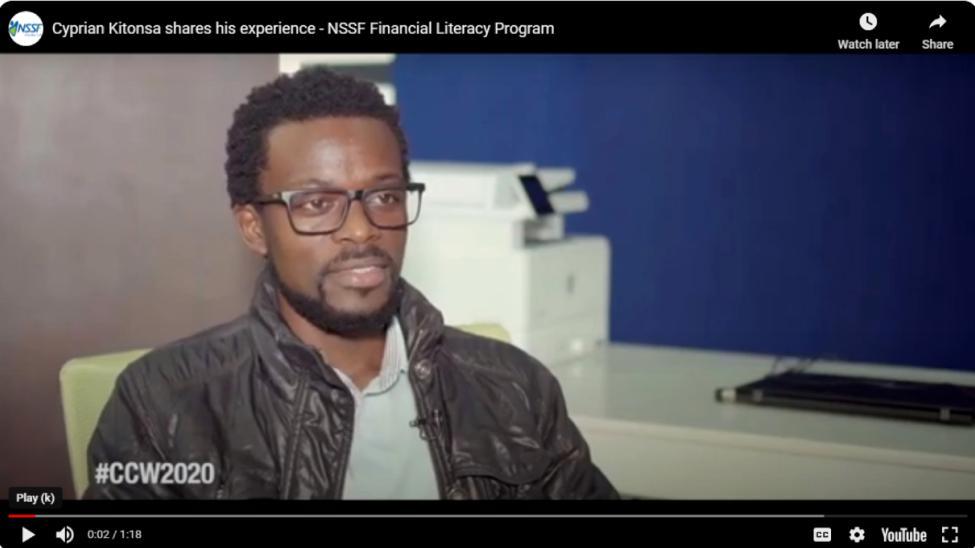

Coordinate execution and organisation for the Fund's CSI activities and draft respective activity reports
Identification and evaluation of viable projects that fit within the Fund's CSI policy
Identify and engage potential partners to support the Fund's CSI projects
Critical Success Factors for Social Responsibility
• Become the employer of choice that attracts, builds, and retains the right people to support our vision and execute our strategy.
• Continue to develop our employees and provide them with the required skills and competencies required for the future world of work.
• Commitment of our resources to drive social responsibility initiatives.
Two of our members share their Financial Literacy journey
CSI execution Frequency of activity Time spent in minutes
Three major CSI activities per year Twice a year Average of 50 partners per year 1100 300 Average of 60 minutes per engagement
INTRODUCTION | COMPANY PROFILE | SUSTAINABILITY STRATEGY AND GOALS | | GOVERNANCE AND ETHICS | FUTURE OUTLOOK AND GOALS SUSTAINABILITY LEVERS NSSF - ESG SUSTAINABILITY REPORT - PAGE 52
TIME SPENT ON CSI ACTIVITIES
Isaac Kyoyagala Kikuseeza's journey - NSSF Financial Literacy Programme
Cyprian Kitonsa shares his experience - NSSF Financial Literacy Programme
LEVERS
4.3 Economic Impact - Sustainability Lever: Financial Resilience
FINANCIAL RESILIENCE
The focus is on the long-term sustainability of the Fund. The Fund has adopted a robust investment strategy to ensure long-term performance and good returns for retirement benefits.

Responsible investment is an integral part of the Fund's investment thesis. We aim to identify long-term investment opportunities to reduce the Fund's exposure to unacceptable risks. Climate change is a major risk and mitigating it is the responsibility of all.
In most of our equity investment decision-making, to the extent possible, we assess how companies impact the environment, society and opportunities. We look at companies that enable more environmentally friendly economic activity favourably. Through our active engagement model, we can directly engage with our portfolio companies on a wide range of material ESG-related considerations to enhance their long-term value to the Fund. We align these efforts to the value drivers of our portfolio companies, tailoring our approach to connect the issues that are most material to the companies' long-term value creation and preservation. There are also companies we may choose not to invest in for sustainability or ethical reasons, for example, tobacco companies. On the other hand, we see merit in investing in companies with solutions that enable more environmentally friendly economic activity and sustainability. These investments can have positive effects on other companies in the portfolio. These positive externalities can include reduced pollution, lower energy costs and more efficient use of resources.
• Navigating Challenges with Sustainable Resilience
• Value-added Statement
• Key Developments in FY 2023
• Achievements Against Performance Measures
• Critical Success Factors
ESG SUSTAINABILITY REPORT 4. SUSTAINABILITY
NSSF - ESG SUSTAINABILITY REPORT - PAGE 53
Financial Resilience
Prudent investment to grow members' savings and stimulate economic growth in Uganda. Our financial resilience enables our ability to generate value not only for the Fund but also for our members, communities, stakeholders, and future members. We are dedicated to fostering this resilience through prudent investment decisions that drive growth in our members' savings. By providing competitive returns and stimulating economic growth in Uganda, we ensure our strong financial performance aligns with our strategic priorities and sustainability objectives.
Navigating Challenges with Sustainable Resilience
Empowering Uganda's economy


The Fund's impact on Uganda's economic landscape remains significant and far-reaching. Through our investments, we create vast opportunities for Ugandans, both directly and indirectly. As the largest investor in Uganda's bond and equity markets, and with a substantial presence in real estate, we wield influence that spans various sectors. Our contribution is evident in the critical role we play in the commercial banking sector, where we account for 14% of all deposits, supporting credit financing. Furthermore, our investment in stocks and bonds issued by the Central Bank contributes to 40% of government debt. The returns generated from these investments not only bolster Uganda's fiscal revenue through taxes and interest payments to members but also support salaries, suppliers, and services provided by the Fund.
Pursuing sustainable financial growth
Our sustainable finance goal is to reach UGX 20 trillion in total assets by 2025, aligning with evolving environmental and social finance criteria. These criteria are guided by emerging external social security standards. The interconnected nature of sustainable finance positions us to offer products that deliver both environmental and social benefits to our members.
Empowering members through resilient offerings


Our offerings, driven by resilience, equip our members with the tools to save, reduce debt, and manage their finances effectively, ensuring their preparedness for long-term challenges.

Amidst global economic challenges in recent times, the Fund has stood firm, navigating heightened regulatory scrutiny with unwavering resolve.
The NSSF Amendment Act 2022 has brought about transformative changes to our business model, expanding social security for all Ugandans. Our resilience is deeply rooted in our investments, emphasising operational, reputational, and social impact returns.
Unlike a reactive response, our resilience is an ongoing, planned, and sustainable process.
Sustaining focus amid uncertainty
In addressing crucial social issues, our goals encompass financial literacy education, innovation, business growth, affordable housing, and economic inclusion. Our diverse array of regional and local investments across various industries positions us to deliver positive returns. Even amid uncertain times, with global forecasts of adversity due to the after-effects of Covid-19 pandemic and geopolitical tensions, we remain steadfast in our focus on the Fund's long-term sustainability.
INTRODUCTION | COMPANY PROFILE | SUSTAINABILITY STRATEGY AND GOALS | | GOVERNANCE AND ETHICS | FUTURE OUTLOOK AND GOALS SUSTAINABILITY LEVERS NSSF - ESG SUSTAINABILITY REPORT - PAGE 54
Our Value-added Statement
Our value-added statement reflects, at an elevated level, the wealth created by the Fund and how it was distributed among our key stakeholders: Members, Government, and NSSF employees. The Fund retains a portion of the funds to re-invest for future growth and operations.
Key Developments in FY 2023

The Fund's financial performance was negatively impacted by varying external factors outside its control.
The financial year presented challenges in terms of the sudden weakening of the Ugandan shilling and the increase in the rate of inflation which resulted in the Central Bank increasing interest rates.
The enactment of the NSSF Amendment Act 2022, enabling midterm access for qualifying members, influenced a change to the Fund's traditional long-term investment strategy in 10-year government bonds, which would have enabled the Fund to take advantage of the rise in interest rates into shorter term investments with lower returns. This ensured the Fund had sufficient liquidity to respond to requests for midterm access.
The financial year began with a sense of normalcy, as businesses prioritised recovery from the impact of Covid-19. However, regional, and international geopolitical dynamics introduced new challenges, slowing down the economic recovery phase. The Russia-Ukraine conflict, initially perceived as short-lived by many, has grown into a global crisis, disrupting economies. Its far-reaching consequences are anticipated to leave a lasting impact on the economic, social, and political landscape, heightening business uncertainty. The war in Ukraine also impacted inflation, which led to Central Banks responding by increasing their base rates, resulting in institutional investors who dominate the stock exchange in East Africa moving away from the region and taking advantage of higher yields in other countries.
Post-election unrest in Kenya has lasted longer than anticipated, escalating internal political tensions, and exacerbating economic challenges. Furthermore, terrorist activities expanded into Uganda and Kenya, causing fatalities and trade downturns.
All these factors resulted in the Fund losing value from investment in stocks, depreciation of the Ugandan currency, and the inability to take advantage of higher yields from long-term investments.
ESG SUSTAINABILITY REPORT 4. SUSTAINABILITY
NSSF - ESG SUSTAINABILITY REPORT - PAGE 55 Year Ended 30 June 2023 2022 2021 2020 2019 UGX Billions Investment Income 1,911 1,695 1,472 1,254 Other Income (Loss) (12) (302) (54) (213) Net Increase in Value of Investments (139) 443 97 (129) Less Expenses (Excluding staff costs and depreciation) (77) (67) (78) (68) Wealth Created 1,683 1,769 1,437 844 Distribution of wealth created to stakeholders (Amounts) Members (Interest credited to accounts) 1,368 1,516 1,127 978 Employee Salaries, Wages and Other Benefits 117 88 76 71 Government Direct Tax 180 167 153 172 Retained Earnings for Future Growth 13 3 5 (404) Distribution of wealth created to stakeholders (Percentage) Members (Interest credited to accounts) 82% 85% 83% 120% Employee Salaries, Wages and Other Benefits including 7% 5% 6% 9% Government Direct Tax 11% 9% 11% 21% Retained Earnings for Future growth 1% 0% 0% 49% UGX Billions UGX Billions UGX 'billions 2,202 (1,044) (4) (74) 1,080 1,584 92 193 (809) 149% 9% 18% -76%
LEVERS
Achievements Against Performance Measures
Impact over five years
Critical Success Factors for Financial Resilience
• Prudent investment strategy

• Containment of operating costs
• Leverage technology and digital innovation to provide cost-effective services
For a detailed insight into our financial performance, in our Audited Financial Statements. read more
FY2023 18.99Tn 18.56Tn 1.16% 1.03% 11.52% FY2022 17.19Tn 17.26Tn 1.15% 1.18% 11.20% 11.90% FY2021 15.01Tn 15.56Tn 1.23% 1.06% 13.09% 11.90% FY2020 13.71Tn 13.28Tn 1.25% 1.19% 13.81% 12.10% FY2019 11.08Tn 11.34Tn 1.31% 1.28% 14.20% 11.90%
* Expense ratio relates to cost efficiency
Expense Ratio* Return on Investment** Growth of the Fund’s Asset Base Target Outcome Target Target Outcome Outcome
** Return on Investment relates to realised income
INTRODUCTION | COMPANY PROFILE | SUSTAINABILITY STRATEGY AND GOALS | | GOVERNANCE AND ETHICS | FUTURE OUTLOOK AND GOALS SUSTAINABILITY LEVERS NSSF - ESG SUSTAINABILITY REPORT - PAGE 56 8.11% Year
SUSTAINABILITY LEVERS
SMME Development and Entrepreneurship - Sustainability Lever: Inclusivity

INCLUSIVITY
Our inclusivity agenda aims to unlock the potential of Ugandan entrepreneurs through collaboration. Through our entrepreneur programme, we aim to expand new work opportunities, particularly focusing on women and youth. By proactively supporting SMME development and entrepreneurship, we will be able to ensure a measurable and meaningful socio-economic impact, aiding progress towards sustainable and inclusive economic growth.
In addition, inclusivity also pertains to gender equality and the promotion of equal opportunities within the Fund.
• Hi-Innovator Programme
• External Innovation: Women Accelerator
- Achievements against Performance Measures
• Internal Innovation: Black Swan and Trailblazers
- Achievements to Date
• Critical Success Factors
ESG SUSTAINABILITY REPORT 4.
NSSF - ESG SUSTAINABILITY REPORT - PAGE 57
Creating employment opportunities and stimulating economic growth


Fostering the development of an innovative ecosystem
Hi-Innovator Programme

The Fund has always resonated strongly with the need to give back to the community it serves. To fulfil the cycle of becoming the social security provider of choice, the Fund must empower the lives of its customers. To foster the development of an innovative ecosystem, the Fund harnessed both internal and external talent, aiming to achieve fresh value for itself and its stakeholders.
A visionary initiative called the Hi-Innovator Programme was initiated to discover fresh possibilities that could bring significant value to the Fund, its valued members, and the public. This programme represented a collaborative journey that united the Fund's dedicated staff with dynamic implementing partners. It comprises two distinct yet interconnected facets:
External Innovation, wherein the Fund actively extends beyond its confines to establish meaningful partnerships with external entities, infusing fresh energy and novel ideas into the entrepreneurial ecosystem; and
Internal Innovation, which centres on the Fund's own staff, fostering their visionary concepts that align with the overarching strategy and are poised to shape the Fund's future.
Thus, the Hi-Innovator Programme emerged as a symbol of collaborative innovation. Driven by a common desire to unleash untapped potential, the Fund, its staff, and partners embarked on a voyage where creativity had no limitations. The momentum behind the two dimensions of innovation is outlined below.
Re-thinking and Remodelling Entrepreneurship in Uganda
NSSF was awarded a 5-star rating for its best practice of re-thinking and remodelling entrepreneurship in Uganda as a sustainability strategy at the 9th International Best Practice Competition 2023.
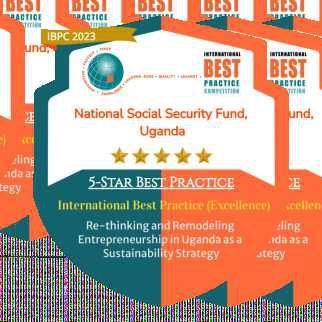
The Fund's Hi-Innovator Programme focuses on challenging the conventional mindset of entrepreneurs in Uganda. Its emphasis is on instilling a growth-oriented perspective among local entrepreneurs to create jobs.
External Innovation: Women Accelerator

The Hi-Innovator initiative is bolstering small and emerging enterprises by offering catalytic seed funding, enhancing the capabilities of entrepreneurship support organisations to deliver high quality technical guidance, and collaborating with financial institutions to unlock accessible patient capital, thereby enhancing their competitiveness. We work with Entrepreneurship Support Organisations and Investors to ensure that entrepreneurs establish high impact, sustainable businesses that can be scaled.
In partnership with The Mastercard Foundation, the Hi-Innovator initiative reached another important milestone. A total of 67 out of a pool of 101 women-led businesses qualified for seed-funding worth USD 20,000 each, following two days of pitching held in March 2023.
INTRODUCTION | COMPANY PROFILE | SUSTAINABILITY STRATEGY AND GOALS | | GOVERNANCE AND ETHICS | FUTURE OUTLOOK AND GOALS SUSTAINABILITY LEVERS
IGNITE CREATIVITY BUILDING OUR NETWORKS OUR CORPORATE VISION SOCIAL & ECONOMIC IMPACT
NSSF - ESG SUSTAINABILITY REPORT - PAGE 58
Impact to date
CREATED / SUSTAINED
1,700 37,000 JOBS INDIRECT JOBS
SEED- FUNDING
177 SGB’S
35% OF TARGET
You Tube Stories
56% WOMEN BENEFICIARIES
Vision for 2025
132,000 JOBS CREATED & SUSTAINED DIRECT AND INDIRECT
SEED- FUNDING
500 SGB’S
70% WOMEN BENEFICIARIES
Learn more about the Hi-Innovator Women Accelerator and its role in empowering women to achieve success
What it means for the Fund
This results in attracting new members and a new source of contributions for the Fund. The Fund has received UGX 163M to date in new contributions via the Hi-Innovator. Contributions will increase exponentially as the programme scales due to improved financial performance of these businesses.
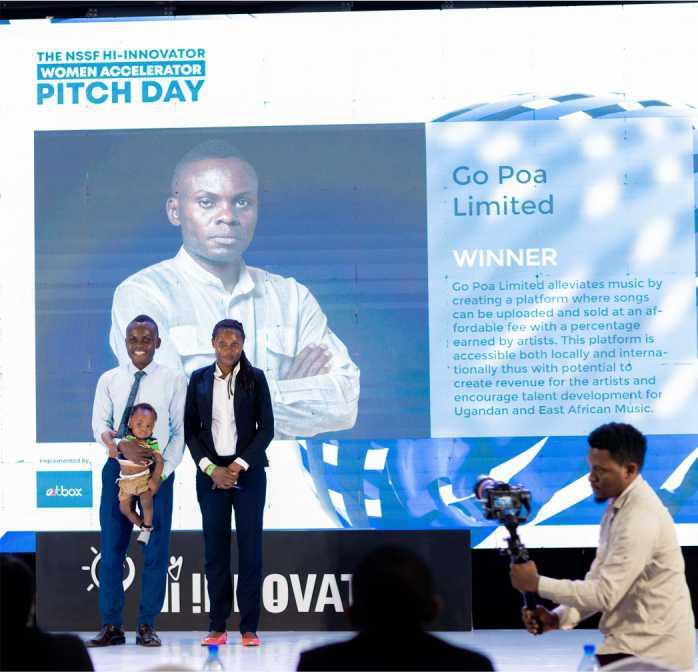
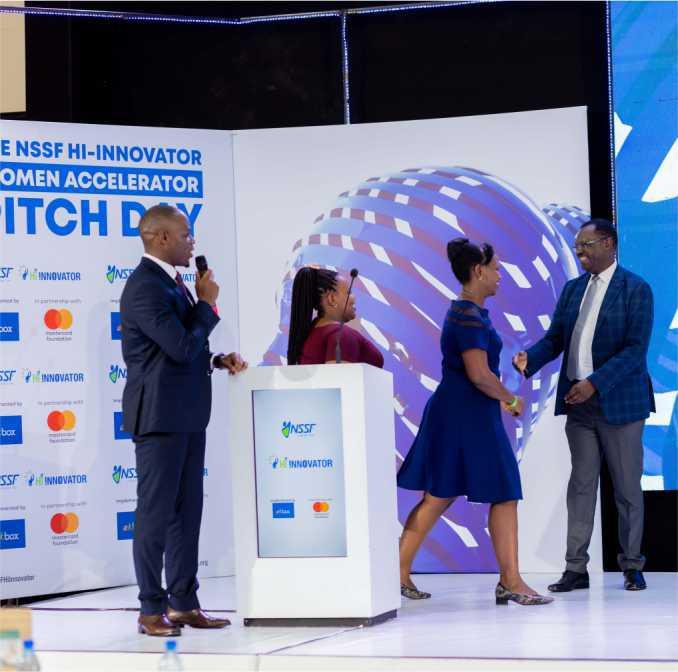 Our Hi-Innovator Programme rewarded several women-owned businesses during the Hi-Innovator pitch day.
Our Hi-Innovator Programme rewarded several women-owned businesses during the Hi-Innovator pitch day.
PLAY VIDEO 1 PLAY VIDEO 2 PLAY VIDEO 3 ESG SUSTAINABILITY REPORT 4. SUSTAINABILITY LEVERS NSSF - ESG SUSTAINABILITY REPORT - PAGE 59
Achievements Against Performance Measures
Outcomes
Trained 2,216 entrepreneurs.
Onboarded a total of 7 hubs.
Did not track jobs as we did not seed fund any entrepreneurs.
Seed funded 27 businesses.
Trained an additional 6,000 entrepreneurs, bringing the total to 8,216.
Onboarded 3 new hubs, bringing the total to 10.
Created and sustained 20,950 jobs.
Seed funded an additional 225 businesses.
Trained an additional 8,504 entrepreneurs.
Onboarded an additional 3 hubs.
Created and sustained an additional 76,228 jobs.
Created 1,800 new contributors to the Fund.
61% women participation in the initiative and seed funded 160 women-led/womenowned businesses.
Seed fund 180 additional businesses.
Train an additional 10,000 entrepreneurs.
Onboard an additional 5 hubs.
Create and sustain an additional 70,000 jobs.
Convert 30% of the jobs created and sustained as new NSSF members. These should have a compliance rate of at least 60%.
Extend Seeding funding and technical support to 500 Small and Growing Businesses, and support 100 to scale.
Train 75,000 entrepreneurs with basic entrepreneurship knowledge.
Onboard and capacity build 20 hubs to continue support of entrepreneurs in the ecosystem.
Create and sustain 132,000 jobs with a deliberate effort to extend opportunities to 70% of women in this portfolio.
Utilisation of allocated funds FY2022/2023
Our Year 3 Performance (Jul - Jun 2023) SUPPORT CATEGORY
Number of female youth in work (70%).
Number of youth trained in entrepreneurial skills (Academy).
BUSINESS ENTERPRISE SUPPORT ORGANISATION (ESO’s)
Number of business seed funded (Accelerator & Scale-up).
of businesses scaled (20%).
of ESO’s capacity strengthened.
YEAR 3 % ACHIEVED 99% 42% 70% 123% 0% 86% OUR IMPACT METRIC 5-YEAR TARGET YOUTH Number of youth in work (Direct & indirect) from the seed-funded business. 132,000
YEAR 3 TARGET YEAR 3 ACTUAL
92,400 75,000 500 100 20 89,208 62,446 12,000 180 7 15 88,674 26,425 8,402 222 0 13 INTRODUCTION | COMPANY PROFILE | SUSTAINABILITY STRATEGY AND GOALS | | GOVERNANCE AND ETHICS | FUTURE OUTLOOK AND GOALS SUSTAINABILITY LEVERS
Number
Number
ANNUAL BUDGET FOR HI-INNOVATOR PROGRAMME Total In USD Total In USD Description Budget Actual Seed Funding of 222 businesses $20,000 each 4,440,000 Programme Support 2,300,000 2,100,000 Overall Expenditure (Seed funds + Programme support) 6,800,000 6,540,000
4,500,000 NSSF - ESG SUSTAINABILITY REPORT - PAGE 60
96%
FY 2020/2021 FY 2021/2022 FY 2022/2023 FY 2023/2024 Targets FY 2024/2025
LEVERS
Internal Innovation (Black Swan and Trailblazers)

In often forgotten parts of the country or city, there are communities or groups of skilled workers (artisans) who have mastered their craft, mostly outside a classroom and through on-the-job training. Artisans include but are not limited to builders, carpenters, electricians, mechanics, painters, plumbers, and wielders. Despite their unrecognised talents, many artisans struggle to make ends meet and often grapple with financial uncertainty and little knowledge of managing their hard-earned money.


Witnessing the artisans' passion and potential, the Fund set out to introduce financial advisory services to this close-knit community. Through one of its innovation initiatives called Black Swan, the Fund partnered with a digital platform (Uncle Bob) that serves as an online marketplace for artisans offering professional services to customers' home needs.
A tailored mindset shift approach
The Fund knew that a unique and empathetic approach would be required for this venture. Instead of conventional financial lectures, the Fund envisioned a tailored mindset shift approach (through another of its innovation initiatives called Trailblazers), one that would gently guide the artisans towards recognising the true value of saving and unlocking assorted options for securing a better life. With unwavering determination to combine the two innovation initiatives (Black Swan and Trailblazers), the Fund began organising interactive sessions titled "financial mindset shift workshops" where artisans were invited to share their hopes and dreams and envision the future they desired. The workshops combined storytelling and practical financial advice.
Our purpose is “to make lives better by making saving a way of life, enabling more and more people to improve their wellbeing”.
ESG SUSTAINABILITY REPORT
4. SUSTAINABILITY
NSSF - ESG SUSTAINABILITY REPORT - PAGE 61
Financial Mindset Shift Workshops' Launch. Trailblazers Launch.
The pathway to unleashing the potential of artisans was not through intricate financial terms or complicated strategies, but through a customised approach that shifts their mindset. By changing how artisans viewed money, they could be inspired to build a better and more secure future, not only for themselves, but also their families.
Together with Uncle Bob (another innovation initiative), the Fund sought to:
• Empower 200 artisans to discover the foundations to achieve financial prosperity
• Create a smooth experience for artisans registering on the Uncle Bob platform where they can connect with other like-minded people
• Facilitate seamless automated payments directly through the Uncle Bob platform and ensure that artisans receive their earnings effortlessly
• Ensure a frictionless transfer of savings by the artisans on the Uncle Bob platform to their respective accounts under the Fund's voluntary scheme
• Target at least 50% of the artisans to register under the Fund's voluntary scheme and make their contributions accordingly
• Promote the artisan profession using a marketing campaign both internally within the Fund and externally to the General Public, ensuring a ready market to the artisans on the Uncle Bob platform
With the above goals in mind, the Fund tested its new "financial mindset shift" approach. A transformation that went beyond finances commenced. Artisans embraced their newfound financial knowledge and discovered an unwavering belief in their own potential and the resilience to overcome challenges that lay ahead.
The Fund measured its progress regularly and the results are highlighted as follows:
ARTISANS ATTENDED THE WORKSHOP AND WERE TRAINED OF UNCLE BOB APP LAUNCHED (ANDROID & iOS)
ARTISANS PASSED TECHNICAL ASSESSMENT


ARTISANS REGISTERED UNDER THE FUND’S VOLUNTARY SCHEME
SHOWCASES OF UNCLE BOB APP (INTERNALLY TO THE FUND & EXTERNALLY TO THE PUBLIC)
ARTISANS SUCCESSFULLY ONBOARDED TO THE UNCLE BOB APP
CONTRIBUTED BY ARTISANS THROUGH THE VOLUNTARY SCHEME 246 2 VERSIONS
The workshops became a vibrant tapestry of ideas, with artisans exchanging stories and gaining insight from their peers, with the Fund guiding them to embrace the power of financial planning. The artisans acquired the wisdom to invest their hard-earned funds prudently, recognising that safeguarding tomorrow necessitates nurturing today's earnings. Artisans, once hesitant about saving, began setting aside some of their earnings with a newfound sense of purpose. Some dreamed of expanding their workplaces, others of exploring untapped markets, and a few even aspired to educate their children in the finest institutions.
INTRODUCTION | COMPANY PROFILE | SUSTAINABILITY STRATEGY AND GOALS | | GOVERNANCE AND ETHICS | FUTURE OUTLOOK AND GOALS SUSTAINABILITY LEVERS
117 72 2 67
UGX 300,000
NSSF - ESG SUSTAINABILITY REPORT - PAGE 62
Wielders fabricating a metal bar as part of the technical assessment.
4. SUSTAINABILITY LEVERS
The achievements of two Artisans are highlighted below:
Artisan Changes after joining Uncle Bob Future aspiration
Electrician
• Opened a saloon business for his wife.
• Bought five goats.
• Increased electrical jobs.
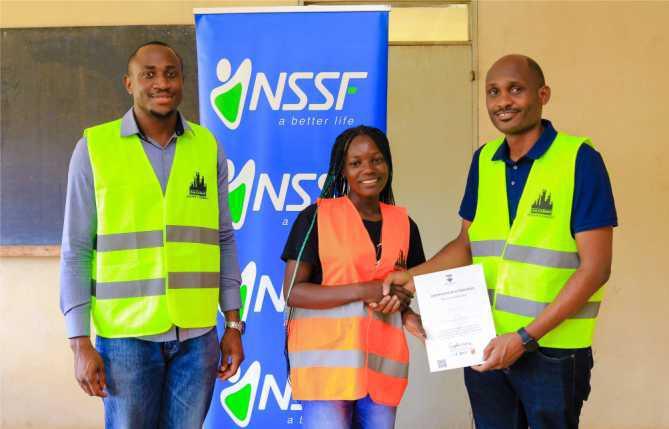
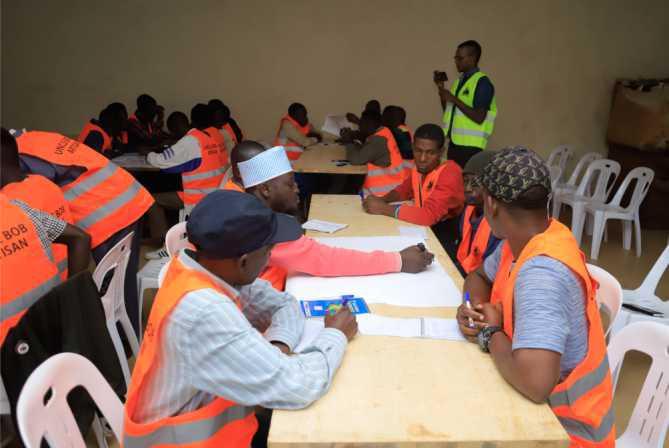
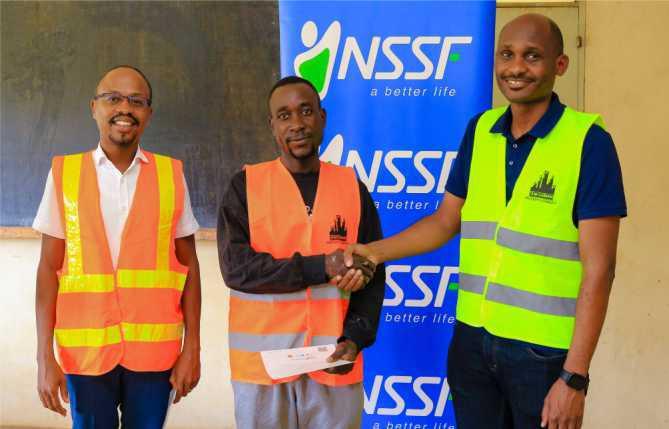
• Managed to secure fees for children on time.
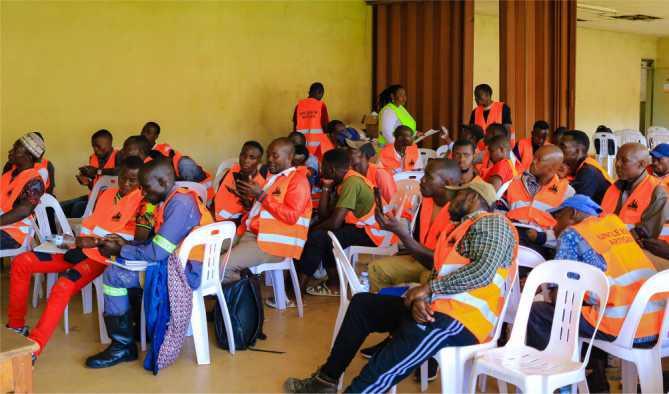
• Fully established business (electric works, solar and CCTV installations).
• Mentorship programme.


• Acquisition of more painting tools
Painter
• Managed to feed household members with ease.
• Buy land to set up a home.
ESG SUSTAINABILITY REPORT
Artisans being onboarded to the Uncle Bob App.
Artisans in the Financial Mindset Shift Workshop.
Artisan receiving a certificate after attending the workshop and passing the technical assessment.
Artisan receiving a certificate after attending the workshop and passing the technical assessment.
Artisans discussing their expenditures during the workshop.
Artisans preparing budgets after understanding their expenditures.
NSSF - ESG SUSTAINABILITY REPORT - PAGE 63
Achievements to Date
The impact of working with the Artisans and Uncle Bob can be summarised as follows:
• Launched the Business-to-Customer (B2C) model of the Uncle Bob platform with android and iOS versions
• Identified 404 artisans in 2022 and 2023 for inclusion in the Fund's financial mindset shift training programme

• Onboarded 67 artisans successfully to the Uncle Bob platform
• Artisans trained and assessed in seven areas (brick laying and masonry, carpentry works, electrical works, plumbing works, metal wielding works, painting, vehicle, and machine mechanics)

• Hosted 64 workshops (24 carpentry, 22 metal wielding and 18 vehicle mechanics) in the central region with artisans ready to work with the Fund and Uncle Bob
• Built partnerships through this initiative with Private Sector Foundation, Vision Group, Datamine Technical Business School, Uganda Private Vocational Training Institutions, Uganda National Association of Building and Civil Engineering Contractors (UNABCEC)
• Identified three sector manufacturers i.e., Uganda Clays Limited (UCL), Plascon Paint Limited and Roofings Limited, for collaboration with Uncle Bob for a new model of operation
Critical Success Factors for Inclusivity
• Increase the percentage of women on our Board and in senior positions
• Identify additional small growing businesses to benefit from the Hi-Innovator Programme
• Equipping entrepreneurs with the required skills and knowledge for long-term business success
Outlook - the year ahead
• Focus on the Business-to-Business (B2B) model of the Uncle Bob platform and launch it
• Execute the B2B model with the three identified sector manufacturers
• Build partnerships with Uganda National Roads Authority (UNRA), National Water and Sewerage Corporation (NWSC), Electricity Regulatory Authority (ERA), Housing Finance Bank (HFB) and Directorate of Industrial Training (DIT)
This journey with the Artisans serves as a timeless reminder that sometimes, a tailored mindset shift can unlock the most extraordinary possibilities. Through the Fund's partnership with Uncle Bob and the Artisans' willingness to embrace change, they not only recognised the true value of saving but also unlocked the key to building a better life - step by step. Their journey towards a brighter future continues, a testament to the power of dreams, innovation, and the unity in their community.
INTRODUCTION | COMPANY PROFILE | SUSTAINABILITY STRATEGY AND GOALS | | GOVERNANCE AND ETHICS | FUTURE OUTLOOK AND GOALS SUSTAINABILITY LEVERS
NSSF - ESG SUSTAINABILITY REPORT - PAGE 64
LEVERS
Environmental Stewardship - Sustainability Lever: Environmental Protection
ENVIRONMENTAL PROTECTION
At NSSF, the social and environmental matters are an important consideration in how we do business, including our corporate governance systems, risk management and controls, human capital management, approach to serving customers, support for local communities and management of our real estate constructions.
The Fund is dedicated to providing a green management ideology to contribute to lives of humanity and the preservation of the environment by conducting our business activities in a way that respects people and nature. We choose methods of least impact to the environment when executing all our projects. Like all businesses, we are reliant on a range of natural resources to carry out our operations. We recognise that there are limits to these resources and for a sustainable business, we need to operate within those limits.
We are committed to reducing consumption of natural resources that are used in all our business operations. We are working to combat climate change; taking a sustainable approach to waste management; and minimising usage of water resources and energy. The Fund also continues to invest in ESG-compliant companies.

• Our Approach to Managing Environmental Risk
• Our Action on Climate Change
• Key Initiatives in FY 2023
• Achievements Against Performance Measures
• Critical Success Factors
ESG SUSTAINABILITY REPORT
4. SUSTAINABILITY
NSSF - ESG SUSTAINABILITY REPORT - PAGE 65
Our Approach to Managing Environmental Risk
Every year we perform environmental risk assessments on all the Fund projects in partnership with the National Environmental Authority (NEMA). Furthermore, the Fund has a water and energy management policy, which is aligned to the international standard ISO 14001:04 that aims to ensure efficient use of resources and aiding in monitoring and controlling the environmental issues which makes a positive contribution to the SDGs, as illustrated in the report.
During the year, we prioritised the following objectives:
• Minimising environmental impacts of our physical real estate projects
• Reducing energy consumption
• Decreasing paper usage
Responsible use of natural capital and mitigating the impact of climate change



• Providing seed funding to organisations with a significant role in reducing the global carbon footprint
• Saving on water usage
• Responsible waste management
Our Action on Climate Change
The Fund acknowledges that climate change, including global warming, poses financial risks to our businesses.
As a response, the Fund has implemented the following initiatives to address the effects of climate change:
• Sustainable transport management and minimising global carbon footprint
• Energy efficiency and management
• Water conservation and waste management

• Environmental impact assessments on real estate projects
Key Initiatives in FY 2023
Sustainable transport management and minimising global carbon footprint
During the year, the Fund implemented initiatives to contribute to the global agenda of minimising global warming to 1.5°C by 2050.
• Minimising unnecessary vehicle usage by either discouraging avoidable trips or consolidating routes to improve efficiency.
• We bought new and more eco-friendly vehicles from authorised dealers.
• We have a fleet with smaller engines of 2,200cc with only three vehicles with engines of 3,000–3,600cc.
• We do timely maintenance and servicing of our fleet with the suppliers of the vehicles and/or genuine garages that are well vetted through the procurement process.
• We fuel the fleet from petroleum dealers with better fuels, that have been procured through a competitive procurement process.
• Timely routine service and repair of the fleet.
• Our transport management policy prohibits staff from overloading the vehicles.
• Monthly routine inspection of the fleet is done to detect defects timeously.
• Ensuring use of genuine parts from authorised dealers.
• Procuring the latest models which are more intelligent and can warn/signal mechanical defects proactively.
• Parking the vehicles at only authorised places or police stations overnight.
• Only authorised staff are permitted to drive Fund vehicles.
• The fleet is geo-fenced and alerts are sent to the Logistics Supervisor and Regional Managers should there be an attempt to cross to another zone, especially across geographical borders.
• The fleet is comprehensively insured against risks and uncertainties.
INTRODUCTION | COMPANY PROFILE | SUSTAINABILITY STRATEGY AND GOALS | | GOVERNANCE AND ETHICS | FUTURE OUTLOOK AND GOALS SUSTAINABILITY LEVERS
Issue
we control emissions and fuel for Fund vehicles
we ensure noise control in Fund vehicles How we ensure vehicle safety
Response How
How
NSSF - ESG SUSTAINABILITY REPORT - PAGE 66
4. SUSTAINABILITY LEVERS
Minimising the global carbon footprint and plastic pollution

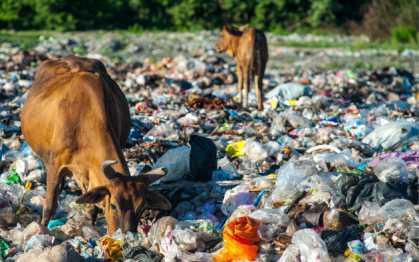

In Uganda, annual waste generation exceeds 3,000,000 tons, with a mere 8% being recycled. Most of the waste ends up in the environment, leading to pollution and emissions. To address this issue, the Fund collaborated with Ecoplastile Limited through its Hi-innovator programme to recycle plastic and glass waste into high-quality blocks and tiles. This initiative aims to reduce pollution significantly and contribute to minimising the global carbon footprint, and ultimately foster a green economy.
Energy efficiency and management

We have taken multiple steps to enhance efficiency in our operations. Our commitment to energy management performance includes preventing energy wastage and adhering to local and national energy regulations. Electricity serves as the primary energy source for the Fund's buildings, supplied through UMEME distribution feeders, with standby power diesel generators available as well. Our aim is continual improvement in energy management to ensure sustainability and compliance with energy-related regulations.
The Fund implemented the following activities during the year to ensure energy efficiency:
• Increased use of daylight
• All tenants were encouraged to replace fluorescent lights with Light Emitting Diodes (LEDs) that use less power
• Timers were installed for the security lights enabling them to operate based on specific requirements, ensuring efficient usage
• Improved lighting controls such as occupancy sensors and daylight level sensors
• Use of lift optimisation software to ensure efficient use of the lifts
Water conservation and waste management


Water and waste handling, treatment, and disposal assessments are conducted in accordance with regulations, as identified in Section 4.2, Global Environmental Health, and Safety (GEHS), which help in water monitoring and management.
The Fund implemented the following activities to save on water usage:
• We installed a water reservoir tank to address water shortages and promote water conservation
• Replaced our old taps with push taps
• Shut off water to unused areas
• We made use of closed-circuit cooling systems with cooling towers
We aim to explore the possibility of harvesting rainwater in FY 2023/24 to achieve additional savings on water usage.
ESG SUSTAINABILITY REPORT
NSSF - ESG SUSTAINABILITY REPORT - PAGE 67
Environmental impact assessments on real estate projects
During the year, the Fund continued to ensure that environmental and social impact assessments are conducted on all its projects through the National Environmental Management Authority (NEMA), to identify any potential positive and negative environmental and social impacts on the social and biophysical environment in line with Regulation 37 of the Environmental Assessment Regulations, Statutory Instrument No. 13 of 1998 and national environmental and social regulations 2020.
The assessment helped the Fund to identify key environmental indicators and determine legally acceptable thresholds on environmental standards for environmental quality (e.g., air, noise, water and soil) and protection of sensitive ecosystems, standards for solid and liquid waste management, land use guidelines, ecological and socio-economic issues and hence implement controls to reduce risks.
During the year, the Fund controlled the identified potential environmental impacts of ongoing real estate projects as follows:
Demolition and construction phase
Potential Impact
Loss of vegetation cover
Land degradation impacts

Mitigation
Compact loose soils resulting from civil works to prevent erosion and sedimentation.
Restricted construction vehicles to designated areas to avoid soil compaction within the project site.
Phased site clearance to minimise the area of exposed soil at any given time.
Cordoned off the construction site to intercept any eroded material.
Waste soil is reused for backfilling where necessary and during landscaping after construction.
Construction solid waste disposal impacts
Contractors undertake waste segregation at source to separate hazardous from non-hazardous waste.
Workers are sensitised on proper waste management practices.
The construction workers are provided with nose masks to prevent inhalation of bad air.
Dust emissions
On-site dust is suppressed by sprinkling of water twice a day.
A speed limit for all vehicles is enforced to reduce dust generated by speeding vehicles.
Except as otherwise permitted, all noise generating construction activities are restricted to the hours of 7:00 a.m. to 5:00 p.m. (during the least noise sensitive time).
Construction noise and vibration impacts
Construction workers involved in noise generating activities are provided with ear protection equipment such as earmuffs.
Construction activities shall conform to National Environment (Noise standards and Control) Regulations, 2003.
Operation phase
Domestic solid waste disposal impacts
Sewage disposal impacts
There is sorting of waste at the estate, and re-usable containers are used.
The project design incorporates sanitary facilities in each housing unit. These include water borne toilets.
The developer provides for well-constructed sewage lines collecting into the septic tanks.
INTRODUCTION | COMPANY PROFILE | SUSTAINABILITY STRATEGY AND GOALS | | GOVERNANCE AND ETHICS | FUTURE OUTLOOK AND GOALS SUSTAINABILITY LEVERS
NSSF - ESG SUSTAINABILITY REPORT - PAGE 68
4. SUSTAINABILITY LEVERS Achievements Against Performance Measures
FY
199 278 302 269 310 188 189 212 106 87 2019 2020 2021 2022 2023 WATER SAVINGS UGX MILLIONS Workershouse Social security house
2023 Outcomes FY 2025 Targets Annual savings target of 15% ESG SUSTAINABILITY REPORT
Impact over five years Water consumption 6% increase in water consumption (FY2022: -27%) The increase in water usage costs was due to the increase in commercial rates for water from a unit cost of UGX 4.473 million to UGX 4.920 million. 1,226 779 936 896 685 321 206 131 178 92 2019 2020 2021 2022 2023 ENERGY SAVINGS UGX Millions Workershouse Social security FY 2023 Outcomes FY 2025 Targets Energy consumption 28% reduction in energy consumption (FY2022: +1%) Annual savings target of 15% NSSF - ESG SUSTAINABILITY REPORT - PAGE 69
8% increase in paper consumption (FY 2022: -336%)
The increase in paper consumption was driven by the investigations on NSSF in February 2023. These investigations conducted by the Parliament of Uganda, Inspectorate of Government, and the Office of the Auditor General required printing of specific documents that were requested during the investigations.
Annual reduction in paper consumption of 95%
100% of the waste from our buildings is diverted to KCCA pipelines in accordance with the City Council Solid Waste Management Ordinance of 2000.
Continue to ensure that 100% of the waste from our buildings is diverted to KCCA pipelines in accordance with the City Council Solid Waste Management Ordinance of 2000.
Critical Success Factors for Environmental Protection
• Ensuring that all NSSF-owned buildings are built and operated in an environmentally sustainable way.
• Formally adopting the integration of environmental sustainability into our supply chain management to enable the reporting of sustainable procurement practices.

• Fostering an environmentally aware culture amongst NSSF employees.
• Investing in companies that are ESG compliant.
• Robust monitoring of environmental risks.
• Automating data collection to monitor environmental emissions.
INTRODUCTION | COMPANY PROFILE | SUSTAINABILITY STRATEGY AND GOALS | | GOVERNANCE AND ETHICS | FUTURE OUTLOOK AND GOALS SUSTAINABILITY LEVERS FY 2019 FY 2020 FY 2021 FY 2022 FY 2023 FY 2023 Outcomes FY 2025 Targets Paper consumption
Quantity 650 reams 320 reams 250 reams 1,090 reams 1,180 reams Unit price 19,400= 19,400= 19,400= 19,400= 19,400= Cost 12,610,000 6,208,000 4,850,000 21,146,000 22,892,000 FY 2023 Outcomes FY 2025 Targets Waste
NSSF - ESG SUSTAINABILITY REPORT - PAGE 70
GOVERNANCE AND ETHICS

ESG
SUSTAINABILITY REPORT



5. GOVERNANCE AND ETHICS Principles 1-3: Leadership, Ethics and Corporate Citizenship Principles 4-5: Strategy, Performance and Reporting Principle 6: Roles and Responsibilities of the Board Principle 7: Board Committee Composition Principle 8: Committees of the Board Principles 9-10: Board Evaluation and Delegation Principles 11-13: Functional Governance Areas Principle 14: Remuneration Governance Principle 15: Assurance Principle 16: Stakeholder Relationships Principle 17: Responsible Investments Foreword by NSSF Chairman Board of Directors Introduction to Corporate Governance Corporate Governance Aligned to King IV Principles Global Reporting Initiative (GRI) NSSF - ESG SUSTAINABILITY REPORT - PAGE 72 73 76 77 77 79 81 83 98 104 106 107 110 115 115 117
Foreword by NSSF Chairman Board of Directors
“I am pleased to present our corporate governance report for the FY2022/23, in the second year of the 12th Board being in office. On behalf of the Board, I take this opportunity to commend my fellow Board members and Management for their exceptional leadership in upholding good governance and ensuring that the Board’s mandate is delivered.”
Dr. Peter Kimbowa, Chairman, Board of Directors

Reflections on the year under review
The financial year has been overshadowed by the various probes into the Fund’s operations by Government agencies, i.e., the Parliament of Uganda, the Inspectorate of Government, the Office of the Auditor General, the Uganda Retirement Benefits Regulatory Authority (Regulator), and Criminal Investigations Department (CID). This was exacerbated by the media scrutiny focused on the governance of the Fund.
Despite the numerous probes, the Fund has demonstrated unwavering resilience and continued commitment to its purpose and sustainability. The Fund's governance was found sound. Our governance structure and processes have enabled us to continue creating value for the Fund, our members, and all stakeholders. Consequently, the Board has established internal cohesion, focus and dynamism amongst its members. The Board has also reignited its trust with all its stakeholders. The Board has built a robust information framework to ensure that information is accurate, complete, timely, and rational to facilitate its decision making.
Board Oversight and Focus
Throughout the financial year, the Board continued to engage on substantive issues and dispensed its oversight role through the mandated Board sub committees.
The issues of sustainability and ESG (Environmental, Social, and Governance) continue to be high on our agenda and we will continue to focus on them in the coming year. Over the years, the elements of ESG have been integrated into the business.

We demonstrate this in our inaugural ESG report . In addition, we are proud of the provisional BCA (Building Construction Authority – Singapore) green mark award certification which we received for our Lubowa Housing Project in December 2020, and we await certification for the other real estate projects.
Sound corporate governance

Our governance report sets out our robust approach to sound corporate governance and alignment to King IV principles, our mandate as the Board, together with reports from each Board Committee and activities executed in this ever-changing environment. The Board, being the overall custodian of good corporate governance, together with the Management Team, promotes and upholds the core fundamental principles of governance; accountability, fairness, transparency, and social responsibility in the way we conduct business and in all our processes.
Our integrated report discloses our performance to our members, our stakeholders, and the public as a commitment to our accountability and transparency. The Fund held an Annual Members’ Meeting in September 2022 which was both physical and virtual. At the meeting, we presented the financial performance and audit findings, and our integrated report to our members and all stakeholders. This will be done again on 25 September 2023. The Board’s approach is to ensure that corporate governance is embedded into the strategic objectives, operations, and internal processes of the Fund’s business. The Board is committed to keeping abreast with new corporate governance trends from an international, regional, and local perspective in the fulfilment of its vision to become the social security provider of choice to its members and generate tangible sustainable returns.
ESG SUSTAINABILITY REPORT 5. GOVERNANCE AND ETHICS NSSF - ESG SUSTAINABILITY REPORT - PAGE 73
The Board continues to:
Inspire trust both internally and externally
Clarify business purpose
Provide a culture of frequent and consistent measurement, feedback and reinforcement
Harness productive synergies through a team-based approach


Compliance Statement
The Fund’s governance approach is based on the main principles and provisions set out in the UK (United Kingdom) Corporate Governance Code and the King IV Code on Corporate Governance. The Fund adheres to and ensures full compliance with the provisions of the National Social Security Act Cap 222 (as amended) and the Uganda Retirement Benefits Regulatory Authority (URBRA that regulates the Fund’s activities. ), as applicable,
The Board is also governed by an internal Board charter which stipulates the parameters within which the Board operates and ensures the application of the principles of good corporate governance in all its dealings. The charter sets out the roles and responsibilities of the Board, its committees, and individual Directors, including its composition and relevant procedures of the Board. The charter is aligned with the provisions described above. The way we have applied and explained these governance principles is demonstrated throughout this report. The Board confirms that the Fund, throughout the period under review, complied with all applicable laws and regulations.
Notable outcomes FY 2022/2023
Regulatory reforms
The Board has oversight of compliance through the ARC. The Fund has successfully implemented the National Social Security Fund Act (Amended) that came into force on 7 January 2022.
The amendment introduced midterm access to benefits by our members, expanded coverage of members and employers as well as the dual supervision of the Fund by both the Minister of Gender, Labour and Social Development and the Minister of Finance, Planning and Economic Development. The Fund continues to engage with relevant stakeholders to develop regulations to operationalise some of the provisions of the amendments such as additional products for its members.
Technology transformation
The Board has oversight of technology and information governance through the Finance Committee. The Fund is implementing the Pension Administration System (OctoPAS) which is robust and has improved our efficiency.
Policies approved
The Board approved amendments to the following policies:
• Commercial Policy and Procedures Manual
• Information Security Management Policy
• Investment Policy Statement and Procedures Manual
• Stakeholder Management Policy
INTRODUCTION | COMPANY PROFILE | SUSTAINABILITY STRATEGY AND GOALS | SUSTAINABILITY LEVERS | | FUTURE OUTLOOK AND GOALS GOVERNANCE AND ETHICS NSSF - ESG SUSTAINABILITY REPORT - PAGE 74
Reward and recognition for our integrated report
We were delighted to report that the Fund was again ranked first runner-up at the FiRe awards for its Corporate Governance Report. This is a testament that these results reflect the focus and commitment that the Board and management dedicated to corporate governance in upholding the core fundamental principles.
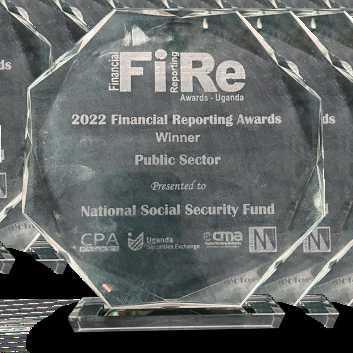
Challenges during the FY 2022/23
The multiplicity of probes/inquiries and the Fund’s inability to control the media perception exposed the vulnerabilities in an un-anticipated manner.
Probes on the affairs of the Fund affected the morale of the employees and other stakeholders. The Fund shall endeavour to reset, rebuild and reignite hope and a sense of optimism amongst staff, stakeholders and the market.

Restrictions on investments. There is a need for legislative reforms in specific areas to allow the Fund to broaden the investment portfolio and become more relevant.
Lessons from the probes/inquiries
The Board’s accountability ecosystem has improved.
We have held discussions that have introduced four plans as highlighted below:
• Emergency Response Plan
• Business Continuity Plan
• Disaster Recovery Plan
• Contingency Plan
Critical focus areas for FY 2023/24
• Strengthen a culture of excellence in execution of strategy through engagement and empowerment
• Review and improve the succession planning for the Board and Management to have a robust leadership talent pipeline
• Develop and implement a strategy that is responsible to the national social security plan
• Prioritise innovation both within and outside the Fund
• Broaden and deepen a footprint into sustainability
ESG SUSTAINABILITY REPORT 5. GOVERNANCE AND ETHICS NSSF - ESG SUSTAINABILITY REPORT - PAGE 75
Introduction to Corporate Governance
Ms. Agnes Tibayeita Isharaza, Corporation Secretary
Acknowledgement for providing legal advice and solutions
The Legal and Board Affairs Department’s key primary mandate is to proactively manage the Fund’s legal risk by providing legal advice and solutions to facilitate the Fund’s business. The Department is an approved Law Chamber operating on private legal practice norms.

I am delighted to report that for the second year running, the Legal Fraternity nominated and voted the Department as the In-house Legal Team of the year 2022-2023.
Providing support and guidance during the probes
We recognise that in the past year, the Fund has been subjected to investigations by various government agencies. This no doubt created uncertainty about the Fund among its members and stakeholders.
The Legal and Board Affairs Department provided the required support and guidance which has contributed to the stabilisation of the Fund specifically through concerted efforts by the Board and Management in exercising their respective statutory mandates.
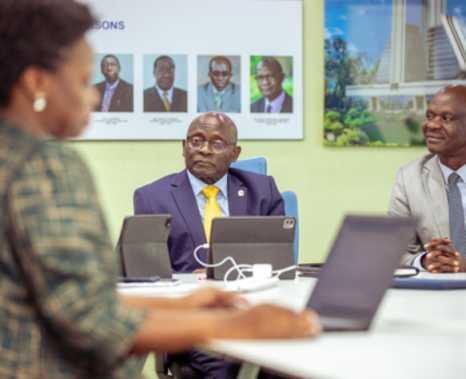
Legal sensitisations and legal aid clinics
The Legal and Board Affairs Department will continue to sensitise and empower external and internal stakeholders on the National Social Security Fund Act Cap 222 as amended, and emerging trends in the laws and their impact on the Fund and its members. Together with the relevant stakeholders, we conducted various legal sensitisations and legal aid clinics about compliance with the National Social Security Fund Act, Computer Misuse Act, 2011 and its amendments, conducting procurements in emergency situations with Public Procurement and Disposal of Assets Authority (PPDA), among others. The Department also sensitised over 700 members at Kakira Sugar Works in Jinja, the Makerere University Public Interest Law Clinic, and contractors providing services to Uganda National Roads Authority (UNRA) on the Fund’s mandate.
In a bid to effectively sensitise staff members on the interpretation of the amended National Social Security Fund Act, we broke down the Act into sizeable components dubbed “The Legal Series” Season 1: NSSF Amendment Act and seven publications have already been sent to staff. This fosters their understanding of the new provisions as they exercise their mandate and contribute to the Fund’s strategy. They in turn become ambassadors in sensitising the public.
Raising compliance levels
The establishment of an Enforcement and Debt Recovery Unit in the Legal Department has contributed to the Fund maintaining its compliance levels above 50%.


Focus for FY 2024
Our focus in the coming year is as follows:
• Adoption of the learnings from the investigations cited above through enhancing the Fund’s governance documents including appropriate amendments to the Board Charter and various policy documents
• Partnering with strategic bodies, apex bodies and regulators to drive compliance with the Fund’s mandate
• Continue to conduct sensitisations on the amendments of the NSSF Act Cap 222
• Continue to monitor the litigation trends and adopt strategies to minimise the risk of litigation
• Continue re-skilling staff on emerging legal trends and practices
• We remain committed to both our internal and external stakeholders and are confident that together we will accomplish the Fund’s purpose “to make lives better.”
INTRODUCTION | COMPANY PROFILE | SUSTAINABILITY STRATEGY AND GOALS | SUSTAINABILITY LEVERS | | FUTURE OUTLOOK AND GOALS GOVERNANCE AND ETHICS NSSF - ESG SUSTAINABILITY REPORT - PAGE 76
Corporate governance aligned to King IV principles
Giving effect to Corporate Governance Codes
The tables that follow are structured around the five core categories of King IV. These are:
Leadership, ethics, and corporate citizenship Strategy, performance, and reporting
Governance of functional areas
Governing structures and delegation of authority
Stakeholder relationships
In the tables, we show how the Fund has embraced and aligned to King IV Principles and the UK Corporate Governance Code in their efforts to achieve the spirit of what is intended by the five core categories above.
Principles 1–3: Leadership, Ethics and Corporate Citizenship
King IV principles and our activities
Principle 1 – The governing body should lead ethically and effectively.
Principle 2 – The governing body should govern the ethics of the organisation in a way that supports the establishment of an ethical culture.
Principle 3 – The governing body should ensure that the organisation is and is seen to be a responsible corporate citizen.
Effective and ethical leadership
• The Board sets the tone for accountability, ethics, and integrity, acting in the best interests of all stakeholders.
• The Board implements procedures and guidance to deal with actual or potential conflicts of interest and at the beginning of each Board meeting. Directors have an opportunity to declare any interest that could result in a conflict of interest.
• Through the Fund's values, we commit to being ethical and honest, and thereby inspire trust in all our business dealings. The Fund has a formal ethics policy and code of conduct, as well as dedicated resources to embed requirements and investigate ethics and integrity concerns reported as endorsed by the Fund's “Whistleblowing Policy.”
Corporate citizenship
• Sustainability is deeply rooted in our DNA, and our purpose-driven leadership model continues to place value creation for our stakeholders and wider society.
• Our objectives are focused on giving back to the community and promoting education, health, financial wellness/literacy, and the environment through our Corporate Social Investment Initiatives (CSI) in support of the Sustainable Development Goals (SDGs).
Outcomes
Desired outcome: Effective and ethical leadership, to be an organisation with an ethical culture, as well as being a good corporate citizen.
Effective and ethical leadership
• Continuous monitoring and reporting on the ethics performance of the organisation.
• Ethical leadership and transparency throughout the organisation.
• The values embodied by NSSF drive a sound culture and inform how we expect our employees and stakeholders to behave during their interaction with us.
• Ethics cases are investigated by Internal Audit in a confidential and timely manner and investigation reports are submitted to Management and the ARC for oversight.
• An external law firm (SIGNUM Advocates) was onboarded to manage the whistleblowing process.
Corporate citizenship
• The Fund is committed to acting in a manner that is responsible and transparent through the promotion of sustainable business practices, environment, employee, and community development, supporting the achievement of 11 prioritised SDGs.


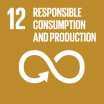
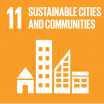
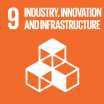
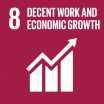
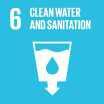

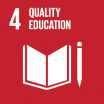


• For NSSF, this means we are leveraging our business and policy expertise, data, and capital to help drive an inclusive recovery, expand access to economic opportunity and accelerate sustainability and climate solutions.
• Oversight of sustainability takes place through the Board SACA Committee.
NSSF - ESG SUSTAINABILITY REPORT - PAGE 77
1 IV IV 2 3 ESG SUSTAINABILITY REPORT 5. GOVERNANCE AND ETHICS
IV
Summary of the arrangements for leading ethically, effectively, and responsibly
• Disclosure of conflicts of interest.
• Performance evaluations of the Board, Board Committees, and members.

• Whistleblowing Policy.
• Code of business conduct and ethics.

• A governance structure with clear delegation of authority to ensure an ethical culture.
• Procurement policies and practices.
• Anonymous reporting of unethical behaviour.
• Our sustainability drivers are embedded in our strategy and focused on ensuring sustainability for our business, our customers, communities, society, the economy, and the environment.
• Commitment to prioritised UN SDGs.
• Water and Energy Management Policy.
Measures taken to monitor ethical, effective, and responsible leadership and how the outcomes were addressed
• Revisiting/reaffirming Committee terms of reference.
• Formalising action plans to address the areas of improvement identified and recommended by the external auditors and other investigative agencies.

• The Board and Executive Management set the tone for an ethical culture in the Fund.
• Staff are encouraged to report unethical behaviour without reprisal.
• Monitoring and investigation of ethics cases by Internal Audit.
• Ethics to promote an ethical culture is embedded in the NSSF HR Manual which is given to each staff member.
• The ARC monitors oversight of the implementation of the Ethics and Whistleblowing Policy and Code of Conduct.
• Annual environmental risk assessments on all Fund projects in partnership with the National Environmental Authority (NEMA).
• Specific targets to reduce energy, paper, and water consumption.
• Compliance with City Council Solid Waste Management Ordinance of 2000.
Key areas of focus during the reporting period
Inaugural ESG report
Main Board focus areas 1
SACA ARC
Planned areas of future focus
2023/2024 Main Board focus areas
SACA outlook for 2024
ARC outlook for 2024
Main Board focus areas 2
INTRODUCTION | COMPANY PROFILE | SUSTAINABILITY STRATEGY AND GOALS | SUSTAINABILITY LEVERS | | FUTURE OUTLOOK AND GOALS GOVERNANCE AND ETHICS
NSSF - ESG SUSTAINABILITY REPORT - PAGE 78
Principles 4–5: Strategy, Performance and Reporting
King IV principles and our activities
Principle 4 – The governing body should appreciate that the organisation's core purpose, its risks and opportunities, strategy, business model, performance and sustainable development are all inseparable elements of the value creation process.
Principle 5 – The governing body should ensure that reports issued by the organisation enable stakeholders to make informed assessments of the organisation's performance and its short-, medium- and long-term prospects.
Strategy • The Board is responsible for the strategic direction of the Fund and has provided an enabling governance framework to support management to achieve its strategic plan by 2025.
Performance
• Key performance measures are aligned to the strategic objectives which translate into an organisational scorecard, cascading into individual scorecards.
Reporting • The Board ensures that it provides transparency to key stakeholders, both in good and tough times, by providing timely and balanced information, and in so doing, promotes stakeholders' confidence in the business. The NSSF reports the material results of its performance internally and to stakeholders. The Board is responsible for providing reporting guidelines regarding quality and depth of reports, meaningfulness, and relevancy to meet internal and external needs.
• We strive to give effect to the reporting requirements of the various leading practice codes/guidance/frameworks and good practice in our industry, etc.
See Our report overview, Reporting frameworks.
Outcomes
Desired outcome: Optimised performance, value creation and sustainability.
Strategy • The Fund has a clearly defined strategy incorporating Key Performance Indicators (KPIs) geared towards long-term value creation.
• Our sustainability drivers are embedded in our strategy to demonstrate our commitment to delivering on our prioritised SDGs and the environmental and social (ESG) impact we would like to make as a Fund.
Read more about our strategy and performance against strategy on page 79 of the Integrated Report
Performance
Reporting
Internal reports
External reports
• The Fund continues to deliver excellent results in all metrics and we measure ourselves against these to ensure achievement of milestones and execution of strategy.
• The Board and its Committees are supplied with complete and timely information from Management to enable the Directors to discharge their responsibilities.
• NSSF publishes an annual integrated report and audited financial statements to ensure all stakeholders remain informed. The integrity of the information included in the reports is overseen by the Board, with specific areas of reporting reviewed and challenged for appropriateness by the relevant Board Committees, as well as our Internal Audit and combined assurance functions.
• The Board ensures reporting of accurate, complete, and balanced information in the Integrated Report.
• Information related to the required disclosures appears in our Integrated Report. This includes matters relating to our strategy and detailed sections about our long-term goals, medium- to long-term targets, stakeholder engagement, governance approach and outlook. Additionally, our governance principles, including the King IV application are included in this chapter.
• Board training includes integrated reporting to deepen Directors' understanding of the requirements of the Integrated Reporting Framework.
• Integrated Reporting training is available to new Board members.
Summary of the arrangements for governing and managing strategy, performance, and reporting
• A ten-year strategy, supported by detailed Board strategic planning sessions.
• A fully integrated strategy, risk and opportunity and performance management process.
• Adequate budget and resources to deliver strategy.
Board assessment of the Fund's performance against the strategic targets and overall strategy.
Key areas of focus during the reporting period
• Board activities in support of strategy
• Material matters.
• Training acquainting the 12th Board of the Fund with the emerging trends of Corporate Governance.
IV IV 4 5 ESG SUSTAINABILITY REPORT 5. GOVERNANCE AND ETHICS
NSSF - ESG SUSTAINABILITY REPORT - PAGE 79
Measures taken to monitor strategy, performance, and reporting and how the outcomes were addressed
• Regular strategy, objectives, and emerging risk consideration sessions.
• Annual targets and KPIs linked to strategic objectives.
• NSSF Strategy. Read more on page 79 in the Integrated Report
• Performance against Strategy. Read more on page 89 in the Integrated Report
The integrity of the information in the reports is overseen by the Board, with specific areas of reporting reviewed and challenged for appropriateness by the relevant Board Committees, as well as our internal audit and combined assurance functions.
As mentioned previously, the annual financial statements are audited by PricewaterhouseCoopers (PwC).
Board activities 2022/2023 in support of the Fund's Strategy
• Customer experience (pain points due to data quality and manual processes)
Customer
• Inadequate engagement with customers across the life cycle
Finance
• Deliver a real rate of return on customer's savings
• Improve options for financial protection
•Manual interventions in key customer processes.
Processes
• Inadequate data quality for agile business decisions and deeper customer insights
• Develop a new business model for the Fund to include market segmentation, innovation of products and customer growth.
• Ubiquity in customer services channels
• Increased self-service
• Product Innovation
• Continuous review and adjustment of the Fund's strategic asset allocation
• Product innovations that deliver enhanced financial protection
• Automation of all core business processes
• Leveraging on partnerships using cross-reference to NIRA database
• Full development of OctoPAS to enable straight through processing of claims
Learning, Culture, Growth
• Progress maturity as a high-performing organisation
• Become a talent magnet, and nurture talent
• Improve staff work experience
• Address key “hygiene factors” to improve work environment
• Re-organise structure in line with process re-engineering to add more value to jobs (70:30)
• Return of at least 10year moving average of inflation +2%
• UGX 20Tn AUM
• Pay customer benefits within 1 day
• Update member statements in 24hrs
12.3 days
11.9 days
Benefits payment turnaround reduced due to the implementation of the Pension Administration System
Close monitoring of the turnaround time and measuring the average time taken to process claims
95% staff satisfaction rate
Employee satisfaction levels significantly reduced due to the changes with the Fund's structure, and this caused anxiety amongst staff
NSSF - ESG SUSTAINABILITY REPORT - PAGE 80
INTRODUCTION | COMPANY PROFILE | SUSTAINABILITY STRATEGY AND GOALS | SUSTAINABILITY LEVERS | | FUTURE OUTLOOK AND GOALS GOVERNANCE AND ETHICS
Perspective Key Issues Assessed Broad Strategic Interventions Definition of Success Position in 2021/2022 Position in 2022/2023
Business
95% customer satisfaction 82% 88% Service quality has been maintained across all channels.
UGX 17.25Tn UGX 18.56Tn Progress towards UGX 20Tn by 2025 is on track.
• Improve reward 92% 86%
Planned areas of future focus - Main Board focus 2024.
Principles 6–10: Governing Structures and Delegation
Principle 6: Primary Role and Responsibilities of the Board
King IV principles and our activities
Principle 6 - The governing body should serve as the focal point and custodian of corporate governance in the organisation
Roles and Responsibilities of the Board
Outcomes
Effective governance structures
• The Board bases its roles and responsibilities on the Board Charter, which stipulates the parameters within which the Board operates and ensures the application of the principles of good corporate governance in all its dealings. The Charter sets out the roles and responsibilities of the Board, it’s Committees and individual Directors, including its composition and relevant procedures of the Board. The Charter is aligned to the provisions of the UK Code and King IV Code on Corporate Governance
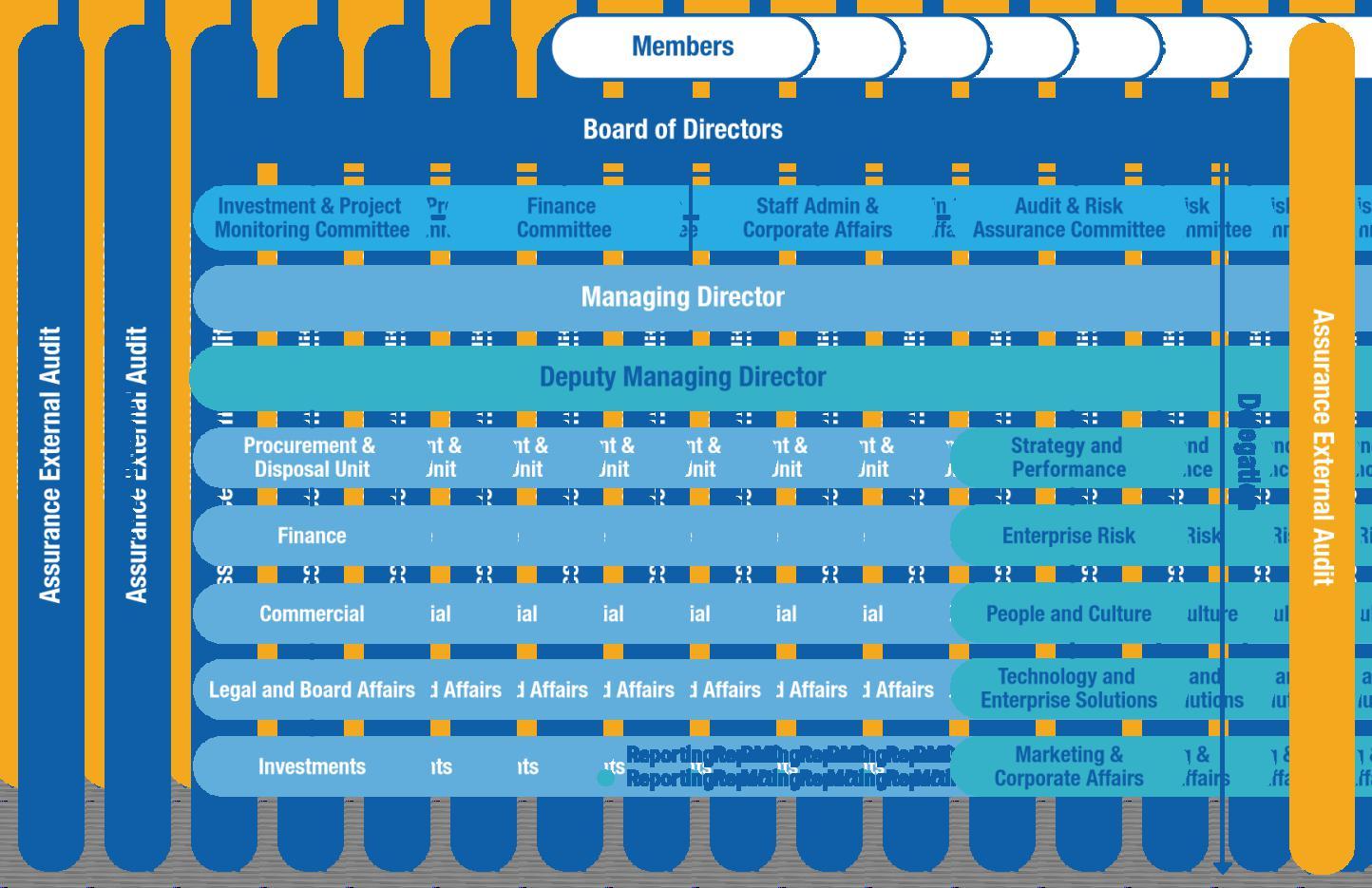
• As the custodian of good governance, the Board Charter is reviewed annually by the Fund, and provides minimum standards and guidelines for the Board in the execution of their duties
Responsibilities of the Board which are included in the Board mandate to fulfil the primary governing roles and responsibilities. The Board of Directors are responsible for the Fund's vision, strategic direction, its values, and governance by providing effective leadership towards:
• Ensuring good governance of the Fund by enhancing its long-term sustainable success.
• Determining the Fund's strategic objectives and organisational values.
• Setting up appropriate governance structures for the management of the Fund's business operations.
• Setting responsibilities, performance targets and evaluating management performance.
• Ensuring that human resources are in place and oversees succession planning for senior management to meet its objectives.
• Establishing policies and processes to guide the legal compliance and delivery of services.
• Monitoring the management and implementation of plans and strategies on a quarterly basis.
• Carrying out a review of internal control policies, risk management and procedures and ensures their effectiveness.
• Approving and monitoring the progress of major investments (S.30 of the NSSF Act and 46(1) (b) of the URBRA Act), as applicable.
• Approving and monitoring major contracts, acquisitions, and disposals.
• Advising the Minister of Finance, Planning and Economic Development on the appropriate rate of interest to be declared on members' accounts.
• Ensuring ethical behaviour and compliance with the laws and regulations.
Role of the Non-Executive Directors
The responsibility of the Directors is to exercise their independent judgement in the best interest of the Fund and its members, by:
• Participating in all Board meetings to bring an independent judgement on strategic issues of the Fund.
• Taking the lead where potential conflicts of interests arise.
• Scrutinising and monitoring the Fund and management's performance in achieving agreed corporate goals.
• Making a positive contribution to the development of the Fund's strategy and policies through independent, ethical, and informed decisions.
• Engaging with senior management and other relevant parties, such as professional advisors, external or internal auditors and the Fund's legal department, to ensure that it appropriately addressed the various concerns and issues.
The Non-Executive Directors meet separately as and when required. During the year of review, they met to discuss the transition of management at the Fund and relevant succession planning.
ESG SUSTAINABILITY REPORT 5. GOVERNANCE AND ETHICS
6
IV
NSSF - ESG SUSTAINABILITY REPORT - PAGE 81
Internal Audit
STRATEGY IMPLEMENTATION POLICY, CHARTER, MANUAL REVIEW & APPROVAL STAKEHOLDER ACTIVITY CORPORATE GOVERNANCE
Board activities in FY 2022-2023
JUL
For period ending 30 June 2022 Finance Committee reviewed and discussed:
• The Financial Report
• Update on the approval of the budget
FY 2022/2023
• Commercial Report
• Operations Report
• IT Report
• Procurement Report
ARC reviewed:
• The Legal and Board Affairs Report
• Internal Audit Report
• Risk Management Report
IPMC reviewed:
• The Investments Implemented Report
• Quarterly Investments Report
• The update on Property Management
• The update on Real Estate Projects
SACA reviewed:
• Staff updates
• Marketing update
• Contract renewals
• Updates on organisational redesign and change management
AUG
Extra ordinary SACA to review:
• Contract renewal for 17 NSSF senior staff
• Update on organisation redesign
• Appeals of the Head of Internal Audit and Head of Risk
• Update on staff training and travel budget
• Review the Fund’s succession plan
• Review of the Board Development Plan
Ordinary full Board meeting to review reports from Committees
OCT
For period ending 30 September 2022:
Finance Committee reviewed and discussed:
• Financial Report
• Business Report
• Operations Report
• IT Report
• Procurement Report
ARC reviewed:
• Legal and Board Affairs Report
• Internal Audit Report
• Risk Management Report
• The update on Property Management
Review of the Draft NSSF Audited Financial Accounts FY2021/2022
• Consideration of interest rate proposed for FY2021/2022
• Received and reviewed the Management Letter
• Submission of proposed interest rate FY2021/2022
• Staff appraisal moderation
• Full Board review of reports from Committees
Board activities in FY 2022-2023
JAN
6th extra ordinary Board meeting for FY2022/2023:
• Consideration of the proposed amicable settlement of court cases between the Fund and Mrs. Geraldine Ssali Busuulwa
• Ratification of the budget revision
7th extra ordinary Board meeting for FY2022/2023:
• Review of the communication strategy of the Board
• Updates on pending Board resolutions
8th extra ordinary Board meeting for FY2022/2023:
• Consideration of the proposed responses to the Minister's letter dated 7 December 2022
• Consideration and adoption of the Board communications protocol
FEB
DEC
Joint consultative meeting between the Board and NSSF management:
• Lessons from the Parliamentary session on 1 February 2023
• Updates (including from other investigating entities)
• Insights for the next 6 to 12 months
MAR
2nd ordinary Board meeting for FY2022/2023:
• Guidance on the final determination of the proposed UGX 6 billion provision in the FY2022/2023 budget
Reviewed Q2 reports for period ending 31 December 2022:
• Report of the SACA
• Report of the IPMC
• Report of the Finance Committee
Update on Investee companies' responses to the Fund's Board nominees.
Review of Board Training/Conference Reports and recommendations.
IPMC reviewed:
• The Investments Implemented Report
• Quarterly Investments Report
• The update on Property Management
• The update on Real Estate Projects
SACA reviewed:
• Staff and marketing updates
• No activities undertaken
MAY
2nd special meeting of the Board: Briefs on the prevailing legal claims on Fund properties:
• Lubowa
• Temangalo
• Bwebajja
• Nsimbe
3rd ordinary Board meeting to review Management Reports for FY2022/2023:
• Updates from the Chairman on Board training and nominations in the quarter
• Ratification of the circular resolution to approve the Fund Strategy FY2023/2024
• The Finance Committee recommendation on the proposed Budget for FY2023/2024
• Report of the Finance Committee Q3
• Report of the IPMC Q3
• Report of the SACA Q3
• Consideration of the ARC Q3
• Updates on the status of Board nominations to various Fund Investee companies
• Consideration of Board Training/Conference
Reports and recommendations:
The Zambia East and Central Africa Social Security Association (ECASSA).
INTRODUCTION | COMPANY PROFILE | SUSTAINABILITY STRATEGY AND GOALS | SUSTAINABILITY LEVERS | | FUTURE OUTLOOK AND GOALS GOVERNANCE AND ETHICS
SEP
NOV
No activities undertaken No activities undertaken JUN APR NSSF - ESG SUSTAINABILITY REPORT - PAGE 82
5. GOVERNANCE AND ETHICS
The Board action plan for 2023/2024 will cover the following areas:
• Achieving a technology-driven strategy in a balanced portfolio of pragmatic investments.
• Ensuring that the Fund achieves a stable but agile culture.
• Operationalising the NSSF Amendment Act 2022 to ensure that members' needs in terms of new products and easy access to benefits is enhanced.
• Diversifying the Fund's investment portfolio.
Principle 7: Composition of the Board
King IV principles and our activities
Principle 7 – The governing body should comprise the appropriate balance of knowledge, skills, experience, diversity, and independence for it to discharge its governance role and responsibilities objectively and effectively.
A diversified and balanced Board
Outcomes
Effective governance structures
The Board comprises Directors with a wide variety of skills and experience to effectively lead the strategic direction of the Fund. The 12th Board is diverse and balanced.
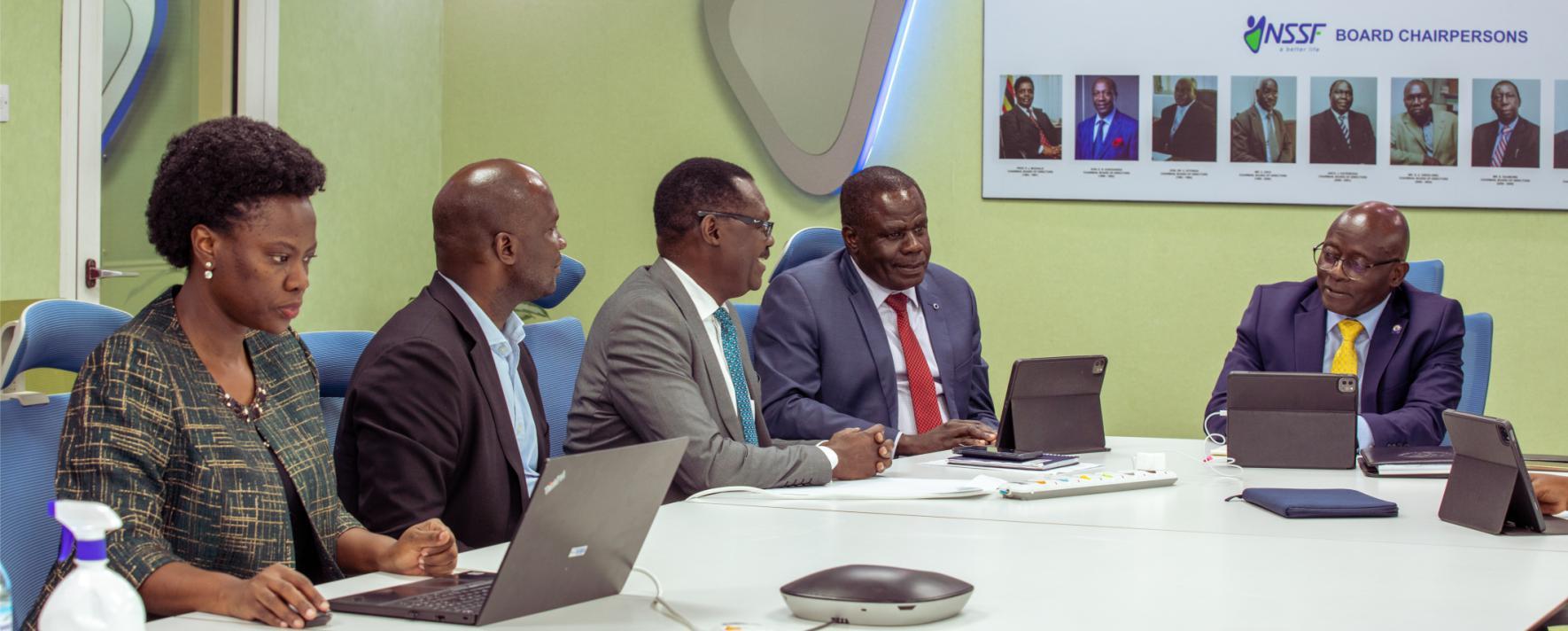
Independence
As of 30 June 2023, eight of the Non-Executive Directors were independent as defined in the governance codes and our Board Charter which represents 88% of the Board. Directors are required by the Board to be independent of Management and free from any business relationship or other circumstance that could materially interfere with objectivity, unfettered or independent judgement. The independence of each Director is assessed annually by the Board as part of its annual Board Effectiveness Review and in conducting its current assessment, it was concluded that all Directors continue to bring strong independent oversight and demonstrate those qualities and behaviours it regards essential to be considered independent as set out in their terms of reference and Board Charter.
Board composition and tenure
The Board of Directors/Trustees is the governing body of the Fund and accountable for reviewing, evaluating, and directing the Fund's strategic plan and objectives.
The Board is headed by the Chairman and consists of:
• Ten Directors appointed for a three-year renewable term in line with the NSSF Act cap 222 (amended).
• Directors who represent each of the key stakeholder groups of members, employees, employers, and government, and include:
- One Executive Director (ex-officio); and
- Nine Non-Executive Directors.
The Chairman is independent and in line with best practice, his roles are separate from those of the Managing Director.
Board appointments and resignations
The Minister responsible for Social Security, currently the Minister of Gender Labour and Social Development, appoints Directors for a three-year renewable term. Appointment of Directors is subject to a due diligence and approval of the Regulator (URBRA), as applicable. The MD is recommended by the Board and appointed by the Minister. Under section 3(4) of the NSSF Act, a Director may, by writing in his/her own hand a letter addressed to the Minister of Gender, resign his/her office.
During the year under review, Mr. Patrick Micheal Ayota was appointed to the Board as an Executive Director in an acting capacity following the end of tenure of Mr. Richard Byarugaba's contract.
ESG SUSTAINABILITY REPORT
NSSF - ESG SUSTAINABILITY REPORT - PAGE 83
IV
7
Board Composition
Chairperson
Executive Director
Board skills and experience
Non-Executive Directors
Executive Committee skills and experience
We believe in having a diverse leadership team regarding experience, skills, tenure, geographical expertise, professional background, and gender as illustrated here:
Director induction, training, and development
• The Board considers that the development of industry and Fund knowledge is a continuous and ongoing process. Upon joining the Fund, each Director undertakes an induction programme to further their understanding of the nature of the Fund, its business, and the environment in which it operates, and enhance their knowledge of the Fund's operations and staff. The induction programme is tailored to each new director, depending on individual experience and background.


• The Corporation Secretary maintains the Directors' annual training records for regular review by the Board.
In addition to Directors' attendance at meetings and review of relevant materials provided by Management during the year, they attended professional training to enhance their skills and knowledge as set out below:
NSSF - ESG SUSTAINABILITY REPORT - PAGE 84 INTRODUCTION | COMPANY PROFILE | SUSTAINABILITY STRATEGY AND GOALS | SUSTAINABILITY LEVERS | | FUTURE OUTLOOK AND GOALS GOVERNANCE AND ETHICS
Dr. Peter Kimbowa
Patrick Micheal Ayota
Patrick Ocailap
Aggrey David Kibenge
Peninnah Tukamwesiga
Annet Nakawunde Mulindwa Silver Mugisha
Sam Lyomoki
Annet Birungi Lwabayi Mudiba Hassan
2 1 1
6 12 10 3 6
5. GOVERNANCE AND ETHICS

NSSF - ESG SUSTAINABILITY REPORT - PAGE 85 ESG SUSTAINABILITY REPORT
NSSF Board Committee
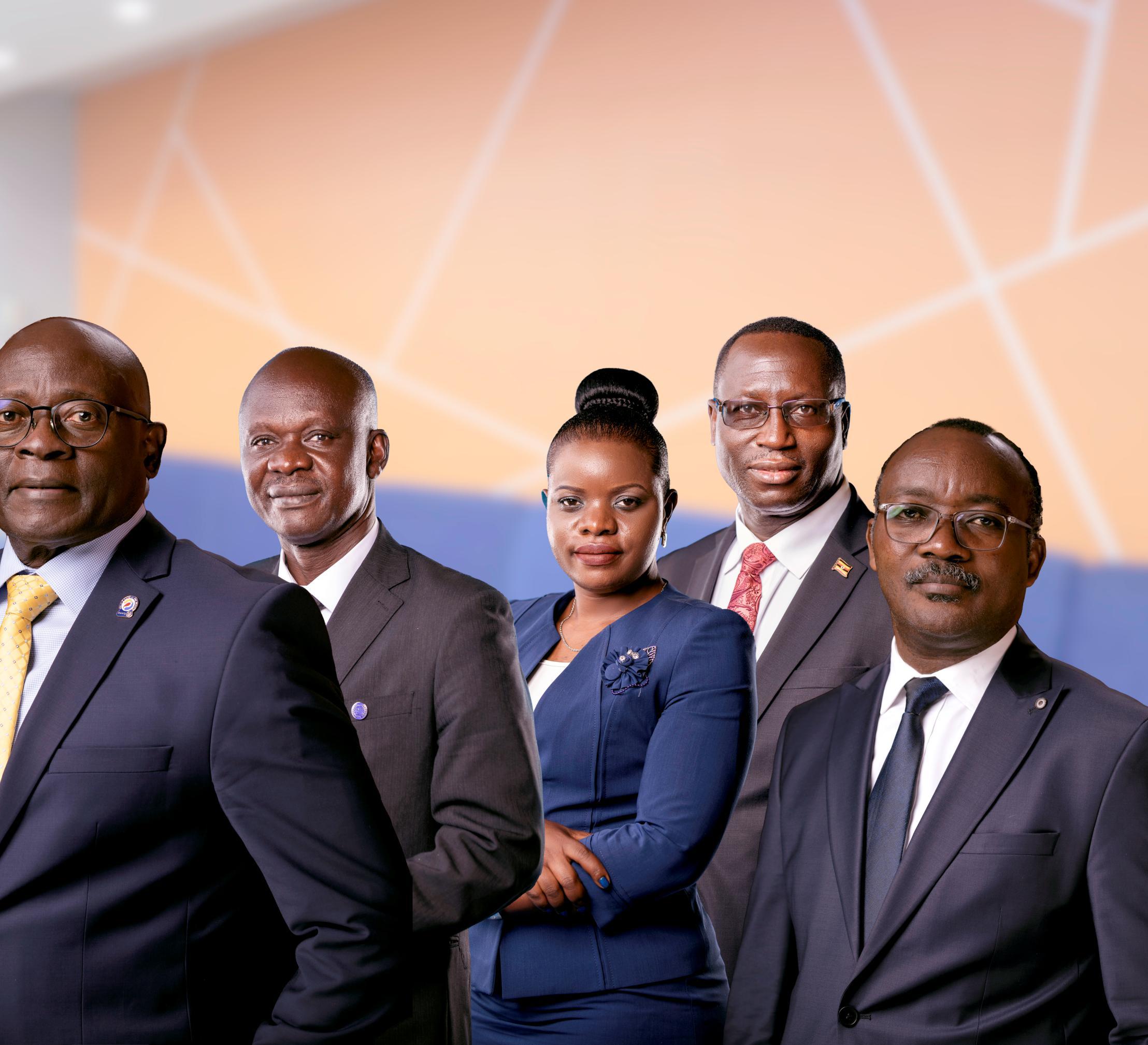
INTRODUCTION | COMPANY PROFILE | SUSTAINABILITY STRATEGY AND GOALS | SUSTAINABILITY LEVERS | | FUTURE OUTLOOK AND GOALS GOVERNANCE AND ETHICS NSSF - ESG SUSTAINABILITY REPORT - PAGE 86
5. GOVERNANCE AND ETHICS
Board of Directors Profiles
Qualifications
PhD - Commonwealth University
MBA (Strategy) - Maastricht/ESAMI
Internationally Certified Coach - Cert. No. 12322 by the International Coach Federation (ICF)
Internationally Accredited Clarity 4D Trainer
Member - American Management Association
Member - Harvard Business Review
Expertise
Governance Advisor
Advisory Services to Financial Institutions and public and private sector Boards
Global leadership catalyst
Coach
Author and speaker
Organisational and transformational work
Futurist Strategy Advisor Sustainability expert Financial Institutions
Appointed: 1 September 2021
Tenure: 1 year 10 months
Qualifications
CPA(U) - Certified Public Accountant of Uganda
MBA - University of South Carolina, USA
Board Memberships
Chairman of the Board, National Social Security Fund
Chairman and Trustee, CEO Summit Uganda
ESKOM
Jubilee Allianz
League of East African Directors
Goodwill Ambassador (Investment) - Uganda Red Cross Society
Founder and Chairman of the Sustainability Center at the CEO Summit
Founding Vice President, International Coaching Federation (Uganda Chapter)

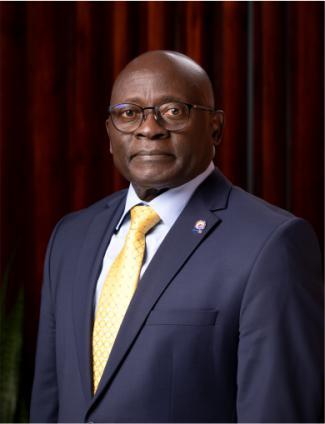
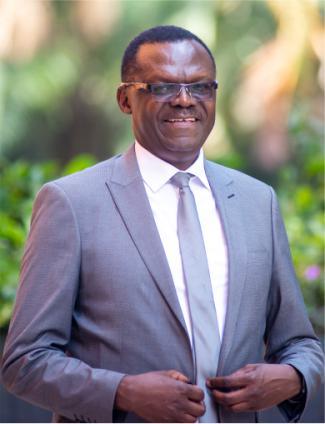
Private Sector Foundation
Other Memberships and Positions
Member of the American Management Association and Harvard Review
Member of McKinsey
Member of the African Association of Business Schools
Former Associate at Strathmore Business School (SBS)
Founding Team Leader at IFE Consultants Limited
Member of the African Shared Value Network
Appointed: 1 December 2022
Tenure: 7 months
Bachelor of Science Degree in Finance - Liberty University, Virginia, USA
CPA – Georgia USA
Expertise
Strategy formulation and execution
Innovation
Financial reporting and accounting
Taxation
Leadership Project management Financial analytics
Board Memberships
Chairman of the Board of New Vision Group
Non-Executive Director of Housing Finance Bank
Board member, ICPAU, (Quality Assurance)
Other Memberships
League of East African Directors (LEAD)
President ISSA focal liaison office East and Central Africa
Qualifications
Master's Degree in Development Economics - Williams College Massachusetts, USA
Bachelor of Commerce Degree in Finance - Makerere University, Uganda
Certified Public-Private Partnerships (PPP) Member from the Institute of Public Private Partnerships - IP3, USA
Certificates in Public Finance, Taxation and Fiscal Policy Management
Other Training
Master Trustee Certification from Johannesburg School of Finance, South Africa
Expertise
Development economics
Public policy and financial management
Strategy formation and execution
Financial reporting, accounting, and taxation
Risk management
Project management
Governance and compliance
Mr. Patrick Ocailap
Non-Executive Director
Government Representative from Ministry of Finance Planning and Economic Development (MOFPED)
Appointed: 11 December 2013
Tenure: 9 years 7 months
Board Memberships
National Social Security Fund
Uganda National Airlines Company Ltd
National Housing and Construction Company Ltd
Other Memberships
League of East African Directors (LEAD)
NSSF - ESG SUSTAINABILITY REPORT - PAGE 87 ESG SUSTAINABILITY REPORT
Mr. Patrick M Ayota Managing Director
Dr. Peter Kimbowa Chairman Board of Directors Private Sector Representative
Representative Federation of Uganda Employers
Appointment: 1 September 2021
Tenure: 1 year 10 months
Qualifications
Ph.D. in Engineering and Economics and Management, Makerere University, Uganda in collaboration with PURC-University of Florida, USA
MSc. Sanitary Engineering (Sector Utility Management) - IHE Delft-Netherlands
BSc. Civil Engineering - Makerere University, Uganda
Other qualifications
Fellow of the International Water Association and Sense Research School of the Netherlands
Certificate in Public - Private Partnerships - Contractualisation in WSS - World Bank Institute, USA/AfWA
Certificate in Corporate Governance: Enhancing Board Effectiveness - Institute of Corporate Governance of Uganda
Certificate in Private Sector Participation - Catalyst2 – UK
Certificate in Private Sector Participation - Stone & Webster Consultants, UK
Certificate in Result Oriented Change Management - African Management Development Centre
Certificate in Private Sector Participation and Financing - Technical University of Berlin, Germany
Certificate in Utility Regulation and Strategy - PURC-University of Florida, USA
Expertise
Organisational development
Business process re-engineering
Capacity development, networking and partnerships development
Performance development planning and implementation
Project management, negotiations and financing
Strategic management and enterprise reforms
Performance monitoring and regulation
Human resources development and productivity analysis
Performance incentives design and benchmarking
Cost-benefit analysis
Hydraulic structures and design
Management of water supply and sanitation systems
Public-Private Partnerships
Operations research and industrial organisation
Stakeholder mapping and buy-in
Other Memberships
League of East African Directors (LEAD)
Board Memberships
National Social Security Fund
President, African Water and Sanitation Association

Chairman, Federation of Uganda Employers
Chairman, Uganda Business and Technical Examinations Board
Chairman, Governing Council of Uganda Technical College, Bushenyi
Member, Board of National Water and Sewerage Corporation
Vice Head of Laity, Mbarara Archdiocese
Ms. Annet Nakawunde
Mulindwa
Non-Executive Director
Representative Federation of Uganda Employers
Appointed: 28 February 2022
Tenure: 1 year 4 months
Awards and Achievements
“Financial Women of the Year 2008” by Women's World Banking, New York, USA
“Appreciation Award” by The Lions Club of Entebbe, Uganda (2015)
“Honorary Fellow Award” by Uganda Institute of Banking and Financial Services (2015)
Qualifications
Masters in Business Administration majoring in Finance - Makerere University, Kampala
Postgraduate Diploma in Financial Management - Uganda Management Institute
Bachelor's Degree in Arts - Makerere University, Kampala
Strategic Leadership in Inclusive Finance - Harvard Business School (USA)
Business Continuity Management - Certificate in ISO 22301 Foundation
Balanced Scorecard Professional (BSP) - George Washington College of Professional Studies, USA
Advanced Leadership Training - Wharton Business School, University of Pennsylvania, USA
Other qualifications
Strategic Leadership in Inclusive Finance - Harvard Business School (USA)
Business Continuity Management - Certificate in ISO 22301 Foundation
Balanced Scorecard Professional (BSP) - George Washington College of Professional Studies, USA
Advanced Leadership Training - Wharton Business School, University of Pennsylvania, USA
Financial Risk Management - London School of Economics
Advanced Management Programme - Strathmore University Business School
Coaching Programme for Mission, Leadership and Performance - Creative Metier, Oxford, England
Strategic Management Course for Microfinance Practitioners by the Microfinance Association UK - Washington DC (24 - 28 September 2018)
Africa Board Fellowship by ACCION/ Centre for Financial Inclusion - Cape Town, South Africa (9 – 11 April 2018)
Micro, SME and Housing Finance Summer Academy by the Frankfurt School of Finance and Management, Germany (July 2017)
Strategic Response to Risk in Microfinance Markets by Boulder Institute of Microfinance and International Finance Corporation (IFC) (December 2016)
Board and Audit Committee Workshop - Corporate Governance by The Institute of Internal Auditors Uganda (2014)
Corporate Governance Training by Institute of Corporate Governance in Uganda (2013)
Coaching Programme for Mission, Leadership and Performance by Creative Metier, Oxford, England (June - December 2009)
Training in Balanced Scorecard by Ernst and Young (April 2009)
Women in Leadership - Women's World Banking and Center for Microfinance Leadership (July 2008)
Basic banking by Institute of Bankers, Uganda
Expertise Banking Leadership
Women development
Coaching Asset and liability management
Audit and risk management
Corporate governance
Other Memberships
League of East African Directors (LEAD)
Board Memberships
Member of the Board National Social Security Fund (NSSF)
Member of the Board Finance Trust Bank (FTB)
Member of the Board Agent Banking Company Limited (ABC)
Member of the Uganda Revenue Authority Tax Agents' Registration Committee (TARC)
Deputy Chairperson - Federation of Uganda Employers (FUE) Member of the Board -

Private Sector Foundation Uganda (PSFU)
Member of the Board - Buganda Heritage/Culture and Tourism
EXCO Member of the Uganda Banker's Association
Dr. Eng. Silver Mugisha
Non-executive Director
INTRODUCTION | COMPANY PROFILE | SUSTAINABILITY STRATEGY AND GOALS | SUSTAINABILITY LEVERS | | FUTURE OUTLOOK AND GOALS GOVERNANCE AND ETHICS NSSF - ESG SUSTAINABILITY REPORT - PAGE 88
5. GOVERNANCE AND ETHICS
Qualifications
Bachelor of Medicine and Bachelor of Surgery - Makerere University, Uganda
Master of Business Administration
Master of Science in Community Health
Master of Public Administration and Management
OakSeed Executive Leadership Course of the Institute of National Transformation (INT), USA.
Leadership Training Programme on Servant Leadership of the Sundoulos African Leaders' Training (SALT) Programme in Partnership with Development Associates International, USA
Course in Key Labour Market Issues in Africa of the World Bank Institute, Global Development Learning Network Centre, Uganda
Management Institute
Other training
Executive Training from various institutions like ESAMI in:
Leadership
Corporate governance
Accounting
Project management
Social security
Financial analysis
Labour and human resource management and workers education
Advanced auditing
Proactive management
Investments
Appointed: 1 September 2021
Tenure: 1 year 10 months
Accredited Master Trustee training by Johannesburg School of Finance, South Africa
Expertise
Medicine and public health
Occupational health and safety
Human resource management and public administration
Leadership
Legislation and representation
Social security and health insurance
Business administration
Human rights, labour rights and labour markets
Stakeholder and people management
Strategic and proactive management
Lobbying and critical thinking
Board Memberships
National Social Security Fund
Secretary General of the Central Organisation of Free Trade Unions (COFTU)
Social Security Sector Coordination Committee
Labour Advisory Board
Hosanna Uganda
Lodoi Development Fund
Uganda Medical Association
Workers Ministries
Various ILO and international labour movement Tripartite Technical Panels and committees
General Secretary of the National Union of Lawyers, Judicial Officers and Allied Workers Union (NULJAW)
Deputy Secretary General Central Organization of Free Trade Unions (COFTU)
Other Memberships
League of East African Directors (LEAD)
Qualifications
Master of Laws - Makerere University, Uganda
Post Graduate Diploma in Legal Practice - Law Development Centre
Bachelor of Laws - Uganda Christian University
Other Training
Post-graduate training on National Governance of Occupational Safety and Health from International Training Centre, Geneva Mediation Training by Justice Centers, Uganda
Corporate Governance Training by Euromoney Learning Solutions
Corporate Governance and Risk Management Training by Global Focus Training Group
World Bank Pension Core Course, 28 April 2018 intake by World Bank, Washington, DC, USA
Accredited Master Trustee training by Johannesburg School of Finance, South Africa
Strategic approach to investment by Public Administration International, London, United Kingdom
Trustee trainings by Uganda Retirement Benefits Regulatory Authority
The effective director training by Strathmore Business School, Nairobi
Corporate Governance and Human Resource by Public Administration International (PAI) London, United Kingdom
Master Trustee Certification from Johannesburg School of Finance, South Africa
Certification on Pension Funds by World Bank, Washington DC
Investments Training, Public Administration International (PAI)
Non-executive Director Workers
Representative COFTU (Central Organisation of Free Trade Unions)
Appointed: 1 September 2015
Tenure: 7 years 10 months
Advanced Audit Training by ESAMI
Expertise
Legal expertise
Labour law and arbitration
Human resource management and development
Corporate governance
Employment advisory
Commercial law
Dispute resolution
Taxation
Current Positions Held
General Secretary of National Union of Lawyers, Judicial Officers, and Allied Workers Union (NULJAW)
Deputy Secretary General of Central Organisation of Free Trade Unions
Consultant Partner Jojoma Advocates
Board Memberships
Executive Board member of the Central Organisation of Free Trade Unions (COFTU)
Board Member of the National Social Security Fund (NSSF)

Board member of Uganda Clays Limited (UCL)
Board member of TPS Serena Hotel Uganda
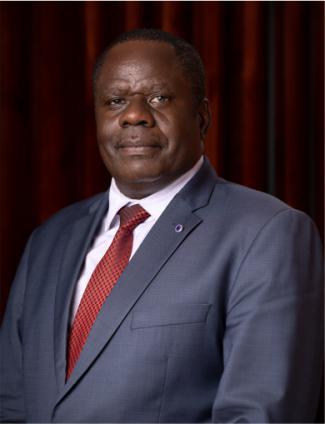
Other Memberships
Member of the East African Law Society
Member of Uganda Law Society
League of East African Directors
Dr. Sam Lyomoki
Non-Executive Director Workers
Representative Central Organisation of Free Trade Unions
Ms. Peninnah Tukamwesiga
NSSF - ESG SUSTAINABILITY REPORT - PAGE 89 ESG SUSTAINABILITY REPORT
Non-Executive Director, Representing Workers' (National Organisation for Trade Unions)
Appointed: 1 September 2021
Tenure: 1 year 10 months
Qualifications
Bachelor of Laws Degree from Cavendish University Uganda (CUU)
National Diploma in purchasing and supplies management from Nakawa Institute of Business Studies (NIBS)
Other Training
International Training Centre (ILO Corso unita d-Italia, Turin, Italy), Diploma in Organisation Management within Trade Unions
Certificate in Business Studies I and II at Kampala Business Institute
Certificate of attendance in Personal Management at MTAC, Nakawa
Proactive Management Programme by ESAMI, Arusha Tanzania
Advanced Audit Programme ESAMI
Expertise
Law
Procurement
Labour rights
Organisational management
Negotiation skills and alternative dispute settlement skills (ADR).
Board Memberships
Member of the Board of Trustees National Social Security Fund
Other Memberships
League of East African Directors (LEAD)
Qualifications
PhD (Honorary) - British American University
Master of Public Administration and Management - Makerere University

Bachelor of Education - Makerere University
Diploma in Education- National Teachers' College, Kakoba
Other Qualifications
Certificate in Administrative Law from the Law Development Centre
Expertise
Education
Leadership
Strategy formation and execution
Risk management
Project management
Public policy
Business development
Governance and compliance
Project management
Non-Executive Director
MOGLSD (Ministry of Gender
Labour and Social Development)
Appointed: 10 November 2020
Tenure: 2 years 8 months
Board Memberships
National Social Security Fund
Member of the Global Partnership to End Violence Against Children, Executive Committee
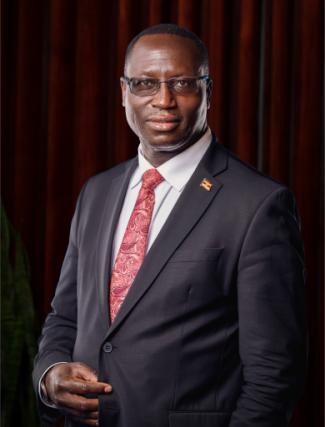
Other Memberships
League of East African Directors (LEAD)
Qualifications
Masters in Management Science
Post Graduate Diploma in Hospital and Health Care Management from Uganda Management Institute
Bachelor of Science Degree in Nursing Science from International Health Science University
Certificate in Registered Nursing from Mulago School of Nursing and Midwifery
Certificate in Enrolled Nursing from Kabale School of Nursing and Midwifery
Other Training
Proactive Management Programme by ESAMI, Arusha Tanzania
Expertise
Professional nurse
Lobbying skills
Advocacy
Worker's rights
Board Memberships
National Social Security Fund
Ms. Annet Birungi

Non-Executive Director, Workers
Representative (National Organisation for Trade UnionsNOTU)
Appointed: 28 February 2022
Tenure: 1 year 4 months
Member of National Organisation of Trade Unions
Uganda Trade Unionists Multipurpose Co-operative Society Limited
Uganda Nile Discourse Forum
Other Memberships
League of East African Directors (LEAD)
Mr. Hassan Mudiba Lwabayi
Mr. Aggrey David Kibenge
INTRODUCTION | COMPANY PROFILE | SUSTAINABILITY STRATEGY AND GOALS | SUSTAINABILITY LEVERS | | FUTURE OUTLOOK AND GOALS GOVERNANCE AND ETHICS NSSF - ESG SUSTAINABILITY REPORT - PAGE 90
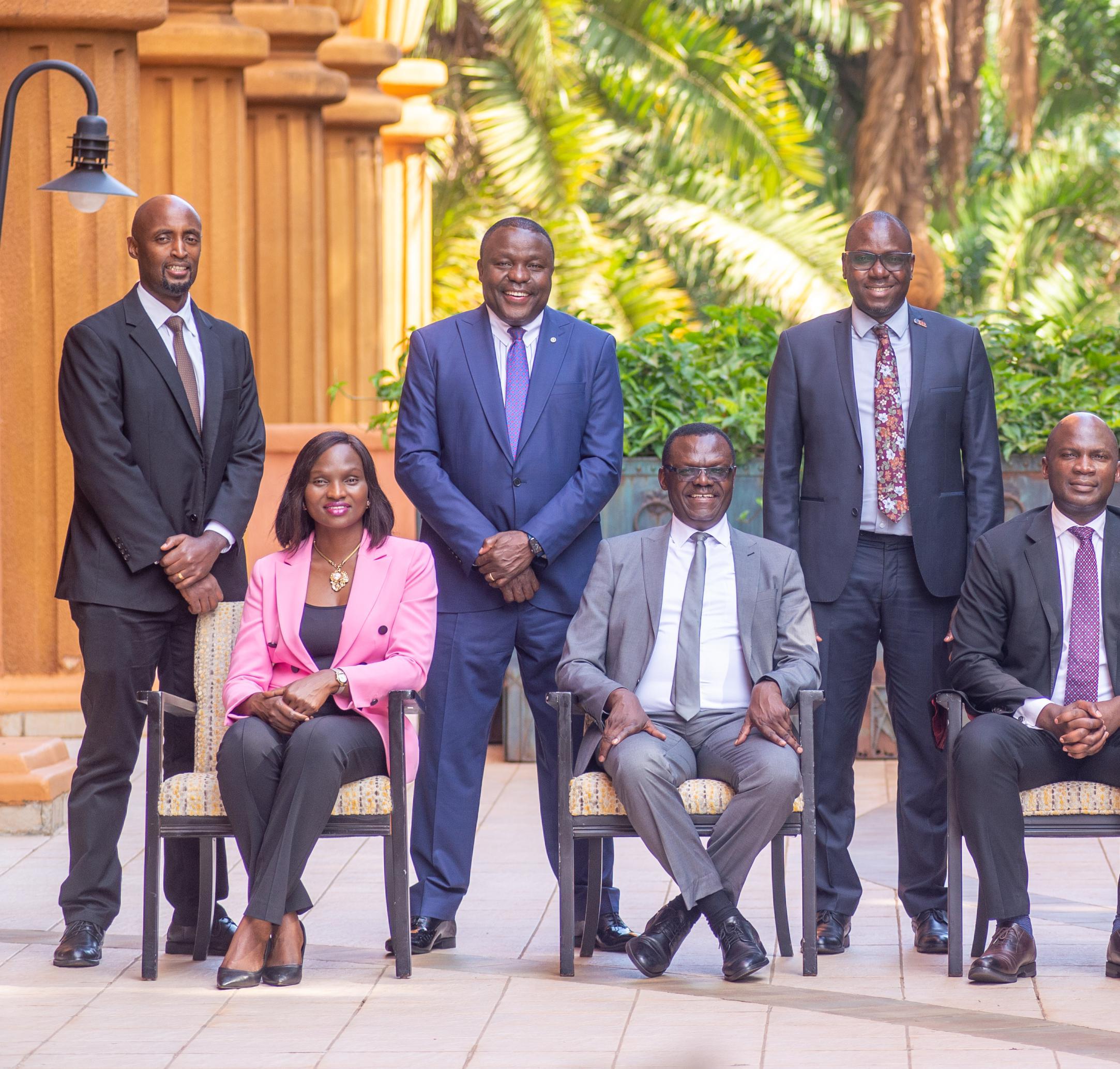
ESG SUSTAINABILITY REPORT 5. GOVERNANCE AND ETHICS NSSF - ESG SUSTAINABILITY REPORT - PAGE 91
NSSF Executive Committee
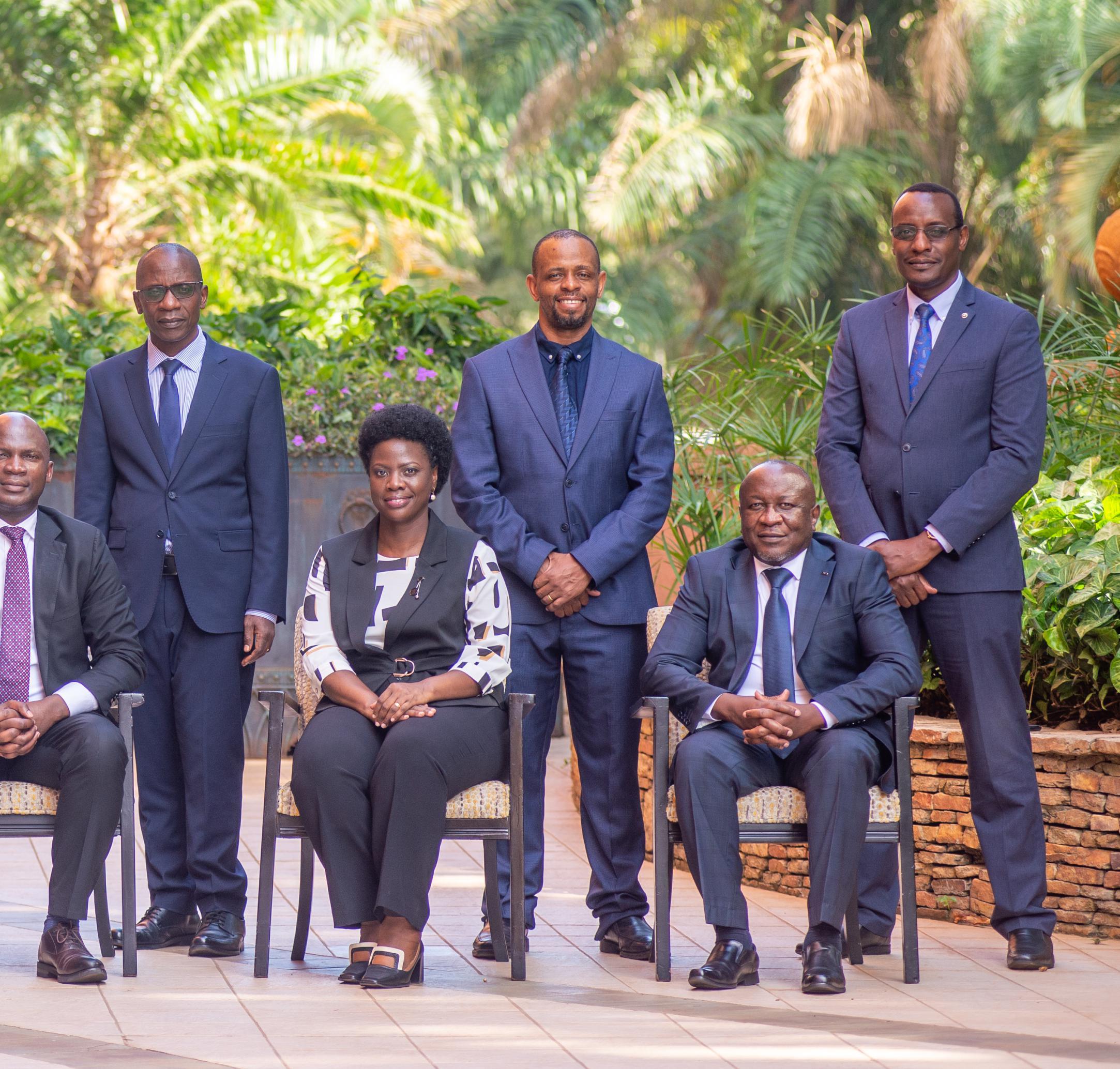
INTRODUCTION | COMPANY PROFILE | SUSTAINABILITY STRATEGY AND GOALS | SUSTAINABILITY LEVERS | | FUTURE OUTLOOK AND GOALS GOVERNANCE AND ETHICS NSSF - ESG SUSTAINABILITY REPORT - PAGE 92
5. GOVERNANCE AND ETHICS
NSSF Executive Committee Profiles
Qualifications
CPA(U) - Certified Public Accountant of Uganda
MBA - University of South Carolina, USA
Bachelor of Science Degree in Finance - Liberty University, Virginia, USA
CPA – Georgia USA
Expertise
Strategy formulation and execution
Innovation
Financial reporting and accounting
Taxation
Leadership
Project management
Financial analytics
Appointed July 2011
Tenure 12 years
Board Memberships
Other Memberships
Chairman of the Board of New Vision Group
Non-Executive Director of Housing Finance Bank
Board member, ICPAU, (Quality Assurance)
League of East African Directors (LEAD)

President ISSA focal liaison office East and Central Africa

Qualifications
CPA - Institute of Certified Public Accountants of Uganda (ICPAU)
Fellow of the Association of Chartered Certified Accountants (ACCA), UK
MBA in Business Management - Heriot-Watt University (Edinburgh Business School)
Post Graduate Diploma in Business Management - University of Leicester
Bachelor of Arts Degree - Makerere University
Other Training - Alumni of the Executive Programmes of:
The Wharton School (University of Pennsylvania)
The Gordon Institute of Business Science (University of Pretoria)
Strathmore Business School (Strathmore University)
Balanced Score Card Professional – George Washington University College of Professional Studies
Appointed November 2017
Tenure 6 years
Expertise
Strategy formulation and execution
Financial reporting and accounting
Taxation
Leadership
Project management
Coaching and mentoring
Sales and marketing
Operations management
Change management
Board Memberships
Cipla QCI (Listed on the Uganda Securities Exchange)
Deputy Chairperson and Chair Audit Committee: Entrepreneurs Financial CentreEFC (a Microfinance Deposit - Taking Institution)
Qualifications Masters in data science - Eastern University, United States
BSc Mech Eng. - Makerere University
MBA - Makerere University
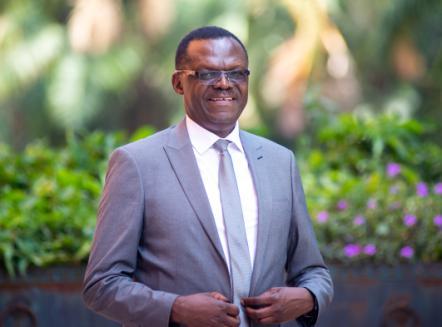
Six Sigma Black Belt-American Society of Quality
Certificate in digital financial services - Tuft University
Certificate in data science - Analytics Vidya
Project management by numbers - Shell Academy
Emergent change leadership - Shell Academy
ACCA (Partial)
Expertise Strategy
Cyber security
Digital financial services
Business process re-engineering
Leadership
Account management
Financial product and channel design
Business intelligence
Appointed September 2021
Tenure 2 years
Six Sigma methodology
Machine learning
Artificial intelligence
Mechanical engineering process design
Coaching
Failure mode and effect criticality assessment
Project management
Mr. Patrick M Ayota
AG. Managing Director and Deputy Managing Director
Mr. Stevens Mwanje
Chief Financial Officer
Mr. Benoni Katende
Chief Technology and Enterprise Solutions Officer
ESG SUSTAINABILITY REPORT
NSSF - ESG SUSTAINABILITY REPORT - PAGE 93
Appointed September 2010
Tenure 12 years
Qualifications
Fellow of the ACCA, United Kingdom
CPA, Institute of Certified Public Accountants of Uganda
Certified Risk Manager (CERM)
MBA - University of Nicosia, Cyprus
BCOM - Makerere University, Uganda
GMP - Gordon Institute of Business Science, South Africa
Expertise Enterprise Risk Management (ERM) strategy
ERM implementation
Corporate governance
Business continuity management
Crisis management and disaster recovery
Risk modelling, scenario, and stress testing
Qualifications MBA - Uganda Management Institute

Graduate Diploma Procurement and Logistics, Chartered Institute of Purchasing and Supply, UK
Bachelor of Commerce (Transport Economics) -University of South Africa (UNISA)
Diploma Stores and Stock Control - The College of Professional Mgt, UK
Other Training Certificate in Senior Leadership - Strathmore University
Certificate in General Management - University of Pretoria
Mini MBA in Procurement and Supply Chain Management - Purchasing and Procurement Center
Malaysia Performance Management certification – Institute of Balanced Scorecard Nairobi
Appointed July 2013
Tenure 10 years
Expertise
Procurement and supply chain management
Transport and logistics management Leadership
Qualifications
Executive MBA - Eastern and Southern African Management Institute (ESAMI)
Post Graduate Diploma in Legal Practice - Law Development Centre (Awarded the Attorney General's Prize) Bachelor of Law Degree (Hons) - Makerere University
Chartered Governance Graduate (GradCG)
Other training
Master Trustee Certification - Johannesburg School of Finance/Jomo Investment Graduate - Female Future Programme - FUE/ Arbeidsforkininings Fond (AFF) Scandinavia, Retorisk Institut in Norway, and Confederation of Norwegian Enterprises (NHO) Business School
Board Masterclass - Financial Times Non-Executive Directors Club, UK
Being a Director - Institute of Directors, South Africa
Several corporate governance, banking, and other technical trainings
Appointed April 2019


Tenure 4 years
Expertise
Legal and compliance
Governance
Corporate and Board Affairs
Banking, finance, pension, and capital markets
Mr. Edward Senyonjo
Head of Enterprise Risk Management
Mr. Gerald Mugabi
Head of Procurement and Disposal Function
Ms. Agnes Tibayeita Isharaza
Chief Legal Officer Corporation Secretary
INTRODUCTION | COMPANY PROFILE | SUSTAINABILITY STRATEGY AND GOALS | SUSTAINABILITY LEVERS | | FUTURE OUTLOOK AND GOALS GOVERNANCE AND ETHICS NSSF - ESG SUSTAINABILITY REPORT - PAGE 94
5. GOVERNANCE AND ETHICS
Qualifications
MBA - Heriot Watt University UK
General Management Programme - Gordon Institute of Business Science, University of Pretoria
Administrative Officers Law Certificate - Law Development Centre Kampala
Bachelor of Arts - Makerere University Kampala
Appointed November 2017
Tenure 6 years
Other Training
Executive Leadership Programme - Strathmore Business School Nairobi
CEO Apprenticeship Executive Programme - Strathmore Business School Nairobi
Balanced Scorecard Professional - George Washington University College of Professional Studies and Balanced Scorecard Institute
Expertise Leadership Strategy formulation and execution
Project management
Customer service
Operations management
Procurement, disposal, and contract management
Process re-engineering
Job evaluation
Business development
Sales
Compliance
Qualifications
FCCA - Fellow of the Chartered Association of Certified Accountants (ACCA), UK Certified Public Accountant (CPA), Uganda
MBA - Makerere University, Kampala
Bachelor of Commerce Degree in Accounting - Makerere University Kampala Diploma in Business Studies - Makerere University Business School, Kampala
Appointed January 2010
Tenure 13 years
Other Training
Alumnus of the Strathmore Business School - Executive Leadership Programme, Nairobi Kenya

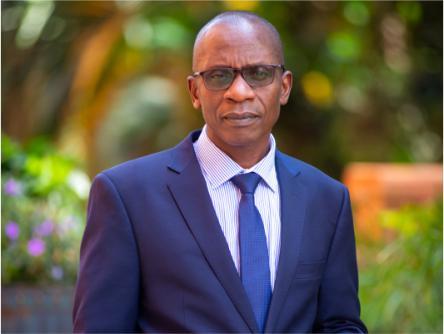

Corporate Governance
Expertise Auditing
Accounting Finance
Leadership and management
Governance
Risk management
Coaching and mentoring
Qualifications
Executive MBA - East and Southern Africa Management Institute
Member of the Chartered Institute of Marketing (CIM)
Member of the Chartered Institute of Public Relations (CIPR)
Bachelor of Commerce - Makerere University
Appointed December 2014
Tenure 8 years
Other Training
Global Executive Development Programme - Gordon Institute of Business Studies
CEO Apprenticeship Programme - Strathmore Business School and CEO Summit Uganda
International Module for the CEO apprenticeship programme - Gordon Institute of Business Studies
Executive Leadership Programme - Strathmore Business School
Leadership Development
Future Female Programme - Federation of Uganda Employers
Balanced Score Card professional Certification - Balanced Scorecard Institute
Reputation and Crisis Management
Strategic Brand Marketing - University of Cape Town
Training of Trainers UMI
Entrepreneurial Branch Operations World Savings Bank Foundation for International Co-operation
Corporate Governance - ICGU
Branch managers training - World Savings Bank Institute and Belgium Technical Cooperation
Expertise
Marketing management
Public relations
Corporate social responsibility
Product development
Research
Sales force management
Crisis management
Events management
Board Memberships
DFCU Group
CEO Apprenticeship
Mr. Geoffrey Waiswa Sajjabi
Chief Commercial Officer
ESG SUSTAINABILITY REPORT
NSSF - ESG SUSTAINABILITY REPORT - PAGE 95
Mr. Geofrey Barigye
Head of Internal Audit
Ms. Arimi Barbra Teddy Head of Marketing and Corporate Affairs
Appointed January 2015
Tenure 8 years
Qualifications
LLB (Hons) Nottingham Trent University, UK -(Third Year Student, Distance Learning).
CFA, USA - Charter Holder
Chartered Accountant of the UK - a Fellow
FCMI - Chartered Management Institute of the UK - a Fellow
CPA(U) - Certified Public Accountant of Uganda
Alumnus of the Harvard Business School (USA)
Aresty scholar of Wharton Executive Programme - University of Pennsylvania, USA

MBA in Finance - University of Exeter, UK
Master of Science (MSC) in International Finance and Investments - London Southbank University, UK
Bachelor of Science (Hons) Degree in Accounting - Oxford Brookes University, UK
Expertise Investment and portfolio management
Corporate and international finance
Risk management
Financial reporting and accounting
Taxation and audit
Strategy formation and execution
Leadership
Operations management
Financial economics
Project management
Compliance and governance
Research
Appointed August 2022
Tenure 1 years
Qualifications
Masters - Business Administration, USIU-Africa

Bachelor of Commerce Degree, Makerere University
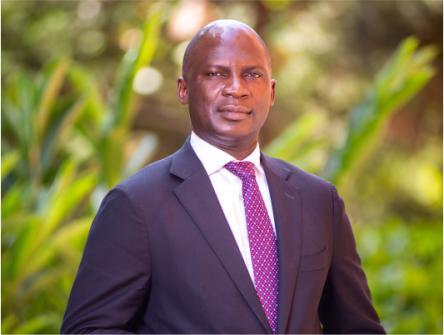
Balanced Scorecard Certified Specialist
Public Private Partnership Certified Specialist
Strategic Management and Performance Management Systems Certified Practitioner
Performance Measurement Process Certified Practitioner
Venture Development and Digital Transformation Certificate, University of Virgina
Leading Transformations - Managing Change, Macquarie University
Expertise Strategy development and performance management
Innovation management
Programme management Intrapreneurship
Venture building
Corporate finance Microfinance
Strategic leadership and change
Public sector reform
Qualifications Professional Executive Coach - Coach Masters Academy, Singapore
MBA - University of Leicester, UK
Bachelor of Social Sciences degree (Hons), Makerere University
Appointed February 2017
Tenure 6 years
Other Training
Global Business Leadership Certification - INSEAD, France
Expertise People leadership
Strategic talent management
Change management
Executive leadership development
Reward and compensation Executive coaching
Mr. Gerald Paul Kasaato
Chief Investment Officer
Mr. Alex Rumanyika Kalimugogo
Head of Strategy and Performance
Mr. Milton Steven Owor
Chief People and Culture Officer
INTRODUCTION | COMPANY PROFILE | SUSTAINABILITY STRATEGY AND GOALS | SUSTAINABILITY LEVERS | | FUTURE OUTLOOK AND GOALS GOVERNANCE AND ETHICS NSSF - ESG SUSTAINABILITY REPORT - PAGE 96
Principle 7: Composition of the board
Board Advisory NSSF-International Board Excellence Programme
3 – 6 October2022
World Social Security Forum Board andManagement Strategy Session
• Peter Kimbowa
• Annet Birungi
• Aggrey David Kibenge
• Lwabayi Mudiba Hassan
• Peninnah Tukamwesiga
• Sam Lyomoki
• Silver Mugisha
• Richard Byarugaba
• Peter Kimbowa
• Annet Mulindwa
• Patrick Ocailap
• Agnes T. Isharaza
• Allan Munabi
• Muhammad Kasumba
• Faith Achieng
• Richard Byarugaba
Board training and attendance
The programme was specifically designed to support the NSSF board of directors in the execution of their fiduciary responsibilities. Following the conclusion of the programme, Board Advisory designed a number of supporting interventions to assist the Board on its ongoing journey to Board Excellence. The key outcomes of the training were:
• Individual director coaching – 6 hours available per month.
• Board mentoring panel – once every quarter online.
• Board workshop – once every quarter in Uganda.
• The World Social Security Forum (WSSF) took place in Marrakech, Morocco from 24–28 October 2022, hosted by CDG Prévoyance.
• Organised by the International Social Security Association (ISSA) every three years, the Forum is the most important international event regarding social security.
• The WSSF highlighted the key role of social security for resilience and inclusive societies and gathered the global social security community to review reform strategies. In addition, it highlighted global institutional innovations towards sustainable, adequate, well-governed and accessible social security systems.
24 – 28 October2022
Advanced Auditing for Board Members of the National Social Security Fund, Uganda
17 October5 November, 2022
• Sam Lyomoki
• Peninnah Tukamwesiga
• Annet Birungi
• Lwabayi Mudiba Hassan
• The forum outcomes were enhanced by the launch of a new ISSA global report on priorities for social security, analysing social security strategies in the context of a new normal, rapid labour market transformations, demographic change and accelerated technological developments.
• 21st Century Internal Audit and the Advisory Role
• Establishment of an audit department, roles and scope

• Review of International Standards for the Professional Practice of Internal Auditing (ISPPIA)
• Code of ethics of internal auditors
• Performance audit
• Internal Audit Charter
• Information systems auditing and cybercrime
• Planning, conducting and review of an audit
• Risk based internal auditing
• Writing an effective internal audit report

• Assessing the performance of the audit department
• Servicing the Board of Directors' Audit Committee
• Understanding the role of an Audit Committee in a rapidly changing world
• Financial reporting oversight practices
Continuous professional development programme
As part of the Continuous Professional Development Programme, the Board members from time to time receive presentations from senior executives in the Fund on significant matters. The Fund also arranges appropriate regional branch visits and seminars covering the Fund's operations, the industry and governance matters for the Directors to facilitate their understanding of the Fund business and risks associated with the Fund’s operations.
The Board and Management also periodically meet to discuss the strategy of the Fund and how best it can be aligned to the needs of the members. Continuous development of the Board and Management remains a key area in a bid to improve corporate governance. This has enhanced the level of reporting by Management to the Board, thus strengthening leadership capability and focusing on strategic issues.
The Assurance Departments continue to work together to strengthen collaboration of the assurance functions in executing their assurance roles, but at the same time not impairing their independence.
Board/Management relationships
The Board appoints the Fund's senior management/Executive Committee. The Board is responsible for succession planning for key management roles. During the year, the Board considered and approved the contract renewal of senior managers.
The Board further reviewed the management composition and succession planning to ensure that the successors for key roles, including that of the MD and Deputy MD, are identified and their performance assessed.
NSSF - ESG SUSTAINABILITY REPORT - PAGE 97
ESG SUSTAINABILITY REPORT 5.
GOVERNANCE AND ETHICS
IV 7
Principle 8: Board Committee Oversight
King IV principles and our activities
Principle 8 – The governing body should ensure that its arrangements for delegation within its own structures promote independent judgement and assist with the balance of power and the effective discharge of its duties.
Board Committees
• The Fund's governance structure enables interaction between Management, members, and the Board.

Outcomes
Effective governance structures
• The Board conducts its base duties through four Committees. These Committees have delegated responsibility to assist in specific specialist matters on a collaborative basis and provide reports of their activities and recommendations to the Board on a quarterly basis or as often as is necessary.

• The Board has discussed and is yet to establish a Governance Committee to oversee succession planning of the Board and ESG issues.
The Board has four standing Committees: Staff Administration and Corporate Affairs Committee, Finance Committee, Investments and Project Monitoring Committee and the Audit and Risk Assurance Committee. Each Committee has formal and approved terms of reference stipulated in the Board Charter.

Staff Administration and Corporate Affairs (SACA)
Audit and Risk Assurance Committee (ARC)
Finance Committee
Investments and Project Monitoring Committee (IPMC)
The Committees' functions are for purposes of review, oversight, and monitoring. Their duties include investigating and analysing the relevant information and then reporting back with recommendations to enable the Board to make appropriate decisions.
The constitution, focus, activities, and outlook for each of the Board Committees are outlined below:
Audit and Risk Assurance Committee (ARC)


Members Chairperson
Annet Nakawunde Mulindwa
Annet Birungi Peninnah Tukamwesiga Sam Lyomoki
Professional Advisors
Albert Richards Otete
The Committee comprises only Non-Executive Directors and the MD only attends by invitation. The Head of Internal Audit reports directly into this Committee which ensures independence of the Internal Audit function. The Corporation Secretary is the secretary of the Committee, the Head of Enterprise Risk Management and Head of Internal Audit may attend meetings upon request as ex-officio members.
The Committee assists the Board to effectively discharge its oversight responsibilities for financial reporting, risk management, internal controls, internal and external audit, regulatory compliance, and governance.
The ARC, on behalf of the Board, undertakes detailed monitoring of internal controls through the Internal Audit function. The Board has reviewed the system of internal control, including financial controls, for the year under review up to the date of approval of this Integrated Report.
IV 8
NSSF - ESG SUSTAINABILITY REPORT - PAGE 98
INTRODUCTION | COMPANY PROFILE | SUSTAINABILITY STRATEGY AND GOALS | SUSTAINABILITY LEVERS | | FUTURE OUTLOOK AND GOALS GOVERNANCE AND ETHICS
FY 2022/2023 ARC activities
The Committee focused its attention on:
• Regulatory challenges, and trends of litigation.
• Information security and business continuity planning and management.
• Improvement of capabilities to identify and assess emerging risks.
ARC Committee's key activities in FY 2022/2023 included oversight, review, and approval of:
• The Quarterly reports of the Internal Audit, Enterprise Risk Management, Legal and Board Affairs departments.
• The external audit plan for FY 2022/23 and the related scope of work.
• The Internal Audit Annual Plan and BSC for FY2023/2024.
• The changes to the Information Security Management Policy.
• The Terms of Reference for the ARC Consultant.
• The financial statements, external audit report and management letter FY2022/2023.
Key focus areas for FY 2023/2024:
• Monitor compliance with all the internal and external policies and frameworks.
• Monitor progress with the implementation of recommendations of the internal and external audits.
• Enhance the scope of the Internal Audit function to make it more comprehensive.
• Embedding risk evaluation and profiling all projects to be undertaken.
• Enhance the independent position of the Enterprise Risk Management function.
• Enhance due diligence and accountability.
• Skills improvement of the Internal Audit team to align with the new trends and/or developments.
Key engagements and considerations:
• Engagements were held between the Chairperson of the ARC and the Head of Internal Audit in confidence to appraise him on audit matters.
• The ARC met with the external auditors (PwC) at the beginning of the audit and discussed the scope of their work, assessment of their independence, audit plan, findings, and recommendations of the previous audit.
• The Committee considered the issue of unallocated contributions as a significant finding by the External Auditors.
• The Fund consistently reviews all contributions and reconciles these positions on a daily basis. We continue to sensitise all our customers to use of the Transaction Reference Numbers for ease of identification and allocation of member Funds.
• The ARC ensures that the audit plan encompasses a review of the IT systems and the general IT controls that are relied on for financial reporting. No significant lapses were identified by the Auditors during their review.

Risk oversight
For details of our Risk and Opportunity Management refer to our Integrated Report page 64
Capital Impacted
Stakeholders Impacted
The Committee is satisfied that it has fulfilled its mandate as set out in the Committee’s terms of reference and work plan as required in the Board Charter during the period under review.
MARKET RISK –FOREIGN EXCHANGE GOVERNANCE RISK 5 COMPLIANCE & LITIGATION RISK 6 REPUTATION RISK 4 INFORMATION & CYBER SECURITY RISK 3 EQUITY RISK 2 FINANCIAL CRIME RISK 8 TECHNOLOGY FAILURE & SYSTEM DOWNTIME RISK 7 LIQUIDITY RISK 12 LIMITED PRODUCT RANGE RISK 9 HEALTH/SAFETY & OPERATIONAL RISK 11 10 TAXATION NSSF - ESG SUSTAINABILITY REPORT - PAGE 99 ESG SUSTAINABILITY REPORT 5. GOVERNANCE AND ETHICS
Investments and Project Monitoring Committee (IPMC)

The Investments and Project Monitoring Committee (IPMC) of the Board is responsible for assisting the Board to fulfil its oversight responsibility as provided under Section 30 of the NSSF Act as amended, which states:
“All monies in the Fund, including the reserve account, which are not for the time being required to be applied for the purpose of the Fund shall be invested in such investments as may be determined by the Board in consultation with the Minister.”
The main responsibilities of the Committee include:
• Providing a deeper understanding of investment activities to the Board.
• Reviewing, analysing and recommending all investment proposals to the Board for consideration.
• Recommending an investment strategy, policies, and guidelines to the Board for approval.
• Reviewing and recommending investments in equities, fixed income and real estate and the associated budgets to the Board.
• Reviewing and recommending investment design concepts and master plans to the Board or changes thereto.
• Reviewing performance of real estate projects, equities, and fixed income on a quarterly basis, in line with set targets and make recommendation to the Board.
• Reviewing the performance of the Fund Managers and make recommendations to the Board.
IPMC's key activities in FY2022/2023 included review, analyse, monitor, and recommend to the Board:
• The domestic and regional economic trends and their implications for the Fund's investment strategy.
• The quarterly update on the real estate projects.
• The off-taker project contract.
• The performance of the Board Consultants.
• The quarterly reports on investments implemented.
• The updates to the Investment Policy Statement (IPS) and Investments Manual.

• The proposed changes in real estate sales terms.
• The quarterly property management updates.
• The quarterly investment reports.
Capital Impacted
Challenges and key lessons learned during FY 2022/2023:

• Significant unrealised foreign exchange losses during year affecting the return on investments.
• Multiplicity of probes on Fund activities caused delays and/or disruptions to implementation of investments. In addition, the Fund could not initiate any new investment proposals during the investigations, some of which are still ongoing.
Key focus for the following year FY 2023/2024:
• Prioritise the delivery of the Unit Trust Model to respond to the expanded mandate to voluntary savings product under the amended NSSF Act.
• Explore the establishment of wealth management unit and make recommendations to the Board.
• Review the strategic asset allocation to include portfolio diversification to enhance returns and make recommendations to the Board.
• Actively pursue Private Public Partnerships. In addition, pursue partnerships with Government of Uganda especially through infrastructure bonds.
• Explore affordable housing options for the low-income segment of the population.
Stakeholders Impacted
The Investments and Project Monitoring Committee of the Board complied with its mandate for the year under review. All scheduled meetings were held.
Patrick Ocailap
Annet Birungi Silver Mugisha Lwabayi Mudiba Hassan
Patrick Ayota (since 02 December 2022) Richard Byarugaba (until 01 December 2022)
Kenneth Ssemwogerere Felix Okoboi
Members
Chairperson Professional Advisors
NSSF - ESG SUSTAINABILITY REPORT - PAGE 100 INTRODUCTION | COMPANY PROFILE | SUSTAINABILITY STRATEGY AND GOALS | SUSTAINABILITY LEVERS | | FUTURE OUTLOOK AND GOALS GOVERNANCE AND ETHICS
Finance Committee
Chairperson
Members
The role of the Finance Committee of the Board is to assist the Board to fulfil its oversight responsibility and mandate in the following key areas:
• Determination of the annual and supplementary budget which involves making and submitting to the Minister, for approval, estimates of the Fund's income, its capital recurrent, and other expenditures likely to be incurred for the ensuing year.
• Review and approval of the audited financial statements prepared by Management.
• Review provisions of proper books of accounts and records with respect to the Fund's financial transactions, assets, and liabilities.
• Recommendation of the interest rate for declaration depending on the Fund's realised income.
• Effective financial management of the Fund and its assets.
• Review of the Fund's accounting policies and principles.
• Reviews of allocated departmental policies and strategies.
• Oversee implementation of strategies and projects.
The Departments the Committee has oversight of are Finance, Commercial, Technology and Enterprise Solutions, and Procurement and Disposal.
The Finance Committee's key activities in FY 2022/2023 included review, monitoring, and recommendation of:
• The proposed interest for FY 2022/2023.
• The financial performance for the FY 2022/23 NSSF Budget and proposed Budget for the FY 2023/2023.
• The strategic targets for the Fund and alignment of performance measurements.
• The assurance of the integrity of the financial statements and other information to ensure that they represent a clear and accurate assessment of the Fund's position and performance.

• The Fund's procurement contracts.
• Quarterly departmental updates.
• The Commercial Department's policy update in line with amendment of the NSSF Act Cap 222 (amended).
Challenges and key learnings for FY 2022/2023:
• Multiplicity of investigations into the affairs of the Fund's caused several disruptions.
• Significant unrealised foreign exchange (FX) losses during the year.
Learnings
• Following the investigations, the Committee learnt that extra care should be taken when exercising their oversight function.
• The Committee also reassured Management of the Board's full support as long as they act prudently, in good faith, and with due care in executing their mandate.
• The Committee has embarked on conducting a prompt post investment risk analysis.
Key focus for the following year FY 2023/2024:
• New opportunities to increase coverage of the Fund due to the amendment of the NSSF Act.
• New regulations and policy amendments to enable implementation of the amended law.
• Improving of productivity and efficiency through technology enhancement.

• Budget monitoring and compliance.

• Overseeing management of collaborative partnerships to ensure value for the members.
Capital Impacted
Stakeholders Impacted
The Finance Committee of the Board complied with its mandate for the year under review, and all the scheduled meetings were held.
Silver Mugisha
Patrick Ocailap Aggrey David Kibenge Lwabayi Mudiba Hassan
Patrick Ayota (since 02 December 2022) Richard Byarugaba (until 01 December 2022)
NSSF - ESG SUSTAINABILITY REPORT - PAGE 101 ESG SUSTAINABILITY REPORT 5. GOVERNANCE AND
ETHICS
Staff Administration and Corporate Affairs Committee (SACA)
Chairperson
Members
Patrick Ayota (since 02 December 2022) Richard Byarugaba (until 01 December 2022)
The SACA of the Board is responsible for the following key areas:
• Overseeing the effective and efficient administration and management of the Fund by establishing appropriate policies regarding staff, administration, and corporate affairs.

• Reviewing and recommending an appropriate organisational structure and staff establishment to ensure that it is resourced by competent and well-motivated staff to execute strategy.
• Overseeing the management of corporate services such as marketing, public relations, transport, and records.

During the FY2022/2023, SACA held meetings where they considered several activities for recommendation to the Board.
SACA Committee's key activities in FY 2022/2023 included the following:
• Handle transition - contract approval of MD, DMD and Senior Managers.
• Interviews for the Head of Strategy (EXCO) - new position.
• Salary reviews, staff appraisal and performance bonus recommendations.
• Monitoring organisational redesign to ensure harmony.
• Approval of the human resources policies manual and other policies.
• Reviewed the balanced scorecard (BSC).
• Monitoring staff wellbeing and equity.
• Improve and harmonise gender inclusion at the Fund.
• Talent management and reskilling of staff.
• Monitoring and supervision of the Fund’s communication policies.
• Supervision of the literacy campaigns.
• Monitoring staff and customer satisfaction.
• Monitoring performance of the brand of the Fund.
• Budget reviews (before submission to the Finance Committee).
• Held the Annual Members Meeting.
Capital Impacted
Challenges during FY 2022/2023:
• Anxiety among staff and stakeholders because of the organisational redesign.
• Transition challenges.
• Negative tonality because of unfulfilled expectations with regards to midterm access for unqualifying members.
• Multiplicity of investigations of the Fund by various statutory agencies.
Key focus for the following year FY 2023/2024:
• Agile organisation with a clear and shared purpose.
• Improve rewards and benefits for staff.
• Aggressive stakeholder management.
• Gender diversity at management and mid management level.
• Improve staff wellbeing.
• Monitor and oversee organisational structural changes.
• Completion of upskilling of staff.
• Oversight of talent management and retention.
Stakeholders Impacted
The Staff Administration and Corporate Affairs Committee of the Board complied with its mandate for the year under review. All the scheduled meetings were held.
Sam Lyomoki Peninnah Tukamwesiga
Annet Nakawunde Mulindwa Aggrey David Kibenge
NSSF - ESG SUSTAINABILITY REPORT - PAGE 102 INTRODUCTION | COMPANY PROFILE | SUSTAINABILITY STRATEGY AND GOALS | SUSTAINABILITY LEVERS | | FUTURE OUTLOOK AND GOALS GOVERNANCE AND ETHICS
Consideration of additional Board Committees in FY 2023
In aligning to King IV principles, the Fund considered the formalisation of an Environmental, Social and Governance (ESG) Committee during the reporting period, however, it is confident that the current governance structures have sufficient oversight of the following responsibilities:
Responsibilities
Social and economic development

• Anti-corruption and bribery
NSSF Board Committee oversight
Staff and Corporate Affairs Committee
• Staff wellness
• Human rights
• Promotion of equality
• Anti-money laundering
• Monitoring of reported ethics cases and investigations
Environment
• Responsible consumption
• Impact of Fund operations on the environment
• Impact of investee companies on the environment
Stakeholder engagement and management
• Relationships with key stakeholders both internal and external
Sustainability and community development
• Development of communities through CSI activities
Audit and Risk Assurance Committee
Audit and Risk Assurance Committee Ethics
Investments and Project Monitoring Committee
Staff and Corporate Affairs Committee
Staff and Corporate Affairs Committee
Board and Board Committee meeting attendance
The Chairman shall preside at all meetings of the Board, but in his absence any member appointed on his behalf by the members present shall preside. The Board shall meet for the discharge of its functions at least once every three months at such time and place as the Chairman may appoint or upon the request of a majority of the Board members.
Decisions of the Board shall be taken by a simple majority of the members present and voting, with the person presiding having a casting vote.
Section 5 (5) NSSF of the Act empowers the Board to invite or co-opt any person to attend any Board meeting or be consulted as an independent advisor, but such a person shall not vote on any matter being decided by the Board at that meeting. The Board shall determine the area or field where professional advice is required. Management follows the PPDA rules and regulations to engage the advisors so required. Management therefore co-opted the services of Engineer Kenneth Ssemwogerere and Mr. Felilx Okoboi as Investment and Project Monitoring Committee Advisors together with Mr. Albert Richards Otete as the Audit and Risk Assurance Committee Advisor.
NSSF - ESG SUSTAINABILITY REPORT - PAGE 103 ESG SUSTAINABILITY REPORT 5. GOVERNANCE
AND ETHICS
and Project Monitoring Committee (IPMC)
NOTE: Following the end of the contract of Mr. Richard Byarugaba as Managing Director on 01 December 2022, the Deputy Managing Director, Patrick Ayota, was appointed as caretaker of the office until the process for the appointment of the Managing Director was concluded. He attended the Committee meetings and full Board meetings in that capacity.
The Board held three Non-Executive Board member meetings on 1 December 2022, 17 January 2022 and 16 March 2023 to independently consider Board matters pertinent to the Fund and consideration of the appointment of the Managing Director independently.
Principle 9: Evaluation and performance of the Board
King IV principles and our activities
Principle 9 – The governing body should ensure that the evaluation of its own performance and that of its Committees, its chair, and its individual members, supports continued improvement in its performance and effectiveness.
Board evaluations
Outcomes
Effective governance structures
• Performance evaluation of the Board to assess effectiveness is conducted annually and recommendations are discussed and implemented in the subsequent year.
Board Committees
The Board is committed to continuous improvement and evaluates its performance. The Charter stipulates that the Board of Directors will conduct evaluations to determine whether the Board and its Committees are functioning effectively in terms of discharging their mandate as per the Board Charter and in line with leading practices on corporate governance. The Board evaluates its performance through a combination of both internal peer and external facilitated assessments.
In the year of review, the Board concentrated on implementing the recommendations of the external facilitator done in the previous year and engaged in performance reviews that were conducted by the Board Chairperson and Committee Chairpersons. The Board reviewed the recommendations of the past evaluation and embarked on implementing the following initiatives to address the areas of improvement:
Areas for improvement
Gender balance and diversity
Succession planning
Channels for staff to obtain assistance with ethics issues
• The Board was reconstituted to strengthen its gender balance and diversity, covering varying competencies. The Board currently has three female members on the Board, and this will also be reflected at all levels to ensure gender parity.
• The Board identified suitable replacements for the positions of Managing Director and Deputy Managing Director which have since been implemented.
• Following a recommendation to improvise channels for employees to engage the Board on ethical issues, channels have been created through which employees can engage with the Board on ethical issues:
- An external firm was onboarded to create an ethics hotline through which anonymous reports on unethical behaviour can be reported without fear of victimisation.
- Continuous regional branch visits by the Board and EXCO to promote their interaction with staff as well as obtain feedback from members.
Directors Board Audit and Risk Committee (ARC) Finance Committee Staff and Corporate Affairs Committee (SACA) Name Peter Kimbowa 8/9 89% N/A – N/A – N/A – N/A –Patrick Ocailap 7/9 78% 4/4 100% N/A – 3/4 75% N/A –Aggrey Kibenge 8/9 89% N/A – N/A – 4/4 100% 6/6 100% Silver Mugisha 8/9 89% 4/4 100% N/A – 4/4 100% N/A –Sam Lyomoki 9/9 100% N/A – 4/4 100% N/A 6/6 100% Annet Birungi 9/9 100% 4/4 100% 4/4 100% N/A N/A –Peninnah Tukamwesiga 9/9 100% N/A – 4/4 100% N/A – 6/6 100% Annet Nakawunde Mulindwa 7/9 78% N/A – 4/4 100% N/A – 6/6 100% Lwabayi Hassan Mudiba 9/9 100% 4/4 100% N/A – 4/4 100% N/A –Richard Byarugaba 3/3 100% 1/1 100% N/A – 1/1 100% 1/1 100% Patrick Ayota 3/3 100% 3/3 100% N/A - 3/3 100% 4/4 100% Overall attendance rate 93% 100% 100% 96% 100%
Number of meetings Attendance rate Number of meetings Attendance rate Number of meetings Attendance rate Number of meetings Attendance rate Number of meetings Attendance rate ––
Investment
IV 9
NSSF - ESG SUSTAINABILITY REPORT - PAGE 104 INTRODUCTION | COMPANY PROFILE | SUSTAINABILITY STRATEGY AND GOALS | SUSTAINABILITY LEVERS | | FUTURE OUTLOOK AND GOALS GOVERNANCE AND ETHICS
Principle 10: Appointment and Delegation to Management
King IV principles and our activities
Principle 10 – The governing body should ensure that the appointment of, and delegation to, Management contribute to role clarity and the effective exercise of authority and responsibilities.
Governance structure
Outcomes
Effective governance structures
The Fund's governance structure is illustrated in the NSSF Governance Structure diagram and shows the interaction between the members and the Board, demonstrating how the Board Committee structure facilitates the relationship between the Board and the MD and indicates the flow of delegation from members. We have robust processes in place to ensure that the delegation flows through the Board and its Committees to the MD and EXCO into the organisation. At the same time, accountability flows upwards from the Fund to its members. This process helps to ensure alignment and open communication with our members and all our stakeholders.
Appointment and delegation to Management
• Management, led by the MD, have the authority to manage and control the day-to-day affairs of the Fund in relation to matters other than those reserved for the Board.
• We have robust processes in place to ensure that the delegation flows through the Board and its Committees to the MD and EXCO into the organisation. At the same time, accountability flows upwards from the Fund to its members. This process helps to ensure alignment and open communication with our members and all our stakeholders.
Board Chairman
The Chairman, Dr. Peter Kimbowa, is an Independent Non-Executive Director and was appointed on 1 September 2021.
The Chairman's role includes:
• Leading the Board and ensuring overall effectiveness, operating to the highest governance standards.
• Encouraging a culture of openness and debate to foster a high-performing and collegial team.
• Ensuring strategic issues, members and the relevant stakeholder views are regularly reviewed, understood, and responded to.
• Facilitating the relationship between the Board and the MD and providing oversight, guidance, advice, and leadership.
• Ensuring control over the quality and timeliness of information flow between the Board and Management.
• Setting agendas for meetings of the Board that focus on the strategic direction and performance of the Fund's business.
• Ensuring that adequate time is available for discussion on all agenda items.
• Leading the Board and individual Director Performance Assessments.
• Speaking and acting for the Board and representing the Board to members.
Managing Director
The MD is the Chief Executive Officer of the Fund and is subject to the NSSF Act (amended) and to the general control of the Board on matters of policy, responsibility for running the day-to-day business of the Fund, general management, administration, and organisation of the Fund. He also ensures the strategies and policies set by the Board are implemented. The MD, Patrick Ayota, is the only Executive Director (ex officio member) on the Board and has been a Board member since December 2022.
Corporation Secretary
The Corporation Secretary, Ms. Agnes Tibayeita Isharaza was appointed by the Minister of Finance, Planning and Economic Development in line with Section 41 of the NSSF Act and has been in the role since 1 April 2019. In addition to any other functions conferred upon her by the Minister and the Board, the Corporation Secretary has the custody of the seal of the Fund and is responsible for:
• Ensuring crucial information flows within the Board and its Board Committees and between Management and the Board.
• Facilitating the orientation and professional development required by the Board.
• Taking minutes of the meetings of the Board and any of its Committees and Subcommittees.
• Keeping the records of all transactions of the Fund.
• The provision of legal advice on all Fund activities.
• Advising the Board on all governance matters.
• Keeping the Board aware of relevant changes in legislation and corporate governance best practice.
As of 1 July 2022, the title of the Corporation Secretary changed to Chief Legal Officer/Corporation Secretary. Responsibilities and accountabilities remain the same.
10
IV
NSSF - ESG SUSTAINABILITY REPORT - PAGE 105 ESG SUSTAINABILITY REPORT 5. GOVERNANCE
AND ETHICS
Principles 11–13: Governance of Functional Areas
King IV principles and our activities
Principle 11 – The governing body should govern risk in a way that supports the organisation in setting and achieving strategic objectives.
Principle 12 – The governing body should govern technology and information in a way that supports the organisation in setting and achieving its strategic objectives.
Principle 13 – The governing body should govern compliance with applicable laws and adopted, non-binding rules, codes and standards in a way that supports the organisation in being ethical and a good corporate citizen.
Risk governance
• The Board of trustees is mandated to ensure good corporate governance and effective risk management in the Fund. The Board exercises this mandate through its Committees which include the IPMC. Finance Committee, SACA, and the ARC, which oversees risk management and the integrity of financial reporting.
• Through the ongoing materiality determination process, material matters, and emerging risks are identified which could significantly impact the Fund's business model and ability to deliver value in the short-, medium- and long-term.
Read more about our Risk and Opportunity Management on page 64 - in our Integrated Report
Technology and information governance
• As part of the Board Charter, the Board has oversight of the Information and Technology Policy, systems, and strategies. The Finance Committee is mandated to assist the Board in fulfilling its oversight responsibility for technology governance.
• With the accelerated digitalisation strategy and ongoing quest to improve efficiency of operational processes and communication through automation and use of digital platforms, the Fund has invested heavily in information security.
• The Fund has implemented the Pension Administration System (OctoPAS).
Compliance governance
• The Fund is committed to complying with all the relevant legislation, especially prudential regulation.
• The Board oversees compliance with legislation, regulations, and codes of best practice governing the retirement benefits sector through the ARC.
• The Board has established policies and processes to guide legal compliance and delivery of services.
See page 106 for the Regulators Report - in our Integrated Report
Summary of the arrangements for governing risk and opportunities, technology, information, and compliance
• The ARC assumes responsibility for the governance of risk and opportunity management and compliance.
• ARC, on behalf of the Board, ensures oversight over the governance of risk by setting the direction for how the Fund's risk and opportunity management should be approached and addressed.
• Risk appetite dashboard includes both risks and opportunities and is set to ensure that the company achieves its strategic and financial objectives.
• Enterprise-wide Risk Management Framework and policy.
• Combined Assurance Model.
• A Board approved Compliance Management Policy and Manual.
• Compliance monitoring.
• The Finance Committee assumes responsibility for technology and information governance.
• Formalised IT governance strategy.
• IT Governance Framework.
• IT governance audits.
Desired Outcome
Adequate and effective controls through risk, technology and information, compliance, and assurance governance.
Risk governance
• Risk management is regarded as an integral part of business activities.
• Effective risk management protects and creates value for the Fund in identifying both risks and opportunities.
• Cyber Security and Information security risk is an integral part of the business.
• To achieve effective risk management, and a robust control environment, the three lines of defence model is a key component to ensure a clear separation of roles between risk-taking functions and risk-control functions.
Technology and information governance
• Appropriate preventative, detective, and corrective controls have been implemented, and the strength of the security infrastructure is continuously evaluated through penetration tests and vulnerability assessments.
• Uninterrupted IT services and system stability.
Compliance governance
• The Fund continuously monitors the status of regulatory relationships to enhance proactive engagement across key regulatory changes and areas of focus.
• Highest standards of sound governance, including transparency, accountability and fairness to its members, the Regulators, and all our stakeholders.
• Management continuously monitors its compliance with the key regulations through its quarterly reports to the Board.

Key areas of focus during the reporting period
• ARC
• Finance Committee
Measures taken to monitor risk and opportunity management, technology, information, and compliance and how the outcomes were addressed
• Independent assessment of top risks on a regular basis by the Board.
• Oversight of the Strategic Risk Register.
• The Board oversees implementation of Strategic Projects.
• The Board receives summary reports from the ARC and Finance Committee.
• The Board monitors key legislative and regulatory obligations and Fund compliance thereof.
Planned areas of future focus
• ARC focus 2024
• Finance Committee focus 2024
IV
11 12 13 NSSF - ESG SUSTAINABILITY REPORT - PAGE 106
IV IV
INTRODUCTION | COMPANY PROFILE | SUSTAINABILITY STRATEGY AND GOALS | SUSTAINABILITY LEVERS | | FUTURE OUTLOOK AND GOALS GOVERNANCE AND ETHICS
Principle 14: Remuneration Governance
King IV principles and our activities
Principle 14 – The governing body should ensure that the organisation remunerates fairly, responsibly, and transparently to promote the achievement of strategic objectives and positive outcomes in the short-, medium- and long-term.

The Board, through the Staff Administration and Corporate Affairs Committee has established human resource policies governing the terms and conditions of employment, remuneration, training, promotions, discipline, and other benefits which are fair and will attract, motivate, and retain high calibre staff. For more details see our Remuneration Report.
Desired Outcome
Governance of fair, responsible, and transparent remuneration.
• The reward and remuneration structures are linked to KPIs defined under each strategic objective, ensuring performance is linked to business performance as well as individual performance, thereby promoting a high-performance culture and achievement of strategy.
• Sustainable reward is carried out responsibly and the Fund's reward framework is flexible to meet the changing needs of both the business and economy.
Summary of the arrangements for governing remuneration
Remuneration and Employment Policy.
Non-Executive Director Remuneration Policy.
A SACA to ensure fair, responsible, and transparent remuneration practices. Quarterly remuneration reporting to SACA.
Remuneration benchmarking.
Key areas of focus during the reporting period SACA
Remuneration Report
Measures taken to monitor remuneration and how the outcomes were addressed
• Board receives summary reports from SACA.
• The Board approves business targets at the beginning of every financial year and reviews the results at the end of the year before making a final decision regarding payment of any incentives.
Planned areas of future focus
SACA focus 2024
The Board of Directors is committed to retaining the talented Executives and employees while ensuring that their stay at the Fund is wholesome in accordance with best market practices.
Fair and responsible remuneration
The Fund conducts salary surveys to keep abreast of the market compensation trends. This commitment ensures that our remuneration practices are both equitable and in harmony with prevailing market and regulatory standards.
Beyond just compensation, the Fund is deeply committed to empowering our lower-income employees. We provide them with tailored benefits designed to enhance their skills and potential. Over time, this not only boosts their earning capacity, but also propels their career trajectories. We offer an extensive array of development opportunities through our diverse training platforms. Additionally, the Fund actively supports and encourages employees to pursue degree programmes and professional qualifications that both augment our business and foster their personal growth.
Remuneration structure
The Fund's compensation framework is intricately tied to our strategic objectives, forging a direct connection between remuneration, and both individual and business performance. This design fosters a culture of excellence and drives the realisation of our strategy.
Our approach aims to not only attract and retain the industry's best talent, but also to motivate and acknowledge their contribution to the Fund's performance. Annual remuneration surveys are conducted by the Fund to remain competitive in the market, factoring in our performance against established goals. Such meticulous planning ensures we consistently attract and retain the top-tier talent essential for achieving the Fund's objectives.

IV
14
NSSF - ESG SUSTAINABILITY REPORT - PAGE 107
ESG SUSTAINABILITY REPORT 5. GOVERNANCE AND ETHICS
to our
Refer
Remuneration Report Below
The Fund's Remuneration Policy at a glance:
Reward objectives
Reward principles
Attract Competitive
• Enable the Fund to recruit the right people
• We assess competitiveness on a total reward basis
• Reward reflects an individual’s role, experience, performance, and contribution to the strategy of the Fund
• Reward is set with reference to external market practice and internal relativity
Motivate Simple
• Incentivise and improve morale of employees to deliver and execute the Fund’s strategy
• Reward is simple, clear, and easy to understand and aligned to the individual’s balanced scorecard targets
• The Fund avoids unnecessary complexity
• Reward is delivered accurately
Recognise Fair
• Acknowledge individual contribution and performance
• Create member value and support the achievement of business strategy
• Policies are transparent and applied consistently and equitably
• Reward decisions are trusted and properlygoverned
• Reward is legal and compliant
Retain Sustainable
• Foster loyalty in the Fund
• Retain exceptional performing employees
• Our reward framework is flexible to meet the changing needs of the business and the economy
• We reward in a responsible way
The Fund's pay structure may include any or all the following: fixed pay, performance-based increments, and variable pay.
Fixed pay
The Fund has developed a fixed pay range that is linked to an approved grading system. This is aimed at ensuring that remuneration is fair, competitive and there is internal equity and consistency within the Fund.
Performance based increments
Performance based increment (PBI) is a method of remuneration used by the Fund to ensure appropriate reward for performance. It links pay progression to an assessment of individual performance usually measured against pre-agreed objectives. Pay increases awarded through PBI are normally consolidated into basic pay. The increments are based on the appraisal results for the year, the positioning of everyone in the pay grades, as well as the pay increment budget for the year. The PBI increases with performance and decreases as one's pay moves towards the maximum of the grade, as shown below:
PERFORMANCE RATING POSITION IN RANGE Q1 Q2 Q3 Q4 ABOVE MAX A+ 10.11% 6.74% 3.37% 2.70% 0.00% A 6.74% 4.49% 2.25% 1.80% 0.00% B 3.37% 2.25% 1.12% 0.90% 0.00% C 0.00% 0.00% D 0.00% 0.00% 0.00% 0.00% 0.00% 0.00% 0.00% 0.00% INTRODUCTION | COMPANY PROFILE | SUSTAINABILITY STRATEGY AND GOALS | SUSTAINABILITY LEVERS | | FUTURE OUTLOOK AND GOALS GOVERNANCE AND ETHICS NSSF - ESG SUSTAINABILITY REPORT - PAGE 108
Variable pay
The Fund also has annual incentives in the form of bonuses paid to qualifying staff. Bonus pay is a onetime lump-sum payment, and the objective is to recognise and reward employee's contributions, retain exceptional and very good performers, motivate staff, and increase productivity. Individual employee bonus awards are based on agreed and reviewed performance, and the overall contribution to the Funds' results for the year in review.
Benefits
The Fund provides benefits in line with best market practice and regulatory requirements. Medical insurance cover and death benefits are provided to all Fund employees and their dependents. A retirement benefit scheme called the “Staff Provident Fund” is provided to all permanent employees and an “Annual Service Award” is provided to temporary staff. A “Gratuity Scheme” is provided for the Executive Committee (EXCO). These are aimed at motivating and preparing for retirement.
Recognition policy
The Fund recognises and rewards individuals and groups of employees who:
• Make an exceptional (sustained or one-off) contribution that promotes the aims and objectives of the Fund or
• Meet exceptional shorter-term operational challenges.
The award(s) can be given to a “Group” or an “Individual” and is(are) both financial and non-financial.
Long service incentive
Although service may not necessarily automatically contribute to performance, the Fund does value the commitment and loyalty of long serving employees. This is done in the form of long service awards. These awards recognise long service from 10 years, and then continue this acknowledgement with awards every 5 years thereafter.
Remuneration of Executive Management
The Board sets targets and objectives for the entire Fund at the beginning of the financial year in line with the strategy of the Fund. These targets and objectives cascade down to the Managing Director who then approves the performance measure and targets for each Executive Committee member.

Performance against the individual objectives is monitored through a performance appraisal system which is moderated by the Staff Administration and Corporate Affairs Committee and thereafter presented to the full board for approval.
The remuneration package and long-term incentive for the Managing Director and Deputy Managing Director are determined on the same basis and using the same qualifying criteria as for other employees. The appointee's remuneration is subject to an annual performance review. These packages are approved by the appointing authority, the Ministry of Gender, Labour, and Social Development.
Annual single total figure of remuneration:
Top Management Salary (Millions) Benefits (Millions) Bonus (Millions) Pension (Millions) Gratuity (Millions) Managing Director 385 74 264 83 181 Deputy Managing Director 788 157 241 122 150 ESG SUSTAINABILITY REPORT 5. GOVERNANCE AND ETHICS NSSF - ESG SUSTAINABILITY REPORT - PAGE 109
Non-executive directors' remuneration and terms of engagement
Terms of service
All non-executive directors are provided with a letter of appointment setting out their remuneration. Directors are appointed by the Ministry of Gender, Labour, and Social Development for a three-year term, renewable once.
Fees
Non-executive directors receive a retainer for their service on the Board and a meeting attendance fee for Board and Board Committee meetings. Fees are paid monthly in arrears. There are no contractual arrangements for compensation for loss of office. Executive director(s) do not receive any retainer or meeting attendance fee. In determining the remuneration of non-executive directors, the Board considers the extent and nature of their responsibilities, and comparative remuneration offered by other major entities of a similar nature.
Principle 15: Assurance
King IV principles and our activities
Principle 15 – The governing body should ensure that assurance services and functions enable an effective control environment, and that these support the integrity of information for internal decision-making and of the organisation's external reports.
Desired Outcome
Assurance on the effectiveness of internal controls and integrity of information for internal decision-making and external reporting purposes.
Internal Audit
• IA supports the Board and Management to execute their mandate by providing independent objective assurance of the Fund's operations.
• Technology has been leveraged to incorporate data consistency and integrity, stronger collaboration among functions, concise information, and real-time visibility to help identify key areas of focus and opportunities to create and protect strategic business value.


Combined assurance
• The three lines of defence play a complementary role to each other:
- Enterprise Risk Management, Legal and Internal Audit, work collaboratively to provide combined assurance on risk, compliance, and internal controls.
External Auditors
• The ARC reviews the external audit plan with the External Auditor and discusses their approach, nature and scope of work, audit and reporting obligations before the audit commences.
• In addition, the ARC oversees the relationship between the Internal and External Auditors and ensures that the external audit is coordinated with the internal audit programmes.
Head of Audit write-up
• Assurance that governance structures remain appropriate and functional for the Fund.
• Assurance is provided on financial and non-financial information.
• Key components of the integrated report, such as governance, risk management and controls are assured.
• Accountability is clear within the three lines of defence model, with assurance providers working together to provide coordinated assurance. (The coordination with assurance providers does not impair the independence of: Internal Audit).
• Combined assurance ensures that there is comprehensiveness in terms of coverage, and avoidance of duplication.
IV
15
INTRODUCTION | COMPANY PROFILE | SUSTAINABILITY STRATEGY AND GOALS | SUSTAINABILITY LEVERS | | FUTURE OUTLOOK AND GOALS GOVERNANCE AND ETHICS NSSF - ESG SUSTAINABILITY REPORT - PAGE 110
Summary of 2022/2023 Board emoluments

Board Chairman Annual retainer 153,786,000 Fee per sitting 3,600,000 Director Annual retainer 121,410,000 Fee per sitting 1,528,000 Board committee Member (Fee per sitting) 1,350,000
The Fund's remuneration structure:
Directors' fees (Ushs)
Category of Directors Board retainer fees and Board sitting allowance Other benefits Total Year Non -Executive 890,189,600 62,914,860 1,535,646,626 2020 1,087,371,400 38,649,150 1,126,020,55 2021 1,062,602,200 47,653,617 1,527,369,337 2022 1,451,145,000 30,115,260 1,481,260,260 2023 Non -Executive Non -Executive Non -Executive Pension contributions 582,542,166 417,113,520 No additional benefits paid No additional benefits paid ESG SUSTAINABILITY REPORT 5. GOVERNANCE AND ETHICS NSSF - ESG SUSTAINABILITY REPORT - PAGE 111
Summary of the arrangements for governing assurance
Well embedded Combined Assurance Model.
Audit Committee oversees assurance:
• Assurance plans (internal and external audits).
• Results of assurance reviews/audits.
• Implementation of agreed remedial actions.
Quarterly assurance reporting to the ARC.
Key areas of focus during the reporting period

ARC
Measures taken to monitor assurance and how the outcomes were addressed
• Considered results of internal and external assurance provider reports.
• Oversee the implementation of agreed remedial actions for improvements required in the internal control environment (processes and systems etc.).
• Auditors report in the Annual Financial Statements.
Assurance provided on the 2023 Integrated Report
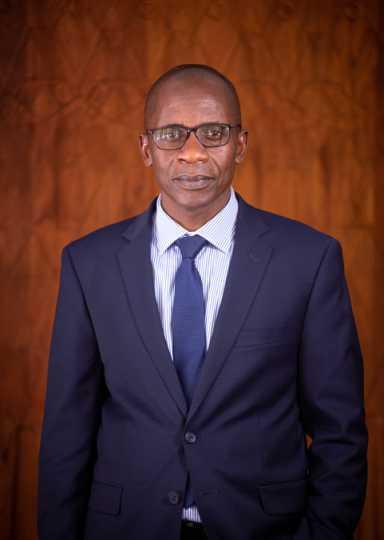
Planned areas of future focus
ARC focus 2024
Building Resilience for Inclusive Prosperity – The Internal Audit Perspective
The Mandate of Internal Audit
Internal Audit (IA) supports the Board and Management to execute their mandate by providing independent and objective assurance, thereby protecting and creating value for a better life.
IA provides an independent, objective, and continuous evaluation of the Fund's operations and system of internal controls. The function reviews, appraises and reports on:

a) The effectiveness and adequacy of internal controls, risk management and governance processes; and
b) The reliability of financial and other management information.
The IA Charter approved by the Board of Directors, provides the framework that guides activities, purpose, authority, and responsibility of the IA function.
IA reports functionally to the Board and administratively to the Managing Director.

The annual risk-based IA audit plan and budget are developed in consultation with Management and approved by the Audit and Risk Assurance Committee of the Board (ARC).
Issues raised in various audit assignments, are reported to both Management for remediation and to the ARC for oversight. IA makes value adding recommendations to Management and all remedial actions are followed up to completion and independently validated.
Building Resilience for Internal Audit
During this time of unparalleled change, it is more important than ever that IA continues to provide assurance and advise both Management and the Board on internal controls and risk. Managing change and developing resilience has consequently become an important topic for IA function at the Fund.
Subsequently, the IA team has embraced continuous risk assessment, exploratory analytics, automated controls testing, and agile methods as a way of decreasing costs and adding advisory value in the environment.
In the long-term, we recognise that a deeper digital transformation is a requirement. New digital tools and automation technologies are creating a world in which remote internal auditing does not mean compromised quality or plan reductions. Instead, it implies a higher level of functioning.
Mr. Geofrey Barigye
NSSF - ESG SUSTAINABILITY REPORT - PAGE 112 INTRODUCTION | COMPANY PROFILE | SUSTAINABILITY STRATEGY AND GOALS | SUSTAINABILITY LEVERS | | FUTURE OUTLOOK AND GOALS GOVERNANCE AND ETHICS
1. Revisiting the risk assessment methodology
As the Fund adjusts its operations to cope with the impact of changes, we reprioritize and reassess our audit plans and revisit the risk assessment methodology to respond to the changing landscape.
This includes dialogue and collaboration with key stakeholders to identify emerging, shifting or net-new risks and determining how to work with the business most effectively in planning mitigation strategies.
Key emerging risk areas or those that may be significantly altered include:
Economic and geopolitical uncertainty
Regulatory driven risk
Operational resilience (including business continuity and crisis response)
Third-Party relationship and supply chain
Hybrid working: organisational culture and behaviour
Talent management and retention
Climate change and sustainability
ESG reporting
Cyber security and data privacy
Digital disruptions and new technologies
Considering the dynamic environment at the Fund, IA has embraced a dynamic risk assessment which refers to the continuous monitoring of business operations, functions and processes enabled by automation.
The dynamic risk assessment has so far helped us to:
i) Generate new insights to inform risk professionals as well as new alternatives on how to respond.
ii) Eliminate audit approaches that are manual, fragmented, often unrepeatable, or largely based upon gut instinct and replaces them with repeatable, standardised tools and methods.
iii) Transform the audit-planning process and annual risk assessment by enabling continuous risk monitoring and adjustment to the audit plan.
NSSF - ESG SUSTAINABILITY REPORT - PAGE 113
ESG SUSTAINABILITY REPORT 5. GOVERNANCE AND ETHICS
2. Refreshing and re-assessing current IA plans
We have reprioritised the audit plan as soon as possible to provide assurance over the most consequential risks while being cognisant of the impact on operations. This includes determining which audits can be performed remotely versus those that absolutely require an in-person presence.
From an assurance perspective, we have also considered how operational changes will affect the audit timeline. For instance, process owners may need to move their controls to a virtual environment, which takes time.

3. Defining collaboration tools for audit execution
By utilising tools that enable collaboration and establishing mutually agreed upon protocols, IA has efficiently worked with process owners to gather, and review requested documentation in a remote environment.
4. Identifying and exploring opportunities for digital analytics and continuous monitoring capabilities
As our audit team members find themselves working remotely, the value of exception-based monitoring and analytics-driven process analysis is becoming readily apparent. The IA department has developed capabilities for the audit team to demonstrate greater resiliency and flexibility in the dynamic environment and the team provides inspiration for others to continue their digital journeys.
5. Re-defining reporting and communication model
As the IA mindset shifts towards a virtual operating model, it is imperative that its communication strategies shift as well. We are therefore reviewing our frameworks to modify the frequency and means of communicating with our key stakeholders. To remain resilient and relevant, the audit team will continue to focus on the key risks and provide assurance where it is most needed by the key stakeholders.
Consequently, the IA team is:
a) Performing the same audit cheaper. For example, connecting the auditor directly to the process, through exploratory analytics and data visualization, drives a more focused audit, while still testing 100% of the population.
b) Performing better audits. For example, combining data from inside and outside the Fund adds new richness and granularity to insights and understanding of risk. Benchmarks, comparative analysis, and trending enhance on-the-job learning and development while delivering a more impactful result to business stakeholders.
Quality Assurance and Improvement Program (QAIP) and Performance Monitoring
The implementation of a QAIP is to ensure conformance with the definition of IA, the Code of Ethics for internal auditors and the Auditing Standards.
Internal assessments include a comprehensive ongoing and periodic monitoring. The programme incorporates quality assurance processes in the stages of planning, engagement, and reporting.
Annually, the function conducts and reports the results of the internal assessment to the ARC.
Independent and objective external quality assessment evaluates conformance of IA with the Internal Audit Charter, Code of Ethics, and auditing standards. The last external assessment was conducted in 2018 and the next assessment has been planned for in the FY 2023/24.
External Auditors
The powers to appoint external auditors for Public Institutions (like NSSF) is vested in the Office of the Auditor General of Uganda (OAG). In line with Section 23 of the National Audit Act (2008), the Auditor General may appoint private auditors to assist him/her in the performance of his/her functions under this Act.
Section 32(2) of the NSSF Act gives the Auditor General the mandate to audit its financial statements or by an Auditor appointed by the Auditor General.
Accordingly, the Auditor General re-appointed PricewaterhouseCoopers Limited (PwC) to conduct an annual audit of NSSF for the year ending 30 June 2023. The length of service of external auditors is determined by the appointing authority and the general practice has been for a duration of three years.
The ARC reviews the external audit plan and oversees the relationship between the internal and external auditors to ensure efforts are coordinated.
Financial information used in the report is sourced from the Annual Financial Statements which is assured by our external auditors.
NSSF - ESG SUSTAINABILITY REPORT - PAGE 114 INTRODUCTION | COMPANY PROFILE | SUSTAINABILITY STRATEGY AND GOALS | SUSTAINABILITY LEVERS | | FUTURE OUTLOOK AND GOALS GOVERNANCE AND ETHICS
Principle 16: Stakeholder Relationships
King IV principles and our activities
Principle 16 – In the execution of its governance role and responsibilities, the governing body should adopt a stakeholder-inclusive approach that balances the needs, interests, and expectations of material stakeholders in the best interests of the organisation over time.
• We continually engage with all our stakeholders to understand and respond to their needs, interests, and expectations.
- These include government, the public, members, and suppliers, such as bankers, custodians, administrators, and Fund Managers.
• We seek to continually build strategic partnerships and maintain relationships with our stakeholders.
- This helps us to manage the expectations of society, minimise reputational risk and form strong partnerships, which all underpin business sustainability.
• Ongoing engagement and evaluation of the quality and value we deliver to our stakeholders is vital to address sustainability concerns and interests and inform our strategic priorities.
Summary of the arrangements for governing and managing stakeholders
The Staff Administration and Corporate Affairs Committee (SACA) oversees the Fund's approach to stakeholder engagement.
Stakeholder engagement reporting to SACA.
Stakeholder engagement surveys.
Board approved Stakeholder Engagement Policy.
Key areas of focus during the reporting period
Refer to our stakeholder engagement section

Desired Outcome
A stakeholder-inclusive approach that balances the needs, interests, and expectations of material stakeholders in the best interests of the organisation over time.
• Open communication with our stakeholders, based on openness, transparency, trust, and good understanding of expectations.
• Sound relationships with our stakeholders to underpin business sustainability, ethics, and organisational integrity within the social, legal, and economic context of the country.
Measures taken to monitor stakeholders and how the outcomes were addressed
• Maintain a stakeholder engagement register of interactions with the various stakeholders.
• Considered results of stakeholder engagement surveys and action plans to address areas of improvement.
Planned areas of future focus
SACA focus 2024
Principle 17: Responsible Investments IV 17
King IV principles and our activities
Principle 17 – The governing body of an institutional investor organisation should ensure that responsible investment is practiced by the organisation to promote good governance and the creation of value by the companies in which it invests.
• Approval of investment of member funds is reserved for the Board in consultation with the Minister of Finance, Planning and Economic Development and this is in line with Section 30 of the NSSF Act.
• The Fund invests prudently, in mature markets, whose returns are predictable.
• The aggressiveness for growth is in the Allocation of Assets, governed by an Investment Policy.
Refer to our Chief Investment Officer's Business Review on page 167 of the Integrated Report
Summary of the arrangements for governing responsible investments
The IPMC oversees the Fund's approach to investing responsibly.
The Fund continues to invest in ESG compliant companies.
Board approved Investment Policy. Formalised investment strategy.
Key areas of focus during the reporting period
IPMC
Desired Outcome
Ensure that responsible investment is practiced by the organisation to promote the good governance and creation of value by the companies in which it invests.
• Prudent investment decisions

• Stability of returns to members
Measures taken to monitor responsible investments and how the outcomes were addressed
Investment proposals are considered by the Board in consultation with the Minister. The Board reviews performance of real estate projects, equities, and fixed income on a quarterly basis in line with the targets.
The Board reviews the performance of the Fund Managers at least twice a year.
The Board considers ESG issues in investments decision-making.
Ongoing review of the Fund's strategic asset allocation.
Planned areas of future focus
IPMC focus 2024
IV
16
NSSF - ESG SUSTAINABILITY REPORT - PAGE 115 ESG SUSTAINABILITY REPORT 5. GOVERNANCE AND
ETHICS



5. GOVERNANCE AND ETHICS
Global Reporting Initiative
Reporting in accordance with the GRI Guideline
This Report is aligned with the Global Reporting Initiative's (GRI) G3.1 Sustainability Reporting Guidelines. The index below gives full details of reporting against GRI disclosure profiles.
1.
1.1
1.2
2.
2.1
2.2
2.3
2.4 Number of countries where the organisation operates, and names of countries with either major operations or that are specifically relevant to the sustainability issues covered in the Integrated Report
2.5 Markets served (including geographic breakdown, sectors served, and types of customers/ beneficiaries)
2.6 Significant changes during the reporting period regarding size and mode of operation
NSSF Integrated Report (IR) 2023: Managing Director's Statement
NSSF ESG Report 2023: Our Sustainability: Message from our Managing Director
NSSF IR 2023: Risk and Opportunity Management
NSSF IR 2023: Organisational Overview Products and Services
NSSF IR and ESG Report 2023: About our Theme Building Resilience for Inclusive Prosperity
NSSF IR 2023: Performance against Strategy (Reason for decline in new products)
NSSF ESG Report 2023: Governing Structures and Delegation
NSSF IR 2023: Registered Office: Workers House
NSSF IR and ESG Report 2023: National Social Security Fund operates solely in Uganda
Managing Director's Statement
Managing Director's introduction to Sustainability
Risk and Opportunity Management
Organisational Overview, Products and Services
Building Resilience for Inclusive Prosperity
Performance against Strategy Governing Structures and Delegation
See page 2 of the Audited Financial Statements (AFS)
2.7 Awards received in the reporting period
NSSF IR 2023: Organisational Overview, Products and Services
NSSF IR 2023: Strategic Trade-offs
NSSF IR 2023: Internal Operating Context
NSSF IR 2023: Operational Highlights
NSSF IR 2023: Integrated Report Recognition
Geographical Presence Organisational Overview, Products and Services
Strategic Trade-offs
Internal Operating Context
Operational Highlights
Integrated Report Recognition
NSSF - ESG SUSTAINABILITY REPORT - PAGE 117 ESG SUSTAINABILITY REPORT
Profile Disclosure Description Level of Reporting Cross-reference/ Direct answer Link/Page reference
Strategy and Analysis
Statement from the most senior decision maker of the organisation
Description of key impacts, risks, and opportunities
Profile Disclosure Description Level of Reporting Cross-reference/ Direct answer Link/Page reference
Organisational Profile
Products, and/or services
Operational structure of the organisation
Location of organisation's headquarters
3. Report Parameters
3.1 Date of most recent previous report
3.2 Indicate whether the Chair of the highest governance body is also an executive officer
3.3 State the number and gender of members of the highest governance body that are independent and/or non-executive Members
3.4 Processes in place for the highest governance body to ensure conflicts of interest are avoided
3.5 Processes for evaluating the highest governance body's own performance, particularly with respect to economic, environmental and social performance
3.6 Process for determining the composition, qualifications, and expertise of the members of the highest governance body and it's committees
3.7 Basis for identification and selection of stakeholders with whom to engage
4. Market Presence
4.1 Standard entry level wage by gender compared to local minimum wage at significant locations of operation
4.2 Procedures for local hiring and proportion of senior management hired from the local community at significant locations of operation
NSSF IR June 2022
NSSF ESG Report 2023: Governance The Chair of the Fund is a Board member and is a nonexecutive director
NSSF ESG Report 2023: Governance
NSSF ESG Report 2023: Governance
NSSF ESG Report 2023: Governance
NSSF IR June 2022
NSSF ESG Report 2023: Governance
NSSF ESG Report 2023: Stakeholder Engagement and Value Creation
NSSF only operates in Uganda and complies with Uganda legislation. As such, this indicator is not considered material
NSSF only operates and recruits in Uganda, as such this indicator is not considered material
Stakeholder Engagement and Value Creation
KEY Full reporting Partial reporting Don't report, not considered to be of material importance Don't report, confidential information Don't report, will consider Profile Disclosure Description Level of Reporting Cross-reference/ Direct answer Link/Page reference
Profile Disclosure Description Level of Reporting Cross-reference/ Direct answer Link/Page reference
INTRODUCTION | COMPANY PROFILE | SUSTAINABILITY STRATEGY AND GOALS | SUSTAINABILITY LEVERS | | FUTURE OUTLOOK AND GOALS GOVERNANCE AND ETHICS NSSF - ESG SUSTAINABILITY REPORT - PAGE 118
of the Board
Leadership
Composition of the Board Composition
Effective and ethical
Evaluation and performance of the Board Board Skills and Experience
5. Indirect Economic Impacts
5.1 Understanding and describing significant indirect economic impacts, including the extent of impacts
5.2 Direct economic value generated and distributed, including revenues, operating costs, employee compensation, and other community investments, and payments to members
NSSF IR 2023: External Environment
NSSF IR and ESG Report 2023: Material Matters
NSSF IR 2023: Summary of Outcomes in Business Model by Capitals
External Environment
Material Matters
in ESG Report
Business Model
6.2 Percentage and total volume of water recycled and reused
NSSF is not a major user of water, and while it is developing its reporting in relation to water, this indicator is not currently considered material to the Business
NSSF is not a major user of water, and while it is developing its reporting in relation to water, this indicator is not currently considered material to the Business
7.1 Total water discharge by quality and destination
This indicator considers the scale of impacts associated with the organisation's discharge. NSSF is not a major user of water. This indication is not currently considered material to the Business
7.2 Energy and water saved due to conservation and efficiency improvements
NSSF IR 2023: Business Model under Natural Capital Outlook under Natural Capital
NSSF ESG Report 2023: Environmental Protection
NSSF IR 2023: Our Stakeholders - Regulators
Business Model Outlook under Natural Capital Environmental Protection Our Regulators
Level of Reporting Profile Disclosure Description Level of Reporting Cross-reference/ Direct answer Link/Page reference
Profile Disclosure Description Cross-reference/ Direct answer Link/Page reference
6. Water 6.1 Water sources significantly affected by withdrawal of water
Level of Reporting Profile Disclosure Description Cross-reference/ Direct answer Link/Page reference
7. Biodiversity and Environment
Level of Reporting Profile Disclosure Description Cross-reference/ Direct answer Link/Page reference
with environmental laws and regulations
8. Compliance 8.1 Monetary value of significant fines and total number of nonmonetary sanctions for noncompliance
ESG SUSTAINABILITY REPORT 5. GOVERNANCE AND ETHICS NSSF - ESG SUSTAINABILITY REPORT - PAGE 119
Link
9.2 Total number and rate of new employee hires and employee turnover by age group, gender, and region
9.3 Return to work and retention rates after parental leave
NSSF ESG Report 2023: Our Employees
NSSF IR 2023: Business Model under Human Capital
NSSF only employs people in Uganda and complies with all Uganda labour laws, including those relating to maternity and paternity leave
Our Employees
Business Model under Human Capital
9.4 Procedures for local hiring and proportion of senior management hired from the local community at significant locations of operation
9.5 Education, training, counseling, prevention, and risk-control programmes in place to assist workforce members, their families
NSSF only operates and recruits in the Uganda, as such this indicator is not considered material
NSSF ESG Report 2023: Our Employees: Employee Health and Wellbeing
NSSF ESG Report 2023: Our Employees: Occupational Safety and Health
NSSF ESG Report 2023: Our Employees: Performance Management/Training and Development
Report
We encourage employees to become members of one of the trade unions recognised by the Fund
Minimum notice periods are defined in our Human Resource Manual
Employees Health and Well-being
Our Employees: Occupational Safety and Health
Our Employees: Performance Management/Training and Development Remuneration Report
The Fund has a security manager who is fully in charge of all security issues. It also employs a full-time security firm and antiterrorism police to ensure safety of staff, assets and clients.
NSSF only operates in Uganda and aligns practices to Uganda law. Incidences of corruption are dealt with as specified in the code of business conduct. Such information is considered business confidential.
Profile Disclosure Description Level of Reporting Cross-reference/ Direct answer Link/Page reference
9. Employment 9.1 Total workforce by employment type, employment contract, and region, broken down by gender
9.6 Labour/management relations Occupational health and safety 9.7 Percentage of employees receiving regular performance and career development reviews
Remuneration
Profile Disclosure Description Level of Reporting Cross-reference/ Direct answer Link/Page reference 10. Labour/ Management 10.1 Percentage of employees covered by collective bargaining agreements 10.2 Minimum notice period(s) regarding significant operational changes, including whether it is specified in collective agreements
Profile Disclosure Description Level of Reporting Cross-reference/ Direct answer Link/Page reference
Occupational Health and Safety
Security practices
11.
11.1
Profile Disclosure Description Level of Reporting Cross-reference/ Direct answer Link/Page reference 12. Corruption 12.1 Actions taken in response to incidents of corruption
INTRODUCTION | COMPANY PROFILE | SUSTAINABILITY STRATEGY AND GOALS | SUSTAINABILITY LEVERS | | FUTURE OUTLOOK AND GOALS GOVERNANCE AND ETHICS NSSF - ESG SUSTAINABILITY REPORT - PAGE 120
FUTURE OUTLOOK AND GOALS
ESG
SUSTAINABILITY REPORT




6. FUTURE OUTLOOK AND GOALS NSSF - ESG SUSTAINABILITY REPORT - PAGE 122 123 124 125 125 125 126 Vision for Sustainable Growth Future Goals and Targets Initiatives and Strategies Stakeholder Engagement Reporting and Transparency Continuous Improvement
NSSF is a long-term investor that provides financial security to its members by investing in ways that create value and generate competitive returns. We do this by efficiently and effectively allocating and managing our assets. We are also committed to giving back to the communities where we operate. We make strategic investments in education, health, and youth, and we align our operations with environmental sustainability.
We will continue to challenge ourselves, use our voice to drive action on sustainability, and lead by example. We want to create a thriving society that drives economic growth for a greener, more sustainable future. Our members expect this from us, and we are committed to meeting their expectations. We will hold ourselves accountable by continuing to report our progress in support of the UN SDG’s.
Vision for Sustainable Growth
NSSF's vision to be the "Social Security Provider of Choice" and mission to be a "Relevant partner to its members through continuous innovation in the provision of social security" inherently emphasises the importance of financial success. At NSSF, financial stability is crucial to fulfilling our obligations to members and ensuring their well-being.
Our purpose of "making lives better” by passionately dedicating ourselves to "making saving a way of life" directly speaks to our commitment to social responsibility. By encouraging saving as a way of life, NSSF is contributing to the financial security and wellbeing of individuals and families, fostering broader societal resilience.
NSSF plans to continue operating in an environmentally responsible manner in its operations through its energy efficiency measures, waste reduction, and supporting green initiatives in its real estate ventures highlighting our broader commitment to sustainability.

NSSF's focus on sustainable growth and innovation is not solely about short-term gains. Our business model ensures we provide secure social security services that guarantee long-term financial wellbeing of our members. As the social security provider of choice, we attract and retain stakeholders who value the stability and ethical practices that NSSF embodies.
Our commitment to innovation through the Hi-Innovator Programmes and Financial Literacy Initiatives has had a positive impact on the communities we serve. We plan to continue promoting saving and financial literacy and believe that this will contribute to greater economic stability at the community level and an improved quality of life as a whole.
ESG SUSTAINABILITY REPORT 6. FUTURE OUTLOOK AND GOALS
NSSF - ESG SUSTAINABILITY REPORT - PAGE 123
Future Goals and Targets
NSSF will regularly assess its progress toward these goals, and where required, adjust strategies, and communicate its achievements transparently in its annual ESG reporting. Each goal will be aligned with NSSF's vision and mission, contributing to the overarching commitment to providing social security services while driving positive social and environmental impact.
Environmental
Category Goal
Energy Consumption
Reduce energy consumption by 20% within the next three years.
Water Consumption Reduce water consumption by 15% within the next two years through efficient water management practices.
Waste Management
Paper Usage
Divert all waste from our buildings to Kampala Capital City Authority (KCCA) pipelines in line with City Council Solid Waste Management Ordinance of 2000.
Achieve a 30% reduction in paper usage over the next year by promoting digital documentation and printing practices
Measurement
Track monthly energy bills and consumption data. Calculate the reduction percentage against a baseline year.
Monitor monthly water bills and consumption data. Calculate the reduction percentage against a baseline year.
Regularly track waste disposal, categorising waste types and calculating the percentage diverted to KCCA pipelines.
Keep track of paper consumption quantities and calculate the reduction percentage against a baseline year.
Social Financial Literacy
Category Goal
Increase financial literacy among members by providing educational workshops to 75% of members annually.
Member Satisfaction Conduct member satisfaction surveys annually and maintain an average satisfaction score of at least 95%.
Community Impact
Establish community outreach programmes that support initiatives in local schools within the next 12 months.
Governance
Category Goal
Board Diversity
ESG Reporting
Achieve a Board composition that includes at least 30% diversity (gender, ethnicity) within the next two years.
Achieve GRI Standards reporting compliance for ESG metrics and regularly update the NSSF website with ESG performance data.
Measurement
Count the number of workshops held and the percentage of members who participated. Administer pre- and post-workshop surveys to assess knowledge improvement.
Administer satisfaction surveys and calculate the average satisfaction score based on member responses.
Document the number of schools reached, students engaged, and the impact of the programmes.
Measurement
Regularly review Board composition and calculate diversity percentages. Compare against the baseline composition.
Periodically review NSSF's reporting against GRI Standards criteria and track updates made to the website.
INTRODUCTION | COMPANY PROFILE | SUSTAINABILITY STRATEGY AND GOALS | SUSTAINABILITY LEVERS | GOVERNANCE AND ETHICS | FUTURE OUTLOOK AND GOALS
NSSF - ESG SUSTAINABILITY REPORT - PAGE 124
AND GOALS
Initiatives and Strategies
NSSF plans to integrate sustainability initiatives into its investee companies by incorporating ESG factors into its investment analysis and decision-making processes. These established ESG investment guidelines involve prioritising investment in companies with strong ESG practices to drive positive change and align with sustainability goals.
NSSF will continue implementing energy-efficient practices and reduce resource consumption within its facilities. This will involve investment in energy-efficient lighting, paperless workflows, and waste segregation programmes primarily at Social Security House and Worker's House. For some of our real estate projects, investment in onsite renewable energy generation, such as solar panels and waste treatment plants initiatives is already in place at both the Pension Towers and Lubowa housing estate (Solana).
From a staffing perspective, the Fund's strategy involves promoting a diversity and inclusion workplace. This will be done by setting diversity hiring targets, creating employee resource groups, offering training on unconscious biases, and ensuring equal opportunities for career growth regardless of gender, ethnicity, or background.
Our current investment policy will be revised to align with our ESG goals. This will be in a bid to align with our sustainability mission, while avoiding companies that conflict with our ESG values. Shareholder advocacy to influence companies environmental and social practices will be incorporated into NSSFs advocacy and sensitisations calendar as a pivotal aspect for shareholders and business partners to pay special attention to.
Stakeholder Engagement
NSSF regularly engages with its stakeholders to gather feedback and ensure alignment with their expectations. We regularly solicit feedback from employees, investors, customers, regulatory bodies and the community.
Reporting and Transparency
NSSF plans to develop a comprehensive ESG reporting strategy that aligns with its vision, mission and goals. This will be achieved by identifying key ESG metrics that align with specific goals, such as water and energy reduction rates, waste management measures and diversity ratios. We will be able to determine the reporting frequency (e.g., annual, semi-annual) and ensure that ESG reporting is integrated into our overall reporting cycle.
Once we have agreed on the ESG metrics to track, we will be comparing how each ESG goal performs against set targets or industry benchmarks. This will be achieved through regular data collection to ensure we are on track against these benchmarks. For data sources, we will use internal data, third-party data sources and employee feedback to gather accurate and reliable information for measurement.
We plan to leverage both quantitative and qualitative information in our ESG reports that encompass progress made, challenges encountered, initiatives undertaken, and the overall impact of our sustainability efforts, highlighting success stories, case studies, and anecdotes that highlight the positive outcomes resulting from our ESG initiatives.
We will continue using surveys, focus groups, and online platforms to involve stakeholders in decision-making processes related to ESG goals.
We are also cognisant of reporting standards and frameworks, so choosing a recognised reporting framework such as the Global Reporting Initiative (GRI) or the Sustainability Accounting Standards Board (SASB) that aligns with the industry and sustainability priorities of NSSF is key, given that they provide a structured approach to collecting and reporting ESG data, making reporting more credible.

Lastly, we plan to involve our stakeholders in the reporting process by seeking their input and feedback. This could include members, employees, investors, and the local community. We are of the opinion that performing a materiality assessment to identify the ESG concerns that hold the most importance and significance for both our stakeholders and our business operations will enhance the effectiveness of our reporting efforts. We plan to regularly review our ESG reports to identify areas for improvement and adjust strategies accordingly. This should be guided by discussing any challenges faced and lessons learned. Using the insights from previous reports to set new ESG goals and targets that reflect evolving priorities and industry best practices. These ESG reports will be publicly accessible through our website demonstrating our commitment to transparency and accountability.

ESG SUSTAINABILITY REPORT 5. FUTURE
OUTLOOK
NSSF - ESG SUSTAINABILITY REPORT - PAGE 125
Continuous Improvement
NSSF plans to establish a structured framework for continuous improvement that is embedded in its culture and operations. This will be a cyclical process of assessment, improvement and adaptation that ensures ongoing alignment with ESG goals.

In addition, we will commission ESG audits to assess the Fund's performance against established ESG goals and targets. This comprehensive audit process will involve internal and, if necessary, external assessments of key ESG metrics that evaluate the effectiveness of our strategies and initiatives in meeting the set ESG objectives.
We intend to stay updated with emerging best practices in ESG and integrate them into our strategies by assigning a dedicated team or individual to monitor industry trends, attend conferences, and engage with industry networks. This regular review of practices against evolving ESG standards and benchmarks will include continuously adapting our ESG strategies based on audit findings, stakeholder feedback, and emerging best practices.
We intend to incorporate this into our strategy review sessions with relevant stakeholders to discuss audit results, stakeholder feedback, and best practice insights and adjusting our ESG goals, initiatives and action plans accordingly.
Employees cannot be left out of these initiatives and as such we intend to foster a culture where employees are encouraged to contribute ideas for enhancing ESG performance. One effective approach involves creating cross-functional teams dedicated to individual ESG domains, fostering collaborative brainstorming and the implementation of innovative solutions.
Our commitment to enhancing ESG performance is pervasive throughout our leadership, spanning from the Board of Directors to the Executive Committee. This commitment involves advocating for the significance of ESG, dedicating resources to improvement endeavours, and leading by example through direct engagement in feedback sessions and strategic dialogues.
INTRODUCTION | COMPANY PROFILE | SUSTAINABILITY STRATEGY AND GOALS | SUSTAINABILITY LEVERS | GOVERNANCE AND ETHICS | FUTURE OUTLOOK AND GOALS SUSTAINABILITY REPORT 2023 ESG NSSF - ESG SUSTAINABILITY REPORT - PAGE 126
Financial Definitions
Total Revenue (UGX)
Income generated from various investment activities associated with the main operations of the Fund and shown before any costs or expenses are deducted.
Cost of Administration
Total Operating costs / expenses, associated with company management, direction, policy or business activities / Operations.
Accumulated Members' Funds
Total Amount of money collected over a period of time from employees and other contributors in the private sector plus interest credited to members over time.
Interest to Members
Amount credited to members accounts based on the income earned from various investments.
Asset Growth
Movement in Total Assets.
Return on Average Investment (%)
Gain generated on an investment relative to the amount of money invested.
Compliance Level (%)
Active members contributing consistently as a percentage of total active members.
Strategic Assets Allocation
A portfolio strategy that involves setting target allocations for various asset classes and re-balancing periodically.
Investment Portfolio
A compilation of Investment assets designed to achieve a specific investment objective based on parameters such as risk tolerance, time horizon, asset preference, and liquidity needs with a potential to achieve the desired returns, while minimizing risk and volatility through proper diversification and balance.
Real Estate Portfolio
Physical Securities and Assets in Investment portfolio purchased, owned, sold, managed for rental income for a profit.
Key audit matter
A key audit matter is that which in the auditor's professional judgment was of most significance during the audit of the financial statements.

APPENDIX
Association of Chartered Certified Accountants
Advanced Digital Archival
Allied Democratic Forces
Artificial Intelligence
Annual Members' Meeting
Audit and Risk Assurance Committee
Bachelor of Arts
Building Construction Authority
Business-to-Business
Business-to-Customer
Billion
British-American Investments Company
Bachelor of Sciences
Balanced scorecard
Buy Uganda Build Uganda
Compound Annual Growth Rate
Central Business District
Central Bank of Kenya
Central Bank of Rwanda
Central Bank Rate
Customer Connect Week
Chief Executive Officer
Criminal Investigations Department
Central Organisation of Free Trade Unions
Capital Markets Authority
Crisis Management Plan
Cooperative Rural Development Bank
Control Self-Assessment
Corporate Social Investment
Corporate Social Responsibility
Diversity, Equity and Inclusion
Directorate of Industrial Training
Deputy Managing Director
Democratic Republic of the Congo
Disaster Recovery Plan
Dar-Es-Salam Stock Exchange
Development Finance Company of Uganda Bank Ltd
East African Breweries Limited
East and Central African Social Security Association
Environmental Impact Assessment
Electricity Regulatory Authority
Enterprise Risk Management
Eastern and Southern African Management Institute University
Environmental, Social and Governance
Executive Committee
Fellow of the Chartered Certified Accountants
Financial Reporting Awards
Financial Literacy
Foreign Exchange
Financial Year
Federation of Ugandan Employers
Global Reporting Initiative
Housing Finance Bank
Human Resources
International Accounting Standards
International Accounting Standards Board
Institute of Certified Public Accountants of Uganda
International Financial Reporting Standards
International Labour Organisation
Investment and Project Monitoring Committee
International Social Security Association
International Sustainability Standards Board
International Monetary Fund
Information
Information Technology
Interactive Voice Response
Thousand
Kampala Amateur Volleyball
Kenya Commercial Bank
Kampala Capital City Authority
Kenyan Shilling
Know Your Customer
Key Performance Indicator
Legal Aid Providers Network
Million
Managing Director
Masters Degree in Business Administration
Medium Density Fibreboard
Ministry of Finance, Planning and Economic Development
Ministry of Gender, Labour and Social Development
Minister of Health
Masters Degree in Science
Morgan Stanley Capital International
Midterm Access
National Environmental Management Authority
National Identification and Registration Authority
National Insurance Corporation
National Organisation of Trade Unions
Net Promoter Score
Nairobi Stock Exchange
National Social Security Fund
National Water and Sewerage Corporation
The Organisation for Economic Co-operation and Development
Occupational Safety and Health
Pension Administration System
Performance-Based Increment
Public Procurement and Disposal of Public Assets Authority
Premier Developments Limited
Public Relations Association of Uganda
PricewaterhouseCoopers International Limited
Risk Appetite Framework
Robotic Process Automation
Rwandese Franc Road
Risk Management Policy and Procedures
Rwanda Stock Exchange
Strategic Asset Allocation
Savings and credit cooperative services
Staff Administration and Corporate Affairs Committee
Sustainable Development Goals
Stanbic Bank Uganda
Small, Medium and Micro Enterprise
Short Messaging Services

Straight through process
Turnaround time
Transformation Business Network
Tanzania Breweries Limited
Trillion
Tanzania Portland Cement Company Limited
Tanzanian Shilling
Uganda Blood Transfusion Services
Uganda Clays Limited
User interface
United Kingdom
United Nations International Children's Emergency Fund
Uganda National Association of Building and Civil Engineering Contractors
Ugandan National Roads Authority
United Nations 2030 Sustainability Development Goals
Uganda People's Defence Force
Uganda Revenue Authority
United States of America
Unstructured Supplementary Service Data
Uganda Retirement Benefits Regulatory Authority
Uganda Registration Services Bureau
Uganda Securities Exchange
Uganda Shilling
Unstructured Supplementary Service Data
Uganda Blood Transfusion Services
User experience
Victoria Properties Development Limited
Withholding Tax
Year to Date
Year on Year
ACCA ADA ADF AI AMM ARC BA. BCA B2B B2C Bn. BRITAM Bsc. BSC BUBU CAGR CBD CBK CBR CBR CCW CEO CID COFTU CMA CMP CRDB CSA CSI CSR DEI DIT DMD DRC DRP DSE DFCU EABL ECASSA EIA ERA ERM ESAMI ESG EXCO FCCA FiRe FL Fx FY FUE GRI HFB HR IAS IASB ICPAU IFRS ILO IPMC ISSA ISSB IMF Info IT IVR K KAVC KCB KCCA KES
KYC KPI LAPSNET M MD MBA MDF MoFPED MoGLSD MOH Msc. MSCI MTA NEMA NIRA NIC NOTU NPS NSE NSSF NWSC OECD OSH PAS PBI PPDA PDL PRAU PwC RAF RPA Rwf. Rd. RMPP RSE SAA SACCOS SACA SDG SBU SMME SMS STP TAT TBN TBL Tn. TWIGA Tz. UBTS UCL UI UK UNICEF UNABCEC UNRA UN SDGs UPDF URA USA USST URBRA URSB USE UGX USSD UBTS UX VPDL WHT YTD Y/Y.
LIST OF ACRONYMS
NATIONAL SOCIAL SECURITY FUND
Plot 1 Pikington Road, Workers House, 14th Floor, P.O. Box 7140, Kampala, Uganda
Tel: +256 313 331 755
Toll-Free: 0800 286 773
E-mail: customerservice@nssfug.org
Website: www.nssfug.org
 Produced by www.joshero.com
Produced by www.joshero.com





















 Dr.
Dr.




























































 NSSF Executive Committee answering member queries at the Annual Members Meeting.
NSSF Executive Committee answering member queries at the Annual Members Meeting.







 Mr. Milton Owor Chief of People and Culture
Mr. Milton Owor Chief of People and Culture






 During the annual staff conference, our staff are encouraged to raise any issues that may affect their work and are also invited to make suggestions that will enhance their performance.
During the annual staff conference, our staff are encouraged to raise any issues that may affect their work and are also invited to make suggestions that will enhance their performance.

















 We arrange the best financial experts from the industry to conduct our financial literacy webinars to educate our members on various financial topics.
We arrange the best financial experts from the industry to conduct our financial literacy webinars to educate our members on various financial topics.













 Our Hi-Innovator Programme rewarded several women-owned businesses during the Hi-Innovator pitch day.
Our Hi-Innovator Programme rewarded several women-owned businesses during the Hi-Innovator pitch day.






















































































































 Produced by www.joshero.com
Produced by www.joshero.com